Over the last 6 weeks I’ve been wearing the Apple Watch Series 3 Cellular edition to see how well it works not just in daily use, but more importantly sport and fitness use. This review is all about sport and fitness, since there’s a gazillion other places you can read about general stuff like looking at the pretty apps screen above. Or just general apps. Or talking to Siri. Of course, I’ll briefly touch on those things below, but my focus here is how well this performs while working out or racing.
Of course, in many ways the Apple Watch Series 3 isn’t appreciably different for sports usage than the previous Apple Watch Series 2 unit. In theory, it’s got the same heart rate sensor, as well as the same GPS capabilities. What it gains though in ‘GPS+Cellular’ edition is…well…cellular service (and the associated magical red dot). It also gains an altimeter, for better tracking of elevation. But in reality, most of the new features actually came with watchOS 4, which was introduced at the same time. Most of those features got rolled out to previous Apple Watch units as well, as I outlined here. So do consider that in many ways you can achieve almost everything in this review with previous generation Apple Watches and save a few bucks.
Note that I went out and bought my own Apple Watch Series 3 Cellular unit, at an Apple Store on launch morning. With that – let’s dive into things!
Unboxing:
Not feelin’ like text and photos? No worries, we can start off with an uber-detailed unboxing video I put together of the Apple Watch Series 3. I cover weights, size comparisons, and tons more.

Still want some photos though? No problem! First off, we’ve got the box itself, which sits behind all the things I took out of the box. Namely because I forgot to take a picture before I started the video.
Inside you’ll find the watch itself. The red dot on the digital crown means it’s the cellular version. It’s how you can spot the cellular version a million miles away.
Then there’s the charging cable. This is the same as all past Apple Watch charging cables. So if you’ve got those lying around from previous editions – then you’re well positioned for multi-location charging:
Then there’s a small USB wall adapter. If in Europe or elsewhere you’ll get the plug for your local country.
Then there’s the watch itself. But you’re gonna get like 5 million photos by the end of this review, so here’s what it looks like chillin’ in the box:
And finally, you’ll have noticed the secondary band. The watch comes with a small and large band, which slides off by pressing the small button under the watch band.
As usual from Apple – super clean box setup. There’s also, of course, the paper manual and quick start guide that you saw in the video, but those somehow ended up flying off the table during the unboxing video and didn’t get photographed. They were shy. As always though, you won’t need the manual by the time you finish reading this post.
Weights and Sizes:
Taking a quick detour to look at the sizes and weights of the watches, I’ve lined up the Apple Watch Series 3 LTE with the Fitbit Ionic and Garmin Vivoactive 3. Essentially, what are likely to be the three most popular fitness/sports focused watches this fall for the mid-range market.
Here’s how the three look side by side:
As you can see, they’re all fairly similar in sizes. The Garmin is a bit more rounded than the Apple Watch, while the Fitbit is a touch bit bigger in terms of face. Ultimately though, they’re all fairly similar.
Here’s a look at them from a slightly different angle:
Then to take a crack at the weights, I put all three on the scale. I used the sport band in the case of the Fitbit Ionic, merely because I hate the regular stock band. You can check out that in-depth review though for weights of all the band types.
All the weights are in grams, with the Fitbit and Garmin units being identical at 43g, and the Apple Watch sitting in at 63g. Keep in mind this is the 42mm Apple Watch, so it’d be slightly heavier than the 38mm variant.
The Basics:
To begin, we’ll start at the very beginning: The buttons. I note this because when it comes to sport usage, this will become a clear item to pay attention to, especially for which apps you use to track your workout. The Apple Watch has two buttons on the side. One is a generic button towards the bottom, whereas the other is the digital crown, which can be both pressed and rotated (useful for zooming in and out or changing pages in an app).
In addition of course is the touchscreen, used for navigation within the watch. Further of note is that the watch can ‘sense’ whether or not it’s on your wrist. So when it’s removed from your wrist and put back on, it’ll require you enter a pin to access it.
Apps are installed on your watch using your phone (only iPhones by the way), where you can select which watch apps in the ‘Watch’ app on your phone to sync to your watch. Most iPhone apps offer Watch apps, merely because Apple has a long-standing practice of penalizing those phone apps that don’t offer a watch app, by generally skipping over them in ‘featured’ areas of the App Store.
You can enable/disable individual apps on your watch (seen above), but generally speaking, any configuration of a specific app occurs within the phone app for that watch. So, for example, you configure the Stryd Apple Watch app from within the Stryd iPhone app. And so on.
Beyond the installation of apps, you’ll do most of your general setup of your watch from the phone app. You can see some of these configuration options below. These include things like the watch face (which you can also tweak from the watch itself), as well as more detailed features like how text message responses work.
And it’s through some of these more detailed features that you really differentiate the Apple Watch compared to more sport-focused watches (Garmin/Suunto/Polar/Fitbit). Take for example the text message responses. First off, you can actually respond to text messages (something you can’t do on the other four brands I noted). Not only that, but you can customize those responses and/or pick from a ton of pre-canned ones.
I’ve long said that the best ‘smartwatch’ from a business/day to day standpoint is the Apple Watch, and that remains the same with the Apple Watch Series 3. Where we see a divergence though is the sport and fitness pieces, which is essentially where the Apple Watch isn’t as strong as the other options on the market (as I’ll cover in depth here).
Switching a little bit into the health realm, one of the new features that was introduced with watchOS 4 is the elevated heart rate notifications. This allows you to be alerted when your HR rises above a given threshold while your watch says that you’ve been inactive. This can be indicative of a heart-related issue. It’s actually a feature I often hear readers ask for, and two members of my extended family had been looking for similar features as well.
Now that said, I’ve found this feature does often trigger false positives, about once per week or so. Almost always in the shower. My HR will not actually be above 120BPM, but it thinks it is. And it also thinks I’m inactive. Of course, a false positive here isn’t a huge deal, since you can easily re-check your HR via the watch or other means.
When it comes to daily activity tracking, the unit monitors steps and heart rate, as well as your standing time. It doesn’t consider flights of stairs one of the rings, but you can see it within the phone and watch activity apps. You can configure some options for activity tracking within the Watch configuration app, but most activity tracking is done via the ‘Activity’ app on your phone (left – watch app, right, activity app):
Which is of course seen on your watch, even as a watch face if you want it to.
You can also see a more textual version of the same thing:
The ultimate goal on your Apple Watch is to complete the ‘rings’. Each ring represents a different daily goal to reach. Pink/Red for Move goal, Green for Exercise Goal, and Blue for Standing goal. Each goal differs, but if you complete all three goals you get a puppy.
The watch itself will remind you at ten minutes to the top of the hour (i.e. 5:50PM) to complete your standing goal, if you haven’t done so yet:
Actually, to back up a bit you don’t get a puppy when you unlock all your goals for the day, but you can unlock achievement badges which are non-motivating icons that have the same amount of excitement as a fake 99 cent police officer’s badge for Halloween.
Still, I do very much like the history pane within the app, as it makes it simple (painfully or otherwise) to see your long-term progress. You’ll also note the tiny green dot above certain days. That shows a specific workout (as opposed to stuff grouped into the exercise category, such as just a brisk walk to the store).
Finally, you can compete in sharing for challenges and daily activity stats within the app itself. In fact, when you add contacts, Apple is even smart enough to know which of them have the Apple Watch and which don’t. Regrettably, I don’t have too many friends with the Apple Watch.
Sport Usage:
It’s fair to say that a significant chunk of Apple’s marketing resources on the Apple Watch are aimed at courting the fitness crowd. You’ll see that through the company’s numerous ads. Of course, there are some slight nuances between a more general wellness focused slant versus an athletic/sport focused slant. And some of that becomes quickly apparent when you start using the Apple Watch (any model).
Part of the appeal of the Apple Watch and other smartwatch platforms that have app stores is the ability to go beyond the basics of the built-in apps and go with 3rd party apps to fill gaps. And as you’ll see in this section, that’s a darn good thing – because the default Apple sports experience leaves a lot to be desired. As such, this section is fully on the default experience. Whereas if you scroll down a bunch, I touch on some apps and filling in those gaps with much better 3rd party experiences (albeit, at a cost).
In any event, to start with using the default workout settings, you’ll dig around the colorful dots on your watch and find the neon green/yellowish colored one with a little runner icon:
After tapping it you’ll see a list of sports. The last sport you used will show up first in the list, along with the duration spent in that sport.
In total, the available native sports are: Outdoor Walk, Outdoor Run, Outdoor Cycle, Indoor Walk, Indoor Run, Indoor Cycle, Elliptical, Rower, Stair Stepper, High Intensity Interval Training, Pool Swim, Open Water Swim, and Other.
You can scroll through the sports to select them on your watch. Additionally, within the Watch app on your phone, you can tweak a handful of settings. These include Running Auto Pause, Power Save Mode (turns off optical HR), as well as workout playlists. I personally leave the power save mode and running pause off, since I want all the data!
You can also slightly choose which data fields to use in the default app for each sport. Up to five fields in total can be added. If you want other fields you need to remove a given field to make room:
In any case, back to the watch, and to select a sport – in this case Outdoor Run. You can configure goals for your workout, like time or duration, which will give you progress towards that goal mid-workout.
Once you do so it’ll start at that moment to search for satellites and acquire your HR. And this is super important to understand: It doesn’t tell you it’s doing this, nor does it tell you the status of that. Why does this matter? Because the watch implies that it’s ready to go the moment you tap that icon and gives a three-second count-down.
But in reality, it’s not at all ready. In fact, if you look at most of your workouts, you’ll notice a 2-3 minute gap until it acquires heart rate, sometimes satellite too (as I’ll cover within my accuracy sections later).
And this happens over and over and over again. Not just for me, but many people. Part of the ‘issue’ here is that if you go for a workout with your phone, the Apple Watch will leverage that for GPS, not the watch itself. But if you leave your phone behind and walk out the door, the handoff there telling the watch to look for GPS lags significantly, so it’s almost as if it’s caught off-guard. Note that it doesn’t appear to leverage cellular service for GPS acquisition.
What’s strange here is that every GPS watch made in the last half-decade has two things:
A) A GPS status indicator/icon: This lets you know it’s found GPS and ready to go
B) GPS Satellite cache: This helps the watch acquire GPS signal in a couple seconds
But the Apple Watch definitely doesn’t have item A above, instead you just have to guess. And for item B above, it doesn’t seem to work well. It shouldn’t take 2-3 minutes to acquire GPS outdoors. That’s like the days of 2008-2011 for GPS watch acquisition times.
Either way, my recommendation is wait a minute or so after opening the ‘Workouts’ app on your watch, but before starting a workout, if you want the most accurate data. With that, pressing start begins your workout and starts showing you data:
The unit will show you pace and distance and HR in real-time. Even if it hasn’t locked onto satellites yet, it’ll use the accelerometer for pace and distance. Whereas for HR it’ll show an empty/swirling heart icon if you don’t have that locked yet.
If you’ve enabled features like auto-lap, it’ll trigger notifications every kilometer or mile. Note that the Apple Watch can connect to 3rd party Bluetooth Smart heart rate straps, in the event you don’t trust the optical HR sensor. It cannot connect to ANT+ straps though. Of course, many straps these days are dual ANT+/Bluetooth Smart, like the Wahoo TICKR series or 4iiiii Viiiiva.
When it comes to sport settings, for other sports like pool swimming, it’ll also ask you to confirm the pool size:
Pool swimming won’t use GPS of course, but rather the accelerometer internally, so it needs to know the length of the pool to be able to determine the total distance. But there are some quirks to be aware of with the default. First is that the pool size can only be whole numbers – like 25 meters or 35 yards. It can’t be partial numbers. In Europe, a 33 and 1/3rd meter pool is somewhat common, and there isn’t a way to set that within the app. So I end up with weird distance at the end of the swim since it shaves off a third of a meter each length. All other swim watches known to mankind take into account these sorts of pool size quirks.
More importantly is that using the default app the screen turns off automatically when you start swimming. So if you’re accustomed to tilting your wrist just slightly underwater when you push off the wall to see pacing, time, or distance, you can’t do that. The screen will remain black/off. So it’s really only useful after a set when you’re at the wall.
When it comes to openwater swimming, it’ll use GPS then. Given the time of year and travel schedule I wasn’t able to get in an openwater swim with it. However, since the GPS hardware is identical to the Apple Watch Series 2, I will note that I’ve actually seen fantastic GPS accuracy there. And even better is that since watchOS4, you can now actually export openwater swims. Woot!
No matter the sport, you can swipe to the left to pause/stop/lock or create a multisport activity. When in swimming mode, it’ll automatically lock the touchscreen.
While it does technically support a multisport activity, it’s a little bit wonky. The way it works is by letting you change to another workout type, but it’s not quite as automated as you’d see in a typical triathlon setup.
Once you’ve completed your workout, you’ll get a simplified summary page of the workout stats. Nothing fancy, but just top-line stats.
You can though get a bit more detail on aspects like HR charts and recovery graphs within the heart icon (for HR data) on the watch itself:
And then finally, on the ‘Activity’ app on your phone you’ll see the workout listed in the workouts section:
Again, the information is somewhat basic here compared to most other sport watches on the market, but it also covers much of the core stuff you’d be looking for. Of course again, if you use 3rd party apps on the Apple Watch, then you’ll get more detail and more options. I discuss that after we chat about accuracy.
Heart Rate Accuracy:
Next up we’ve got heart rate accuracy. Apple says there have been no physical sensor changes between the Series 2 and Series 3 watches, though undoubtedly they’ve continued to tweak algorithms like all manufacturers do. Accuracy roughly falls into two buckets: 24×7 HR, and workout HR. As is usually the case with most devices these days, I see no tangible issues with 24×7 HR. It works well across both normal daily routines as well as things like sleep. Speaking of which, I talk about RHR values and 24×7 monitoring here and why it’s interesting.
When it comes to 24×7 HR, the Apple Watch measures at a rate of once every 5-6 minutes while at rest, and slightly more frequently if on the move). This data can be seen on the watch itself (above), as well as within the Apple Health app on your phone (different from the Activity app):
You’ll notice above that it actually separates it out into a few categories: Heart Rate (all day stats), Resting Heart Rate (per day), Walking heart rate, and Heart Rate Variability. From a timing standpoint, once every 5-6 minutes is actually less than almost all companies these days (which are now mostly at once every 1-2 seconds). But I don’t think it’s a huge deal either. You can trend pretty well off of every 5 minutes, as long as it’s truly that frequent (and it does seem to be).
Before we move on to the test results, note that optical HR sensor accuracy is rather varied from individual to individual. Aspects such as skin color, hair density, and position can impact accuracy. Position, and how the band is worn, are *the most important* pieces. A unit with an optical HR sensor should be snug. It doesn’t need to leave marks, but you shouldn’t be able to slide a finger under the band (at least during workouts). You can wear it a tiny bit looser the rest of the day.
Ok, so in my testing, I simply use the watch throughout my normal workouts. Those workouts include a wide variety of intensities and conditions, making them great for accuracy testing. I’ve got steady runs, interval workouts on both bike and running, as well as tempo runs and rides – and even running up and down a mountain.
For each test, I’m wearing additional devices, usually 3-4 in total, which capture data from other sensors. Typically I’d wear a chest strap (usually the Garmin HRM-TRI or Wahoo TICKR X), as well as another optical HR sensor watch on the other wrist (many models during this testing period). Note that the numbers you see in the upper right corner are *not* the averages, but rather just the exact point my mouse is sitting over. Note all this data is analyzed using the DCR Analyzer, details here if you want to use it yourself.
First up we’ve got a relatively simplistic run from two weekends ago. It was with a baby stroller, which adds a bit more complexity to optical HR measurement, thus, it’s an interesting test. Along for the ride were three other Garmin watches connected to a Wahoo TICKR-X HR strap, as well as the new Epson 307 optical HR-enabled watch. So basically three HR data sources. Here’s the overview (and the DCR Analyzer set here if you want to dig deeper):
What I want you to pay particularly close attention to is that the blue line for the Apple Watch starts about two minutes into the run. You’ll see this for almost every workout you do. This is because the Apple Watch takes 2-3 minutes to acquire your HR. And during that time it won’t record anything until it gets a lock. Most other watches tell you the status of HR lock prior to starting the workout, but the Apple Watch doesn’t.
Now, the next thing you’ll notice is that the Epson watch got off to a bad start for some unknown reason, perhaps related to the stroller. However, after that point all of the watches were very close. And in fact, looking at the rest of the plot despite some variability in intensity, it stayed on quite nicely. I could dig deeper into the above plot, but honestly there’s little reason to since it looks fine. So let’s switch to another one.
Next, we’ve got a run with some nice intervals at the end of it. Along for this run is the Apple Watch Series 3 with the Samsung Gear Sport, as well as two Garmin watches tethered to the Wahoo TICKR X HR strap. Here’s the full data set.
In this run I had to wait forever for the Samsung device to find GPS signal, which caused the chest strap to dry out and I forgot to wet it again (cold day). So you see the ‘blocky’ looking start to the chest strap. You also see that the Apple Watch doesn’t’ start until about 4-5 minutes in this time. After that point the units are largely the same, except there’s the catch.
The Samsung Gear Sport might ‘look’ to be accurate here for the first 70% or so, but it’s only by luck. That’s because my HR intensity was very even. In reality, it only plotted about 5 HR data points that entire first 38 minutes. That’s far more visible once you look at the last 15 or so minutes that I do some sprints in.
The scale kinda makes these look wonky, but essentially I’m going from 160bpm to about 182-186bpm for each interval. What you notice on this is that the Samsung just cuts a straight line through it all, plotting one point at the peak and one at the base of each interval, then it connects the dots.
The Apple Watch does reasonably well actually throughout this, following the ebb and flow until the last interval, the hardest, in which case it incorrectly plots a 199bpm HR as my max. That’s a tell-tale sign of HR cadence lock, when your HR locks onto your cadence. This often happens when going down hills, or in sprints (as was the case here). The actual HR was about 185, per the TICKR-X. Of course, the TICKR also showed a few hiccups in there on the previous one.
Next, we’ve got another run, this one with a bunch of stops and starts in it. Again, despite waiting for 5 minutes outdoors for the Apple Watch (on the workout screen) to find HR, it still waited another 5 minutes into the run to actually lock and record that. Here’s the full data set. In this set, we have the Garmin Vivoactive 3 optical HR up against the Apple Watch 3, compared to a chest strap.
What you notice is that at a high level things do look pretty good across the board. Where it does struggle a little bit though is when I stopped, each time you can see it delay catching the HR dropping down. The TICKR (chest strap) is fastest, and the Vivoactive 3 is a little behind that on some (and less fast on others). Whereas the Apple Watch seems to almost spike a little bit each time.
Next, let’s switch gears to some cycling. Cycling is actually really hard for optical HR sensors to get right when worn on the wrist. This is because your wrist is usually flexed tight, and further opens up the band to light getting in. Additionally, bumps on the road can be impactful as well. Here’s an hour ride across the city to do some loops at a park before coming back. I’ve got a Garmin Vivoactive 3 on one wrist, the Apple Watch 3 on the other, and then the chest HR strap paired to a flotilla of bike head units for some power meter tests (it’s why you see multiple copies of the TICKR X listed below). Here’s the full data set.
As always, the Apple Watch takes about 2-3 minutes to lock HR. I do want to be clear here: If this was any other company, people would crucify them for this. Yet somehow everyone is giving Apple a pass on this year. Still, moving along you’ll see that the first 15 or so minutes things are kinda mixed in stop and go cycling. This is usually what I see with optical HR sensors in this type of riding.
However, once I get to less trafficked areas around the 15-minute marker, you see near perfect alignment until the 52-minute marker as I get back into the city again.
The one thing you’ll see if you look really closely on some of my sprints, is the slight delay that both the Vivoactive 3 and Apple Watch exhibit coming off the sprint (going easy again).
Of course, once I get back to stop and go riding, everything goes to crap:
The Apple Watch appeared to simply get lazy at times and ignore any efforts, while the Vivoactive 3 seemed distracted. Meanwhile, the chest strap did seem on-point here for what my efforts were.
Ultimately, what I see here is about the same as the Garmin optical-HR enabled watches for accuracy. It’s generally good for me for running, save occasionally minor quirks. And it’s generally good for me for cycling as long as I’m consistently riding. Whereas if I’m in stop and go type situations for riding, then it’s rougher (true of both Garmin and Apple).
Of course again, no other watch I’ve ever tested has the issue of just ignoring the first 3-5 minutes of HR. This is 100% because Apple doesn’t turn on the optical HR sensor until you start a workout, at which point that’s the absolute worst time to try and acquire HR since it’s got to de-noise things like arm movement, running cadence, and who knows what else you’re doing. This would be trivial to solve if Apple just did HR lock on the screen prior to pressing to start a workout.
GPS Accuracy:
There’s likely no topic that stirs as much discussion and passion as GPS accuracy. A watch could fall apart and give you dire electrical shocks while doing so, but if it shows you on the wrong side of the road? Oh hell no, bring on the fury of the internet!
GPS accuracy can be looked at in a number of different ways, but I prefer to look at it using a number of devices in real-world scenarios across a vast number of activities. I use 2-6 other devices at once, trying to get a clear picture of how a given set of devices handles conditions on a certain day. Conditions include everything from tree/building cover to weather.
Over the years I’ve continued to tweak my GPS testing methodology. For example, I try to not place two units next to each other on my wrists, as that can impact signal. If I do so, I’ll put a thin fabric spacer of about 1”/3cm between them (I didn’t do that on any of my Apple Watch 3 workouts). But often I’ll simply carry other units by the straps, or attach them to the shoulder straps of my CamelBak. Plus, wearing multiple watches on the same wrist is well known to impact optical HR accuracy.
Next, as noted, I use just my daily training routes. Using a single route over and over again isn’t really indicative of real-world conditions, it’s just indicative of one trail. The workouts you see here are just my normal daily workouts.
I’ve had quite a bit of variety of terrain within the time period of Apple Watch testing. Be it from major mountains and trails of the Alberta (Canada), to the deserts of Las Vegas, to the streets of Paris. It’s been everywhere!
First up we’ll start with a city run I did yesterday. Nothing too long, just a simple lunchtime run. My route includes being next to buildings, under bridges, through tunnels, and past panda bears. All of which could impact accuracy. The watches for this run are listed below. And as with all my data here, here’s the link to the DCR Analyzer page for this set, if you want to zoom in more.
At a high level, things mostly look pretty good. Let’s start by zooming in though. In this case the Apple Watch did acquire GPS from the very beginning. In large part because I stood around freezing my ass off for 12 minutes waiting for the Samsung Gear Sport to acquire GPS, which gave the Apple Watch plenty of time to do so as well.
In any event, the first five minutes or so along the river were just fine. Then it was into the gardens for some loops. What’s funny about these gardens (besides the real-life panda bears), is that they often trip up so many GPS units I test. I think it’s because the garden pathways are so sharp that it makes it silly easy to spot GPS accuracy issues. The trees are present, but not super dense.
Looking at the above I’ve highlighted four areas of concern. The upper and left ones are areas of concern on the Apple Watch, where it either cut corners (left), or dove into the bushes (top). Meanwhile, the lower two were for the Vivoactive 3 where it also went bush-diving for no apparent reason. What’s interesting is that it actually did it both loops in the exact same spot, which typically implies some sort of interference type issue.
As I exited the park I ran across the street and across the bridge. The FR935 was most accurate here, and both the Apple Watch and Vivoactive 3 tracks ran through traffic and buses randomly, while all three watches nailed the bridge spot-on itself.
Next, we’ve got the tunnel. It’s perhaps 200-300m long. It’s a great test of how a GPS unit handles losing signal, as well as regaining it. Ideally you’d get a clean break/drop at the entrance to the tunnel, and then the same thing at the exit.
While the Apple Watch gets close to that, it’s actually slightly offset from the real tunnel. The Garmin units meanwhile get the entrance/exits closer, but then do a kinda odd ‘bend’ mid-tunnel. None of which add more than a handful of meters either way, so it’s not something I’d nitpick too much.
Finally, you can see below where I turn onto the bridge, that the Apple Watch misses the ramp I have to run up, and shortcuts the whole situation. The Garmins get it correct. Meanwhile, a short distance later at the bottom of the picture you’ll see the Apple Watch stays perfectly on the road whereas the Garmins go through some buildings by a few meters.
Overall though, in the above run, that’s largely nitpicking – but that’s what I do when tracks are mostly pretty good.
Next, let’s take a look at a run I did a few weeks back on an Island. This was the same trio of watches, and here’s the full dataset.
Now what you’ll notice immediately is the wonky gap or straight line that the Apple Watch did for the first few minutes (it’s that red line you see across the middle of the picture). That’s a perfect example of the unit briefly finding and losing GPS at the start. See, it was within range of the AirBNB house, and thus my phone. Yet, as soon as I started running away from it, it lost phone Bluetooth Smart signal and had to re-acquire GPS from the watch. I’m actually surprised it had enough range on Bluetooth Smart since the phone was inside the house, but go figure.
The not acquiring GPS at the start isn’t unusual. The secondary quirk you’ll see with the Apple Watch GPS is the just sorta ‘gliding’ around corners. It’s like Mario Kart where it just drifts around. Take for example this section later in the run:
The Apple Watch just casually floats through this whole section like a bird, ignoring the buildings and the path we took. This is a super common occurrence, and oddly is exaggerated in the Apple Workouts/Activity app itself, where everything seems to be tweaked to make it more ‘flowy’. The weird thing is that the above corner cutting doesn’t always happen, as you can see in the very same picture above, where the other turn along the beach was fine.
Through lots of trial and error, what I’ve somewhat figured out is that workouts where you take your phone with you (and thus, it leverages the phone’s GPS) exhibit FAR more swinging/cut corners, than those with just the watch by itself.
Finally, I’ve got a bunch of cycling workouts, but the simple reality is that all of them are boring from a GPS standpoint. They’re boring for two reasons: First, is that when cycling I have my phone on me, so it’s actually using the phone’s GPS. And second, the data looks just fine and dandy. Here’s one set for example.
If you zoom in a bit here and there you’ll find examples of cut corners, again, with leveraging the phone as the GPS source since it’s within range.
Overall though, the Apple Watch GPS accuracy isn’t bad. It’s not spectacular, but it’s also not bad. It’s roughly on-par with other mid-range GPS watches that I’ve tested, each having their pros and cons. The one catch though is the start of a workout. It’s really best to wait a bit outside, away from your phone (if you aren’t running/cycling/whatever with it), to ensure it gets GPS from the very beginning.
(Note: All of the charts in these accuracy sections were created using the DCR Analyzer tool. It allows you to compare power meters/trainers, heart rate, cadence, speed/pace, GPS tracks and plenty more. You can use it as well for your own gadget comparisons, more details here.)
Data, Apps and Cellular:
Now up until this point I’ve talked totally a native Apple Watch 3 experience. No 3rd party apps up till now were used to capture the workouts or daily activity data seen above in the analytics sections. I do that mostly because I want to ensure that mistakes made by 3rd parties in relation to GPS or HR recording aren’t reflecting on the base device.
However, there are a number of cool apps out there that I’ve used or toyed with that I want to briefly highlight. First is the main app I use for getting data off the watch. As it stands natively, the Apple Watch doesn’t integrate with any 3rd parties like Strava or TrainingPeaks or anything. So to get data off of it you need 3rd party apps. My favorite lately is a super simple app called HealthFIT+, which simply takes your workouts and exports them as industry standard .FIT files. It can upload those to Strava, TrainingPeaks, Dropbox (as of tomorrow or so), e-mail, and Apple Cloud.
The app costs $2, and is what I’ve used for all of the data analysis you see above. Note, another app that’s similar in this vein is RunGap. And that works well too (you can read a better review of that here). But I find the swimming pieces and such just work better with HealthFIT+. Also, I’m kinda a simple person. Just give me the files and let me do my own thing. Whereas RunGap has more options/details.
Next, I used Stryd a bit, which connects to their Stryd running power meter footpod. This app was just released, and is a good option if you’re more geeky endurance focused and want to get into running power but don’t have a Garmin or Suunto watch to pair to it to do so meaningfully. The app is free, and is loaded as part their regular phone app. Of course, you need their footpod, which is pretty pricey.
If you’re looking to replace a portion of the mapping/navigation features of a Garmin or Suunto watch, check out the WorkOutDoors app. It has things like importing GPX routes to navigate with, as well as caching of maps offline so you don’t need a phone or cellular service. That’s actually really impressive. Heck, your $600 Garmin Fenix 5 (non-5X) can’t do that level of mapping/caching. And even the 5X doesn’t allow you to cache different map types like this beyond what’s on the unit already for your region. It’s neat.
And here it is on the watch:
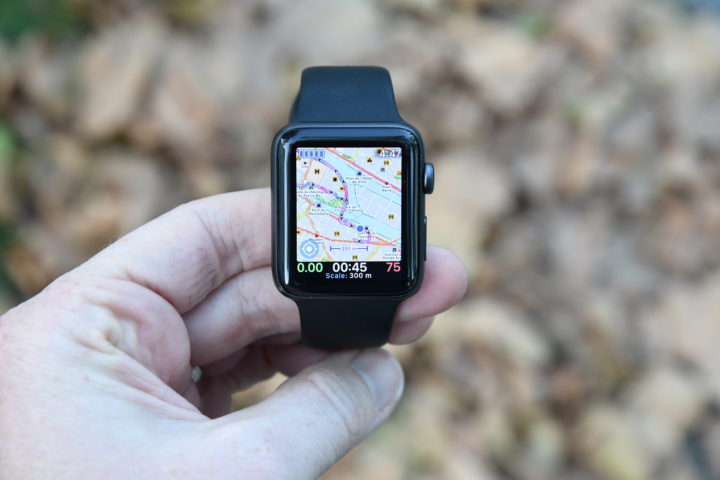
Note there’s other fitness apps I use from time to time like iSmoothRun and RunMeter/CycleMeter, though I didn’t use them as much this go around.
(Note: I don’t have any paid/whatever affiliation with any of the above apps. I paid my two bucks or what-not for all of them…and plenty more.)
Finally, a brief word on cellular capabilities. I bought the cellular edition, largely in thinking that I might end up using those capabilities, primarily in running. But I found that over time I didn’t actually use them much. On the cycling front, I always have my phone in my back pocket anyway. And in running, well, I didn’t much care what was going on in the outside world. That said, most of my runs the last month or so have been shorter (under 90 minutes), and thus the need to get ahold of me in that time period is less. Whereas if I was training for a marathon right now with 2-2.5hr long runs, then it would probably be handy to be more reachable (especially with a wife due any hour now).
I will note that getting the cellular pieces set up on launch day/weekend was kinda messy, and required multiple attempts with ATT (my provider). But once set up it worked well enough in day to day scenarios. However, it broke again when I went to Canada (so I fixed it again), and then it broke again when I went overseas to France (and once again, I had to attempt to fix it). All of which is mostly understandable, but at the same time the ATT agents don’t seem to know how to deal with the international pieces very well for the watch, even when you call the international services support desk.
And when it comes to functionality, certainly there are elements like Apple Music streaming that was just turned on last week, but for most other apps it doesn’t matter…yet. Especially fitness apps. Perhaps down the road we’ll see companies like Strava get around to adding truly live segments to their app, but for now, the cellular pieces aren’t leveraged much in the fitness realm.
Plus, you can find tons of other reviews out there about music, Siri, cellular, Apple Pay, text messaging, and so on. As I said at the beginning, I’m all about the sports here! Plus, I’ve covered things like Apple Pay and others in past posts.
Product Comparison:
I’ve added in the Apple Watch Series 3 into the product comparison database. This allows you to compare it against other fitness/sport watches that I’ve reviewed. Not for watches like the Samsung Gear Sport, I haven’t quite put it in the database, likely this week. The good news is that you can make your own comparison here if you want against any watch in the database, which is pretty massive.
For the purposes of below I’ve compared it against the Fitbit Ionic and the Garmin Vivoactive 3, which are the ones most people will be comparing it against (plus the Samsung Gear Sport once I add it in). Also note, with a unit like the Apple Watch specifically, there are many cases below where “with 3rd party apps” can be used. The same is largely true of Garmin, and eventually Fitbit. I’ve tried to thread the needle of apps that I roughly know exist where I’ve listed that. But it’s not a perfection in terms of knowing every app on earth. Ultimately, I don’t think any consumer does (or should).
| Function/Feature | Apple Watch Series 3 | Fitbit Ionic | Garmin Vivoactive 3 |
|---|---|---|---|
| Copyright DC Rainmaker - Updated June 21st, 2021 @ 5:19 am New Window | |||
| Price | $169-$179 | $229 | $129 |
| Product Announcement Date | Sept 12th, 2017 | Aug 28th, 2017 | Aug 31st, 2017 |
| Actual Availability/Shipping Date | Sept 22nd, 2017 | Oct 1st, 2017 | September 2017 |
| GPS Recording Functionality | Yes | Yes | Yes |
| Data Transfer | Bluetooth Smart | Bluetooth Smart | USB, BLUETOOTH SMART |
| Waterproofing | 50m | 50m | 50 meters |
| Battery Life (GPS) | 5hrs GPS on time (24-48hrs standby) | 10 hours | Up to 13 hours GPS |
| Recording Interval | Varies | 1-second | 1s or Smart Recording |
| Alerts | Vibration/Audio/Visual | Visual/Vibrate | Vibrate/Visual |
| Backlight Greatness | Great | Great | Great |
| Ability to download custom apps to unit/device | Yes | Yes | Yes |
| Acts as daily activity monitor (steps, etc...) | Yes | Yes | Yes | Music | Apple Watch Series 3 | Fitbit Ionic | Garmin Vivoactive 3 |
| Can control phone music | Yes | Yes | Yes |
| Has music storage and playback | Yes | Yes | No |
| Streaming Services | Apple Music, Spotify (but not offline yet) | Pandora, Deezer | Payments | Apple Watch Series 3 | Fitbit Ionic | Garmin Vivoactive 3 |
| Contactless-NFC Payments | Yes | Yes | Connectivity | Apple Watch Series 3 | Fitbit Ionic | Garmin Vivoactive 3 |
| Bluetooth Smart to Phone Uploading | Yes | Yes | Yes |
| Phone Notifications to unit (i.e. texts/calls/etc...) | Yes | Yes | Yes |
| Live Tracking (streaming location to website) | With 3rd party apps | No | Yes |
| Group tracking | No | No | No |
| Emergency/SOS Message Notification (from watch to contacts) | Yes | No | No |
| Built-in cellular chip (no phone required) | Yes (with cellular version) | No | No | Cycling | Apple Watch Series 3 | Fitbit Ionic | Garmin Vivoactive 3 |
| Designed for cycling | Yes | Yes | Yes |
| Power Meter Capable | No | No | With some Connect IQ apps |
| Speed/Cadence Sensor Capable | No | No | Yes |
| Strava segments live on device | No | No | No |
| Crash detection | No | No | No | Running | Apple Watch Series 3 | Fitbit Ionic | Garmin Vivoactive 3 |
| Designed for running | Yes | Yes | Yes |
| Footpod Capable (For treadmills) | With 3rd party apps | No (but has treadmill functionality) | Yes |
| Running Dynamics (vertical oscillation, ground contact time, etc...) | No | No | No |
| Running Power | No | ||
| VO2Max Estimation | Yes | Yes via app | Yes |
| Race Predictor | No | No | No |
| Recovery Advisor | No | No | No |
| Run/Walk Mode | With 3rd party apps | No | Yes | Swimming | Apple Watch Series 3 | Fitbit Ionic | Garmin Vivoactive 3 |
| Designed for swimming | Yes | Yes | Yes |
| Openwater swimming mode | YEs | No | No |
| Lap/Indoor Distance Tracking | Yes | Yes | Yes |
| Record HR underwater | Yes | No | No |
| Openwater Metrics (Stroke/etc.) | Basic stroke type only | No | No |
| Indoor Metrics (Stroke/etc.) | Basic stroke type only | Yes | Yes |
| Indoor Drill Mode | No | No | No |
| Indoor auto-pause feature | Yes | No | No |
| Change pool size | Yes | Yes | Yes |
| Indoor Min/Max Pool Lengths | 1y/m to 1,500y/m+ | 10m/y-100m/y | 17M/18Y TO 150Y/M |
| Ability to customize data fields | Very limited | Yes | Yes |
| Captures per length data - indoors | Yes | Yes | |
| Indoor Alerts | Yes (goals) | Yes (distance) | Yes | Triathlon | Apple Watch Series 3 | Fitbit Ionic | Garmin Vivoactive 3 |
| Designed for triathlon | Not really | No | No |
| Multisport mode | Yes | No | No | Workouts | Apple Watch Series 3 | Fitbit Ionic | Garmin Vivoactive 3 |
| Create/Follow custom workouts | With 3rd party apps | No (Premium Coached only) | Yes |
| On-unit interval Feature | With 3rd party apps | No | Sorta (2 preloaded ones, but no customization) |
| Training Calendar Functionality | With 3rd party apps | No | Yes | Functions | Apple Watch Series 3 | Fitbit Ionic | Garmin Vivoactive 3 |
| Auto Start/Stop | Yes | Yes | Yes |
| Virtual Partner Feature | No | No | No |
| Virtual Racer Feature | No | No | No |
| Records PR's - Personal Records (diff than history) | No | No | Yes |
| Tidal Tables (Tide Information) | No | No | No |
| Weather Display (live data) | Yes | Yes | Yes | Navigate | Apple Watch Series 3 | Fitbit Ionic | Garmin Vivoactive 3 |
| Follow GPS Track (Courses/Waypoints) | With 3rd party apps | No | No (but some 3rd party apps can) |
| Markers/Waypoint Direction | With 3rd party apps | No | Yes (to pre-saved spots) |
| Routable/Visual Maps (like car GPS) | With 3rd party apps | No | No |
| Back to start | With 3rd party apps | No | YEs |
| Impromptu Round Trip Route Creation | With 3rd party apps | No | No |
| Download courses/routes from phone to unit | With 3rd party apps | No | NO | Sensors | Apple Watch Series 3 | Fitbit Ionic | Garmin Vivoactive 3 |
| Altimeter Type | Barometric | Barometric | Barometric |
| Compass Type | N/A | N/A | Magnetic |
| Optical Heart Rate Sensor internally | Yes | Yes | Yes |
| SpO2 (aka Pulse Oximetry) | No | ||
| Heart Rate Strap Compatible | Yes | No | Yes |
| ANT+ Heart Rate Strap Capable | No | No | YEs |
| ANT+ Speed/Cadence Capable | no | No | Yes |
| ANT+ Footpod Capable | No | No | Yes |
| ANT+ Power Meter Capable | No | No | No |
| ANT+ Lighting Control | No | No | Yes |
| ANT+ Bike Radar Integration | No | No | No |
| ANT+ Trainer Control (FE-C) | No | No | No |
| ANT+ Remote Control | No | No | No (Yes for VIRB camera control) |
| ANT+ eBike Compatibility | No | No | No |
| ANT+ Gear Shifting (i.e. SRAM ETAP) | No | No | No |
| Shimano Di2 Shifting | No | No | No |
| Bluetooth Smart HR Strap Capable | Yes | No | YEs |
| Bluetooth Smart Speed/Cadence Capable | No | No | Yes |
| Bluetooth Smart Footpod Capable | No | No | Yes |
| Bluetooth Smart Power Meter Capable | No | No | No |
| Temp Recording (internal sensor) | No | No | No |
| Temp Recording (external sensor) | No | No | Yes | Software | Apple Watch Series 3 | Fitbit Ionic | Garmin Vivoactive 3 |
| PC Application | None | PC/Mac | Garmin Express |
| Web Application | None | Yes | Garmin Connect |
| Phone App | iOS only | iOS/Android/Windows | iOS/Android/Windows |
| Ability to Export Settings | No | No | No | Purchase | Apple Watch Series 3 | Fitbit Ionic | Garmin Vivoactive 3 |
| Amazon | Link | Link | Link | DCRainmaker | Apple Watch Series 3 | Fitbit Ionic | Garmin Vivoactive 3 |
| Review Link | Link | Link | Link |
Again, remember you can make your own comparison charts here using the product comparison tool/database.
Summary:
In many ways the most important new features of the Apple Watch Series 3 aren’t at all new hardware. Sure, cellular connectivity and its red dot gets all the attention, but I haven’t seen it be a huge deal for my day to day workouts. Instead, it’s actually some of the new watchOS 4 items that are more interesting here, both the user-focused features like the heart rate charts and alerts, but also some of the developer focused features like finally being able to export/access swimming workout data (as an example). All of these features combined make the Apple Watch (regardless of series) much more compelling than in the past, especially for more casual fitness and sport users.
The main strength of the Apple Watch as a fitness device is the app ecosystem. But it’s also its main weakness. Apple itself has made relatively small enhancements to the native fitness features specifically, year over year, compared to any of the big sport watch makers. Instead, they rely on 3rd party apps to fill in those gaps and provide a more on-par experience to their hardware competitors. And in many ways, that works out. Sure, you’ll pay more for apps to get those features, but not more than a few visits to Starbucks would cost ya. However, none of those apps boil the ocean in one fell swoop, in that no single app does it all. So you end up with a motley collection of apps to equal what you might find on a similar product elsewhere. In some cases the app might do it far better, whereas in other cases it might fall short and leave you with a fragmented experience. It’s a mixed bag.
As such, it’s tough to recommend the Apple Watch 3 to compete in the endurance sport realm, partially because of aspects like usability in harder environmental conditions, and partially because for someone like a triathlete or endurance runner in the mountains you end up with a slew of apps to try and make it work, knowing that ultimately it doesn’t quite work as cleanly as other options. Or you end up having to do a bunch of steps mid-race and still don’t capture things like transitions properly (or the start/ends of each sport). Or that the display makes it tricky to see while riding on a bike in a competitive situation because of the always-off nature, or while actively swimming.Yet at the same time, for less complicated tasks like running a 5K/10K or even a marathon – it will fit the bill perfectly fine for most people. And when you’re not doing those activities it continues to be the best all around smartwatch on the market. No other device comes close to the level of polish that the Apple Watch exhibits.
And that’s what this is ultimately about – deciding what you value most. If you’re looking for mostly an all-day watch that you use for less technically demanding sports, the Apple Watch 3 is an awesome bet. Whereas if you’re the inverse of that, you may want to look elsewhere.
With that – thanks for reading!
Found This Post Useful? Support The Site!
Found This Post Useful? Support The Site!
Hopefully you found this review/post useful. At the end of the day, I’m an athlete just like you looking for the most detail possible on a new purchase – so my review is written from the standpoint of how I used the device. The reviews generally take a lot of hours to put together, so it’s a fair bit of work (and labor of love). As you probably noticed by looking below, I also take time to answer all the questions posted in the comments – and there’s quite a bit of detail in there as well.
If you're shopping for the Apple Watch Series 3 or any other accessory items, please consider using the affiliate links below! As an Amazon Associate I earn from qualifying purchases. It doesn’t cost you anything extra, but your purchases help support this website a lot.
I've also put together a quick list of some of my favorite or most compatible accessories for this unit:
And of course – you can always sign-up to be a DCR Supporter! That gets you an ad-free DCR, access to the DCR Quarantine Corner video series packed with behind the scenes tidbits...and it also makes you awesome. And being awesome is what it’s all about!
Thanks for reading! And as always, feel free to post comments or questions in the comments section below, I’ll be happy to try and answer them as quickly as possible. And lastly, if you felt this review was useful – I always appreciate feedback in the comments below. Thanks!


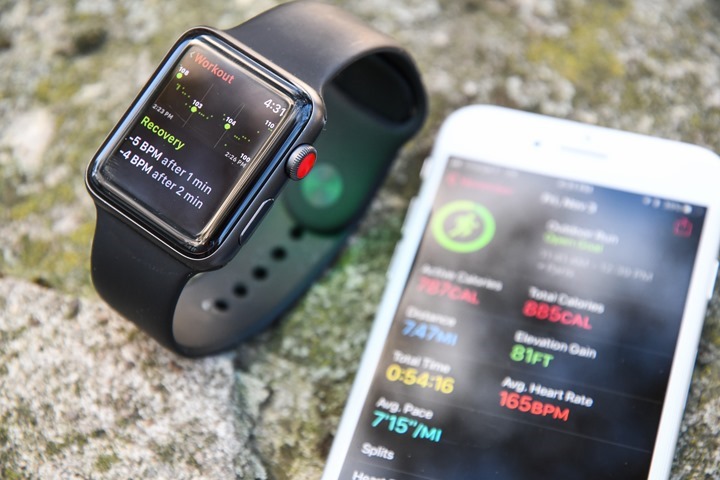
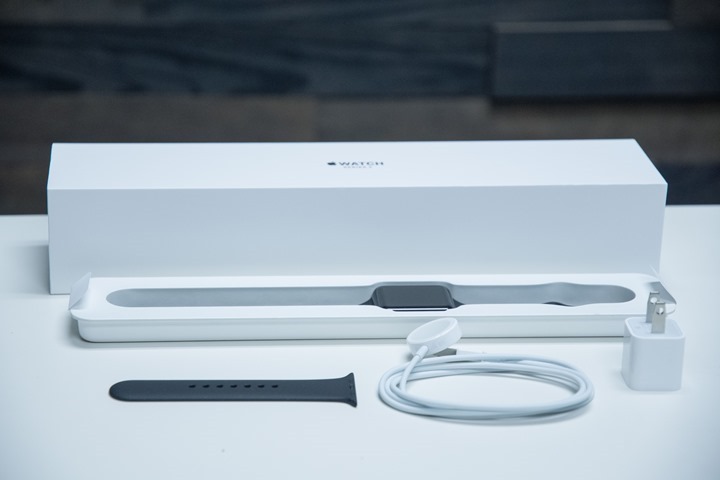
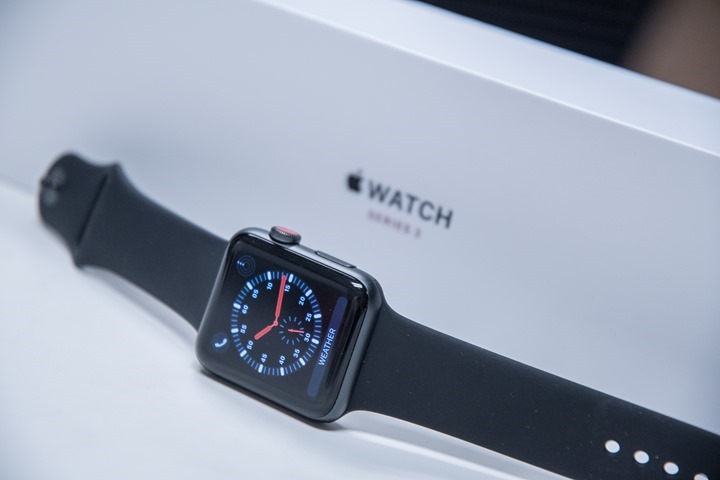
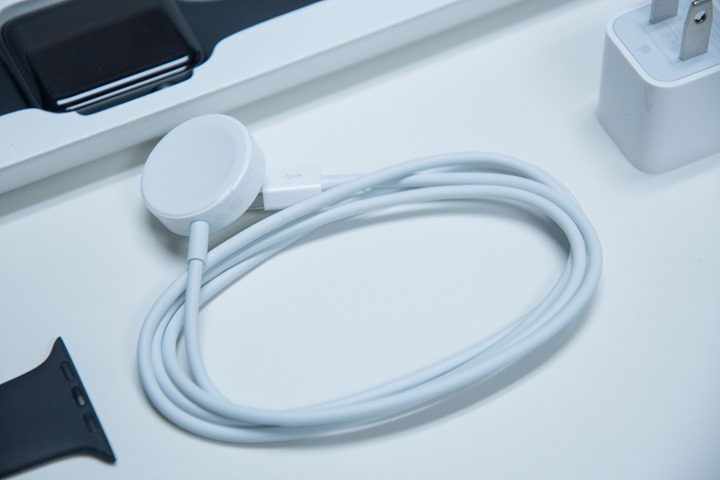
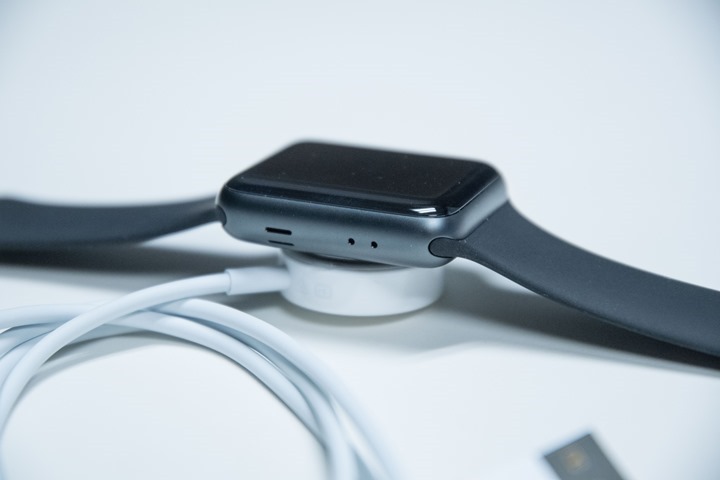
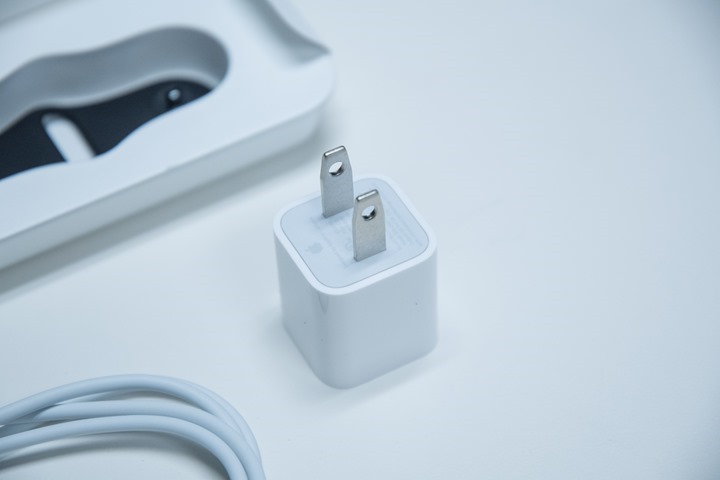
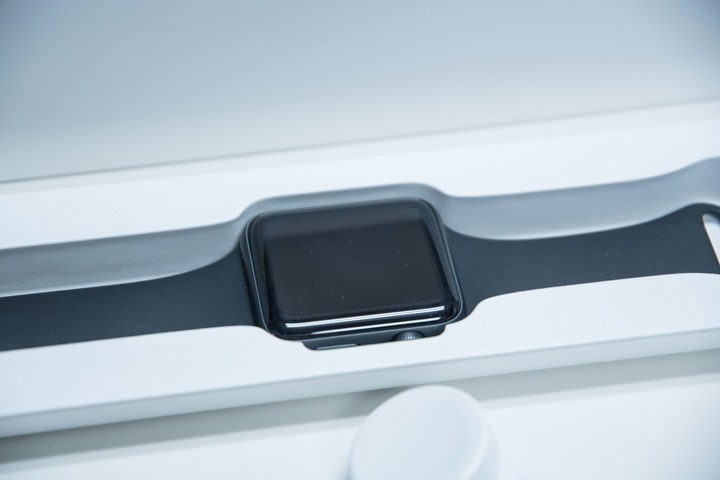
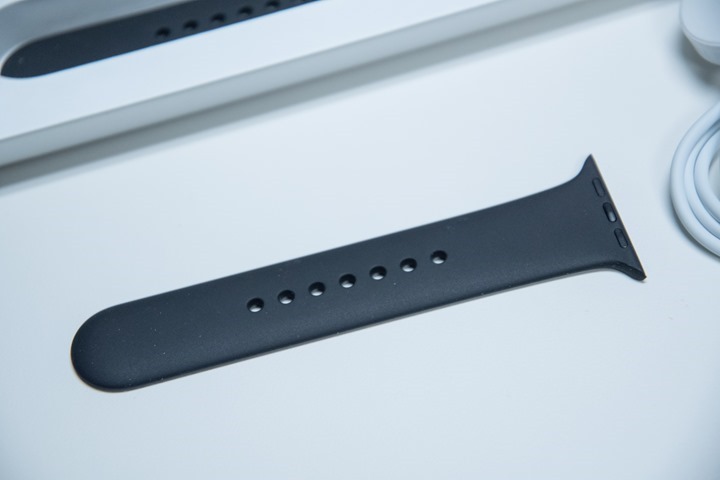
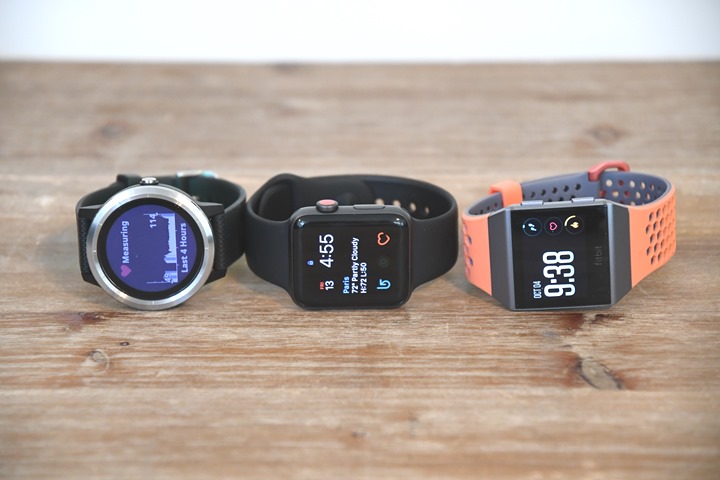
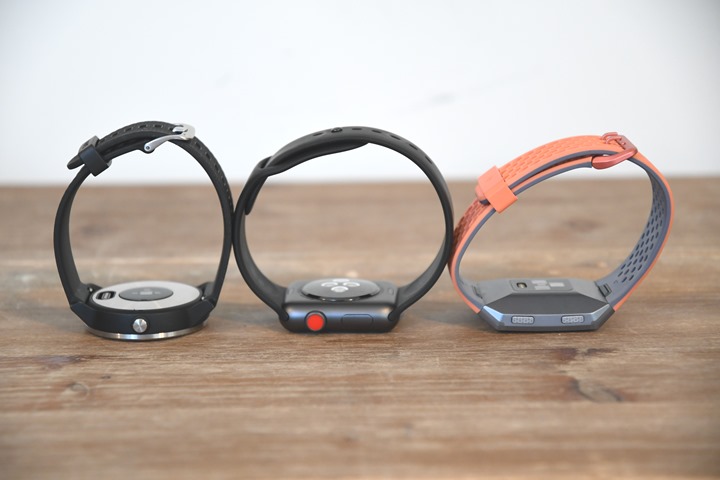
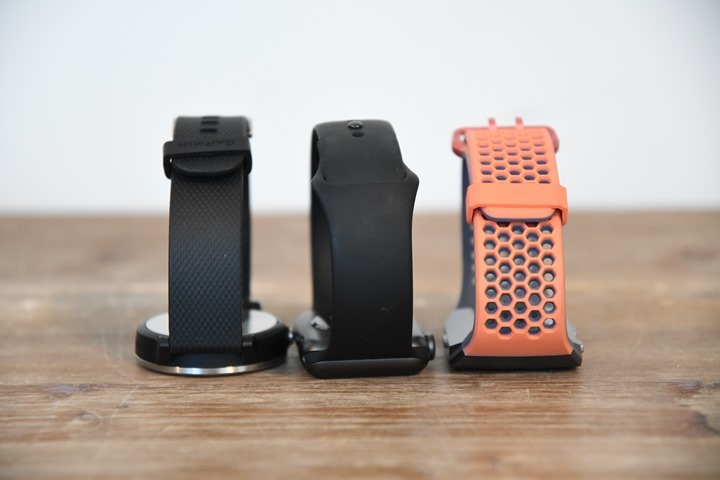
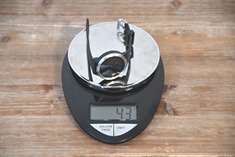
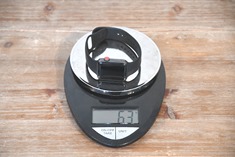
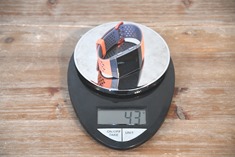
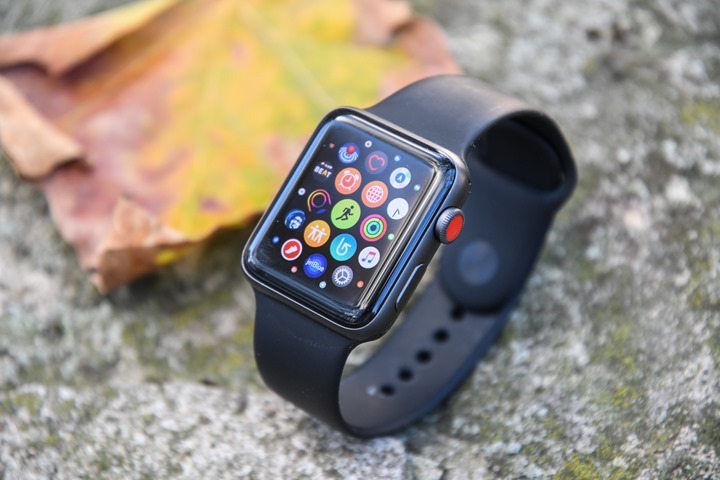
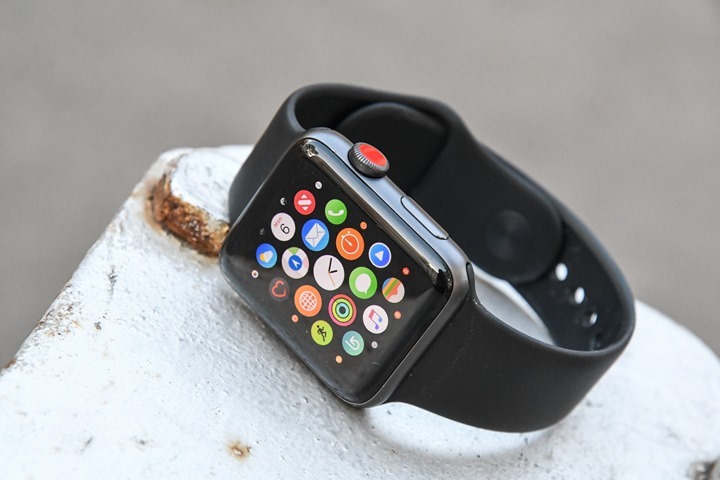
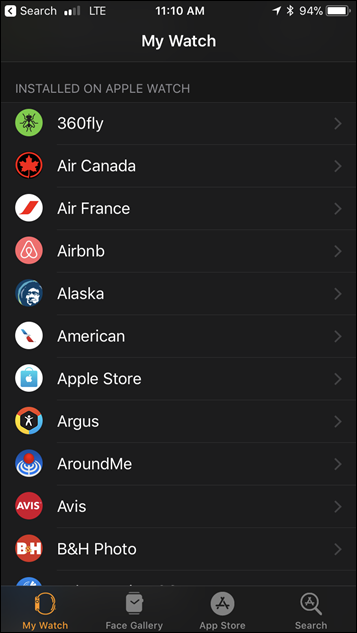
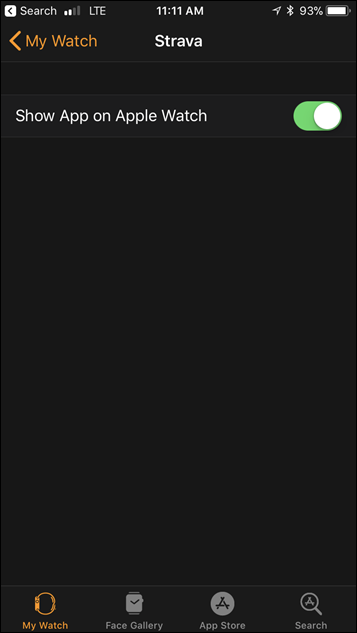
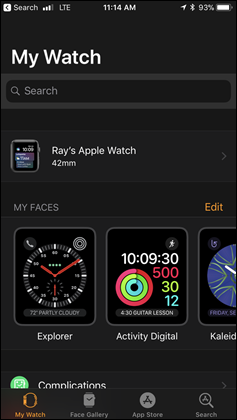
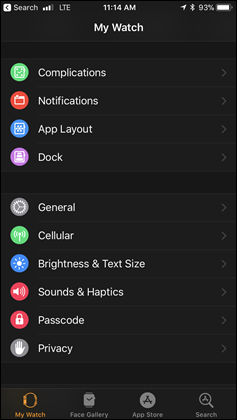
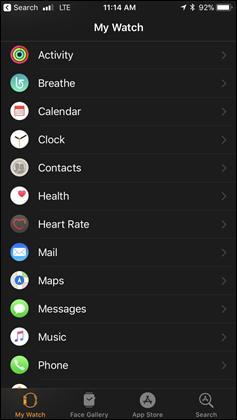
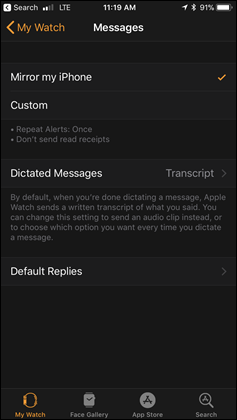
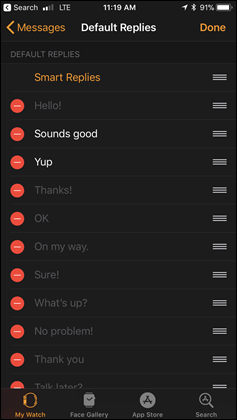
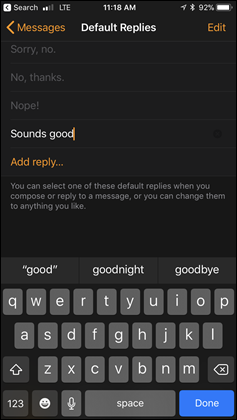
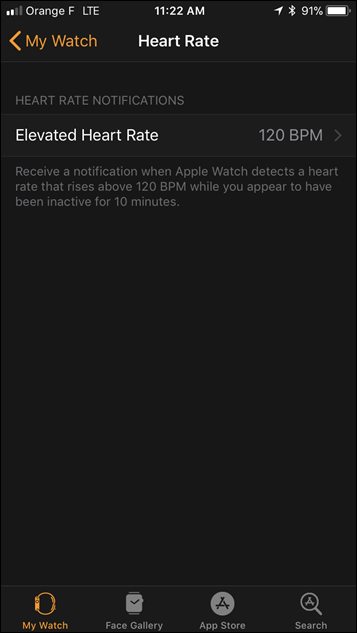
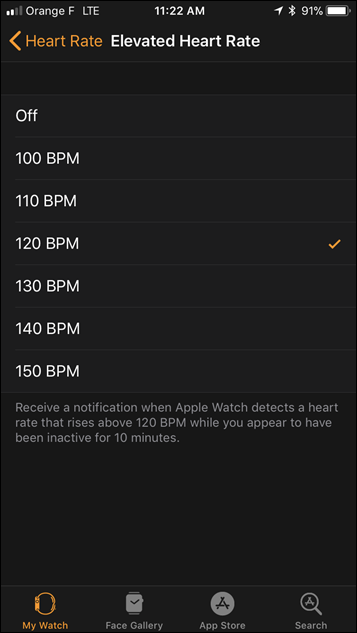
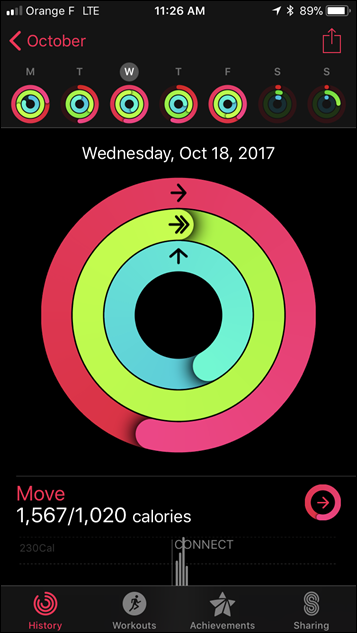
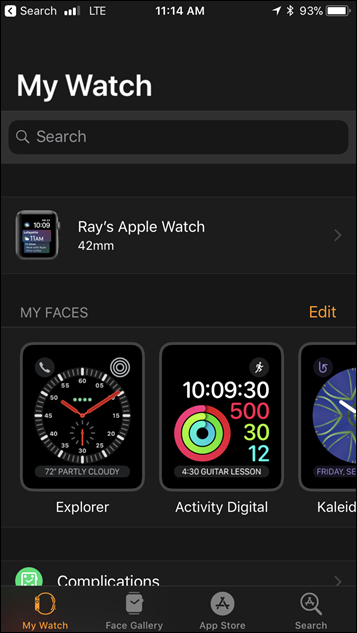
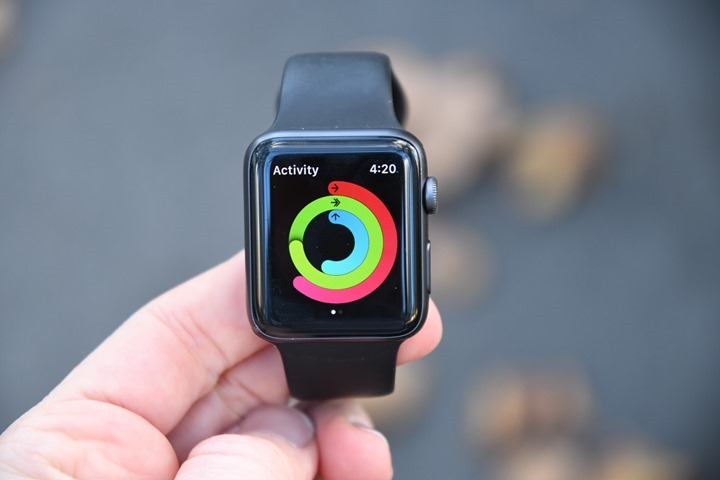
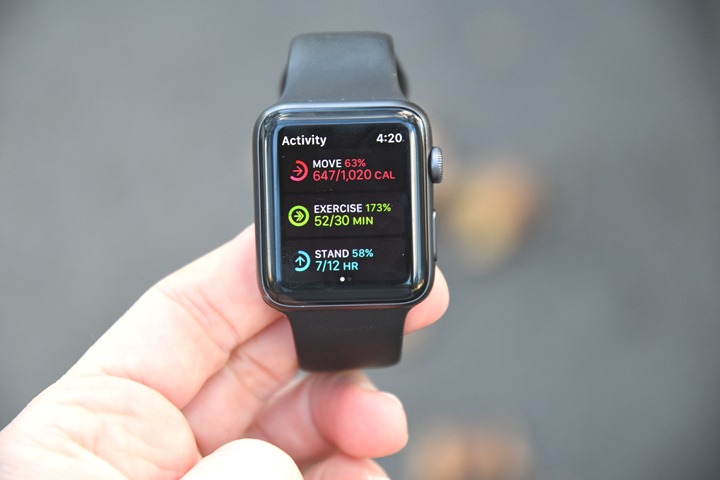
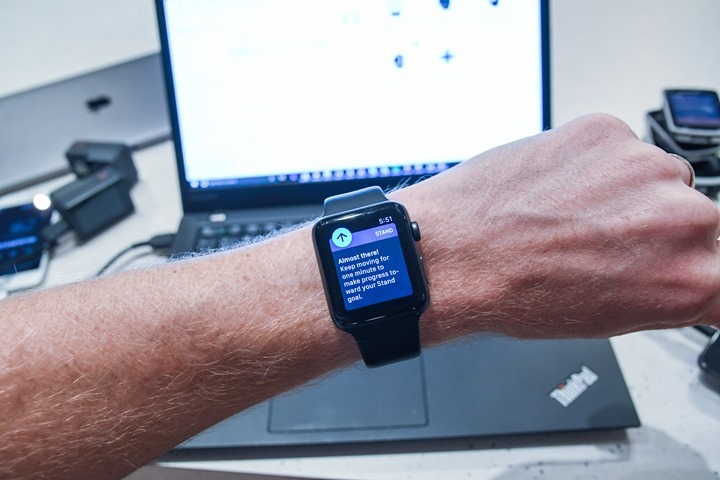
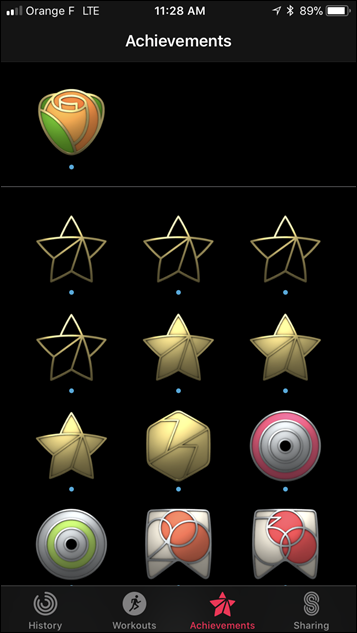
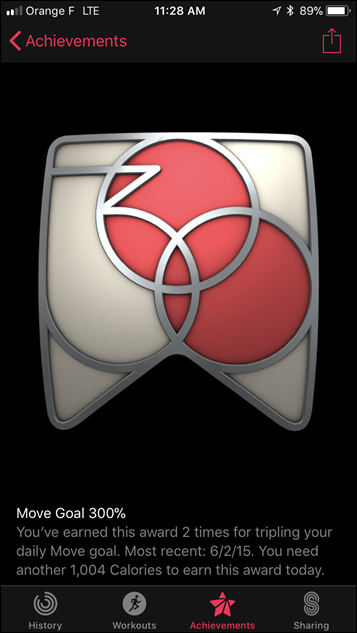
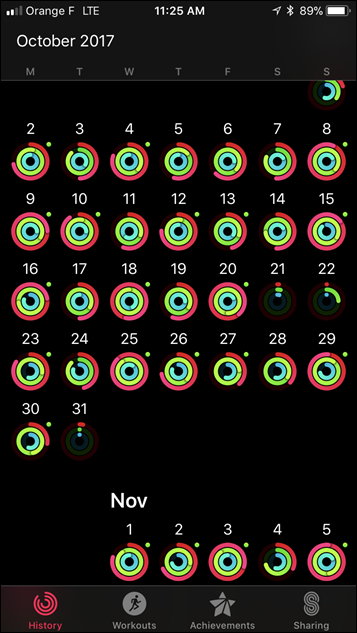
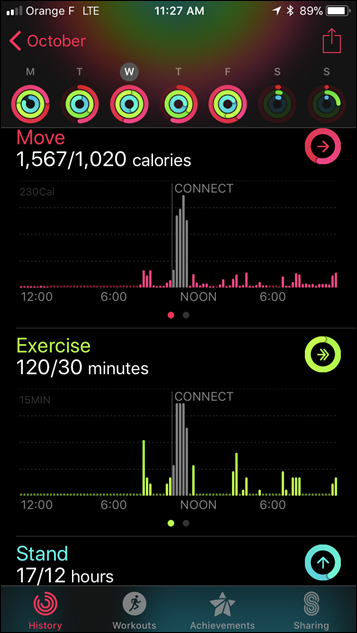
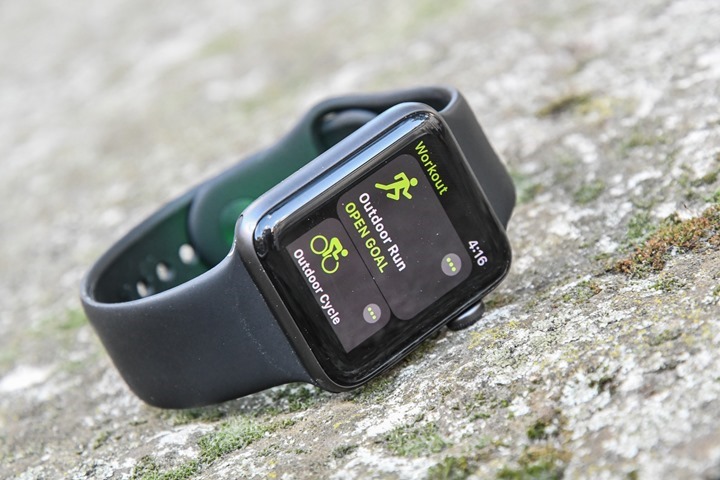
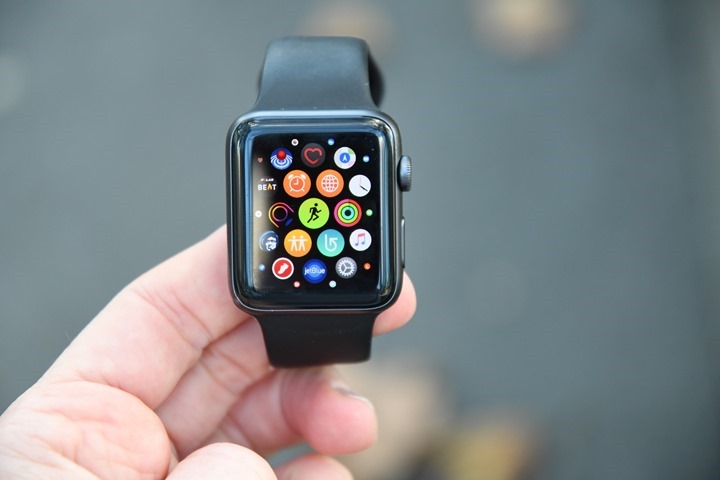
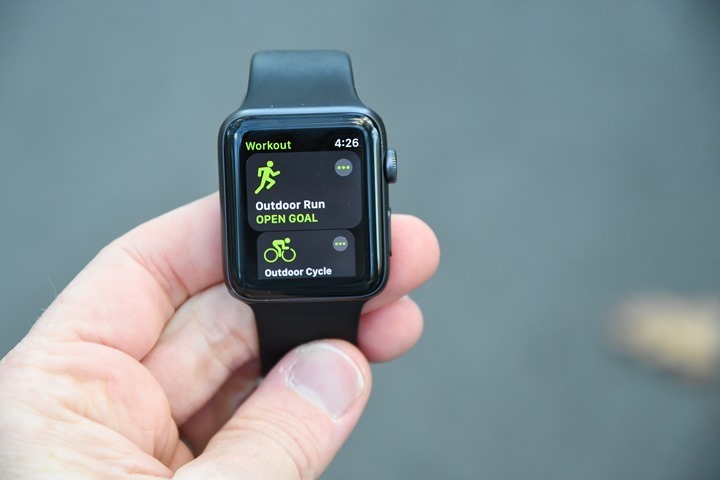
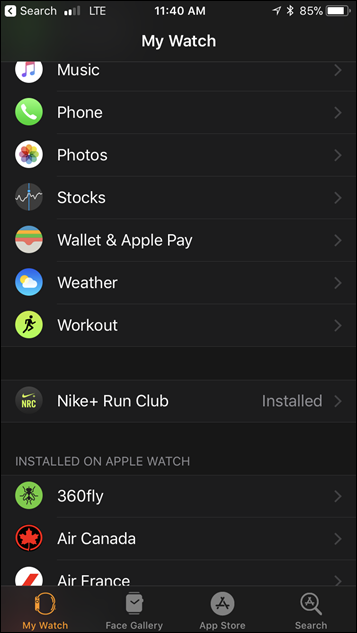
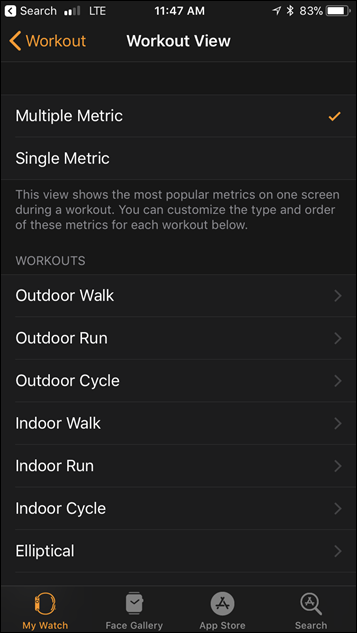
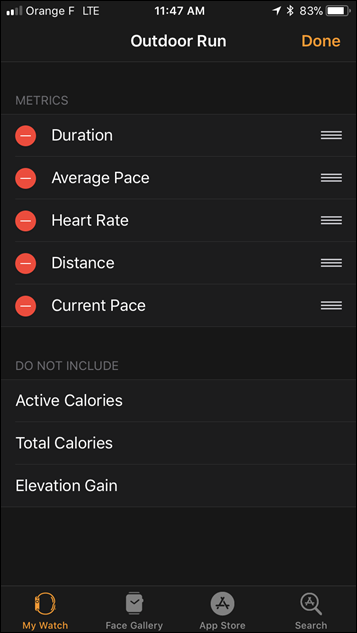
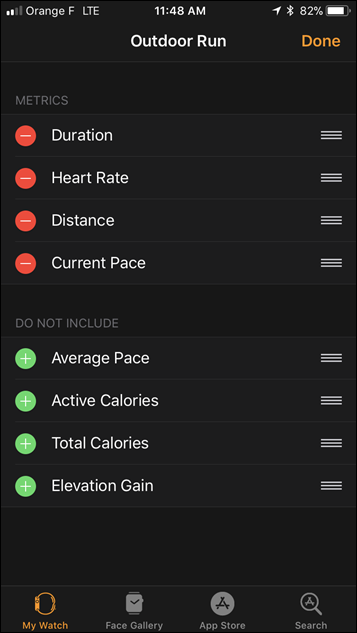
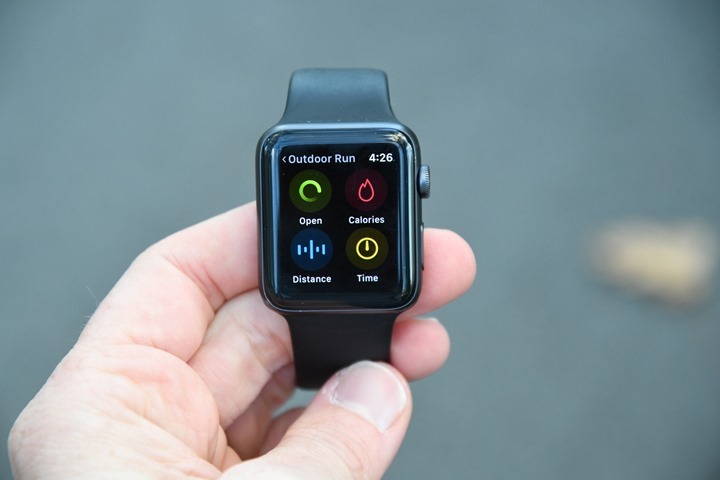
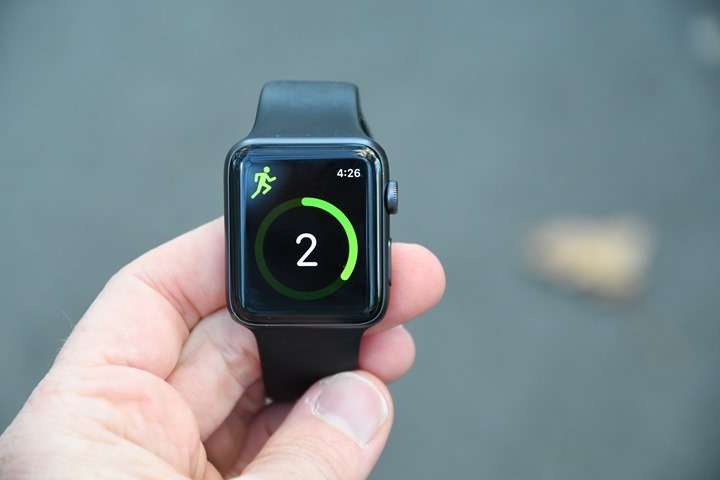
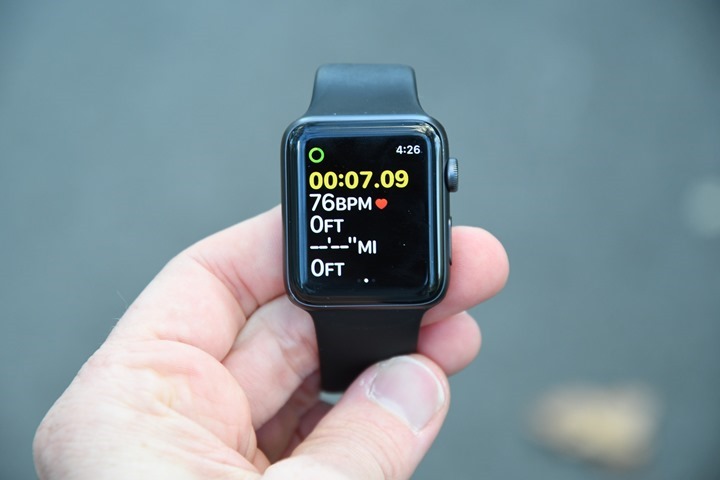
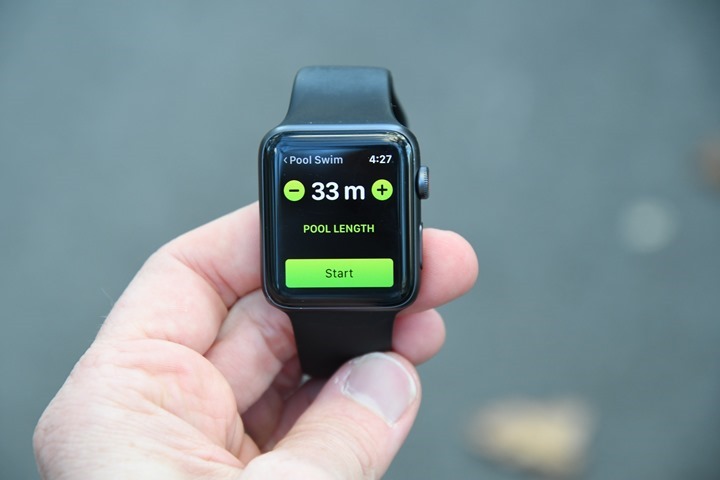
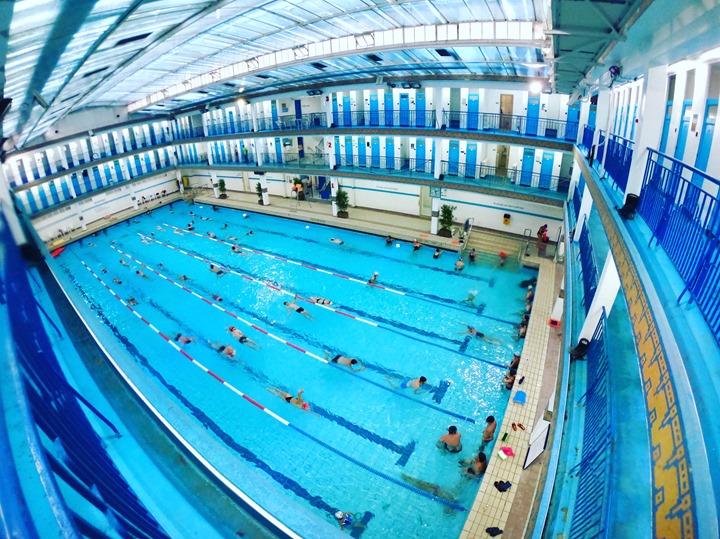
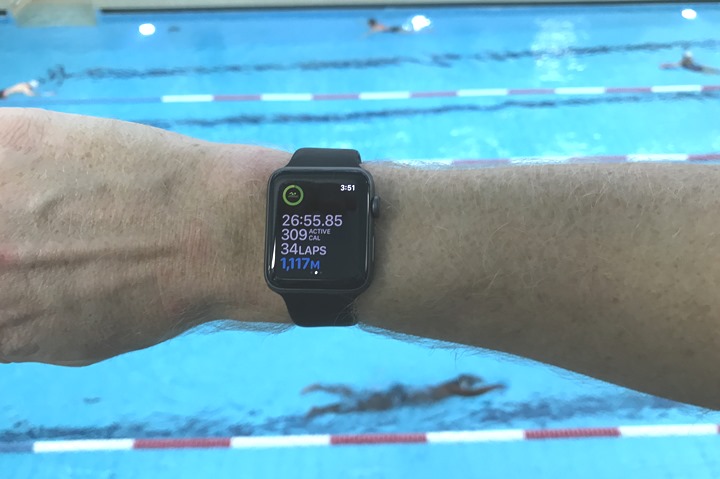

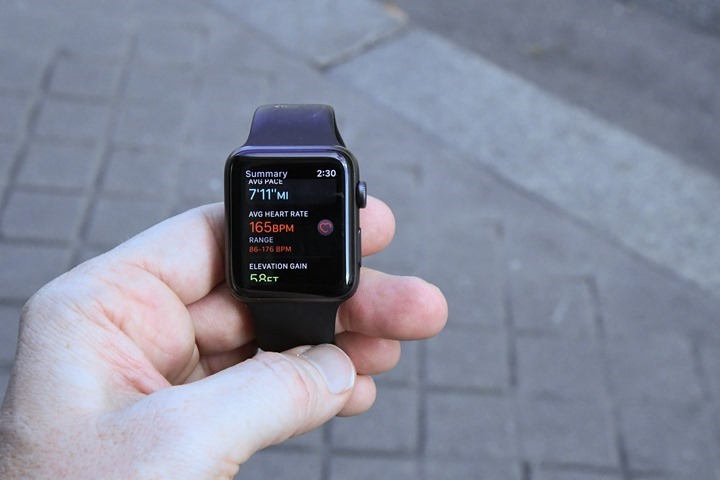
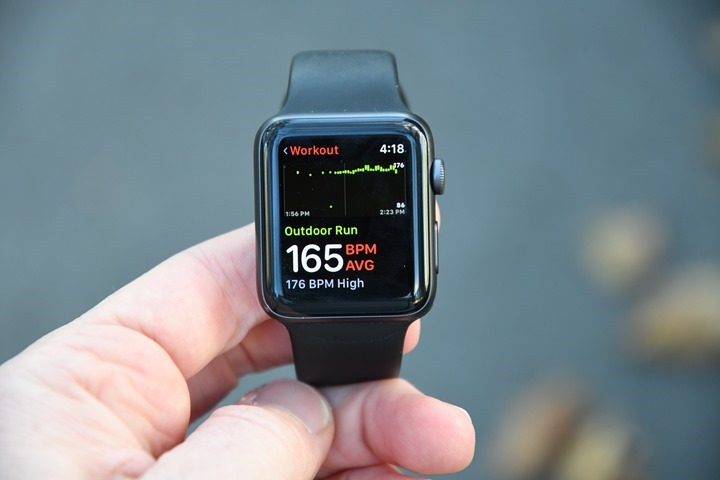
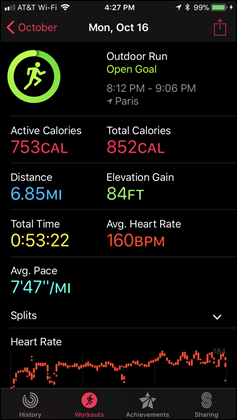
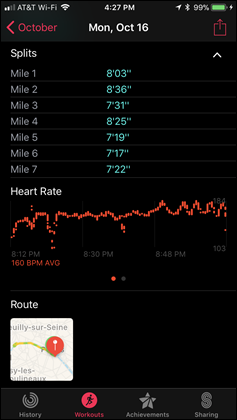
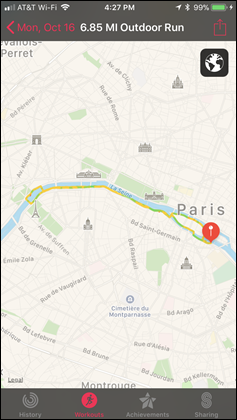
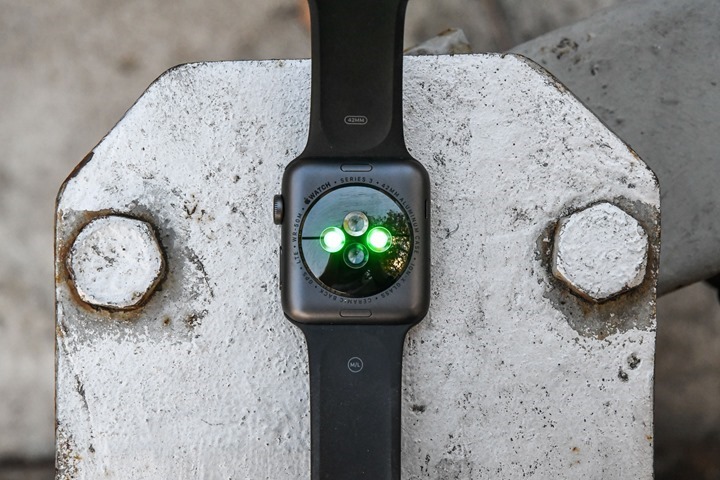
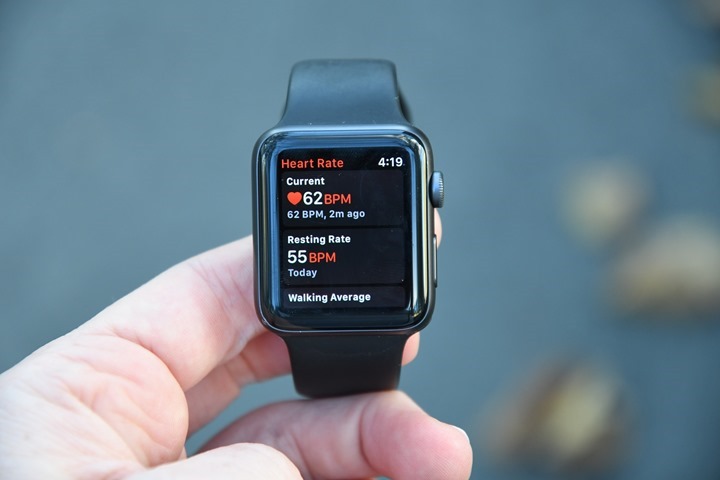
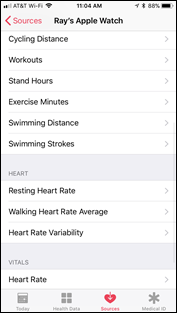
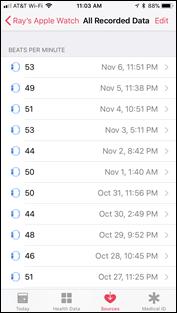
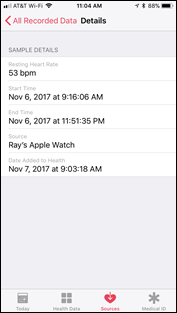
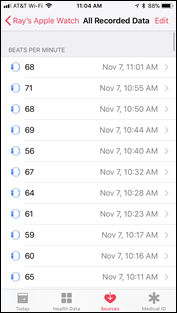








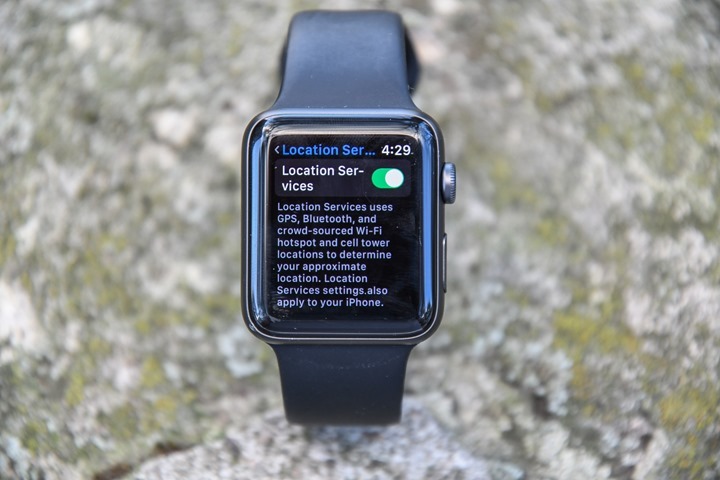





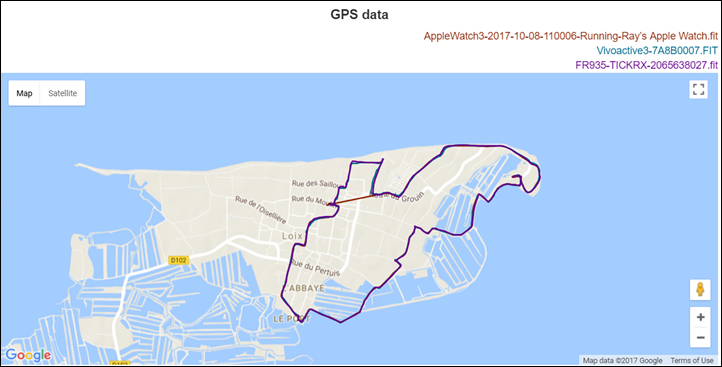
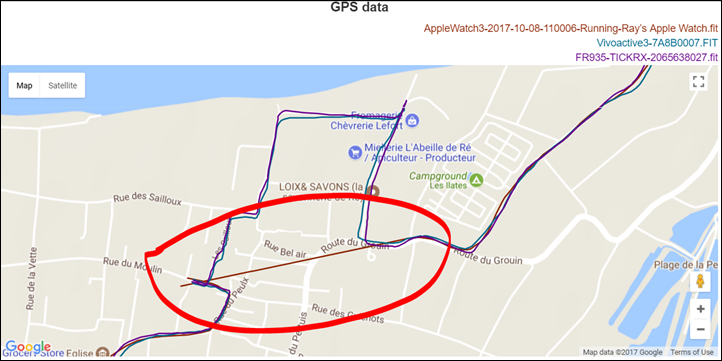
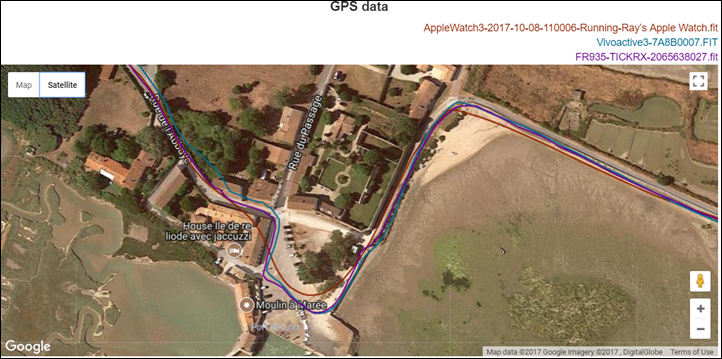
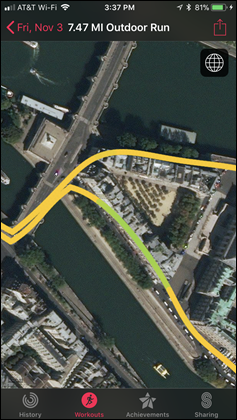
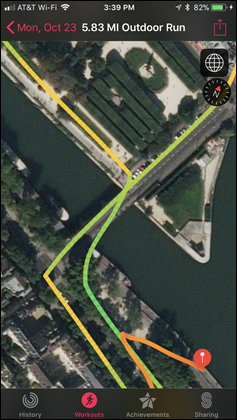
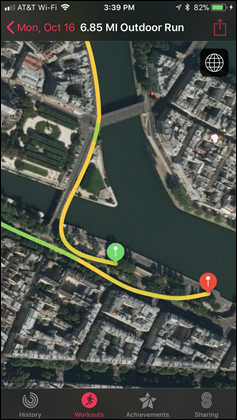
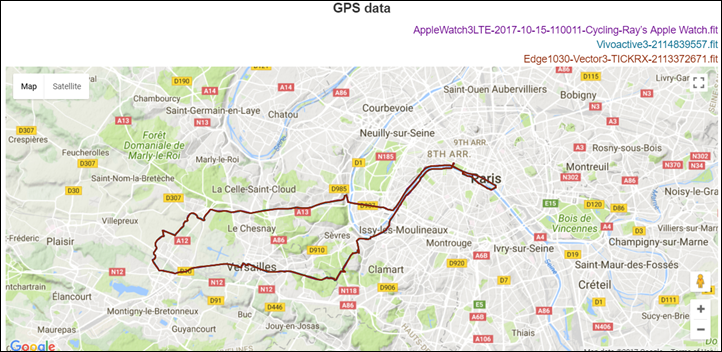
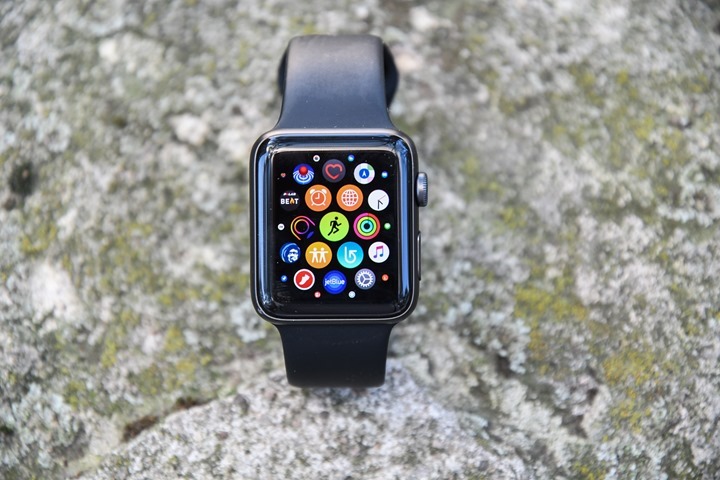
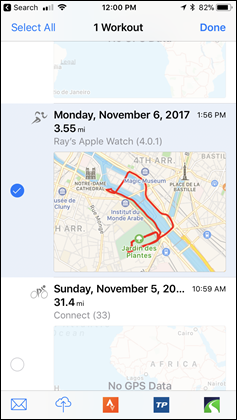
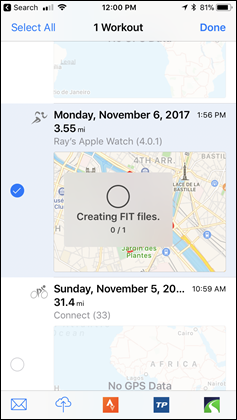
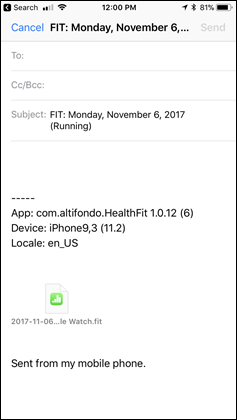
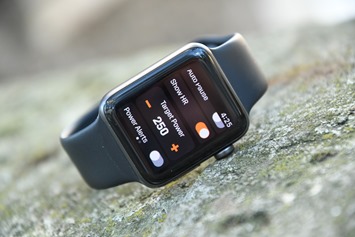
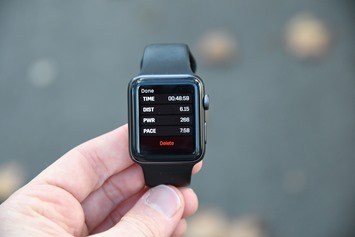
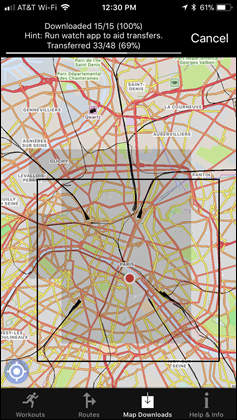
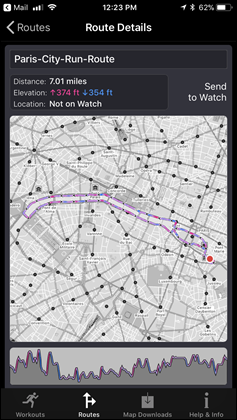
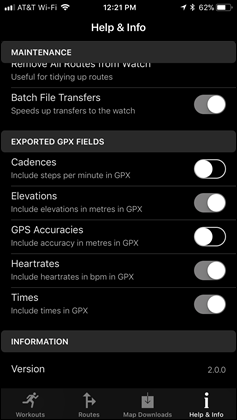
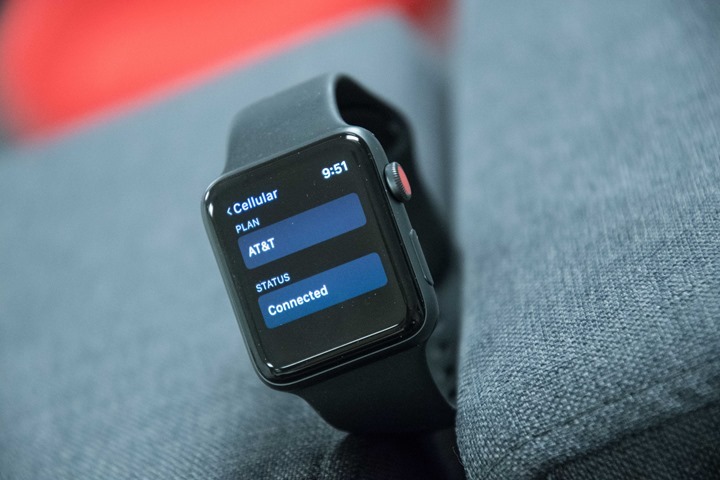
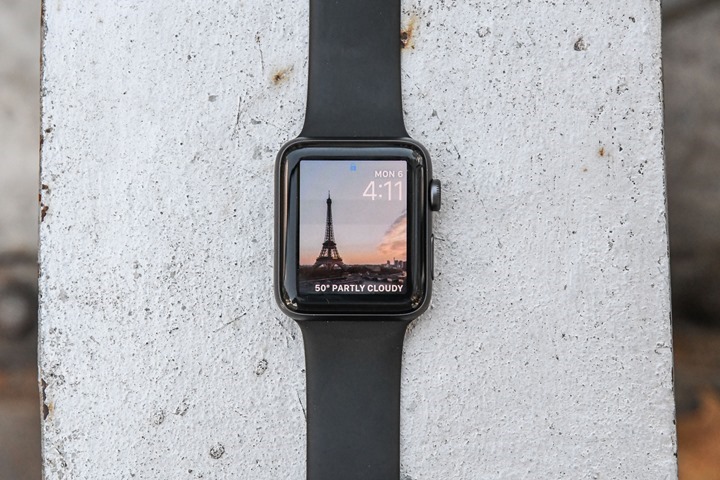
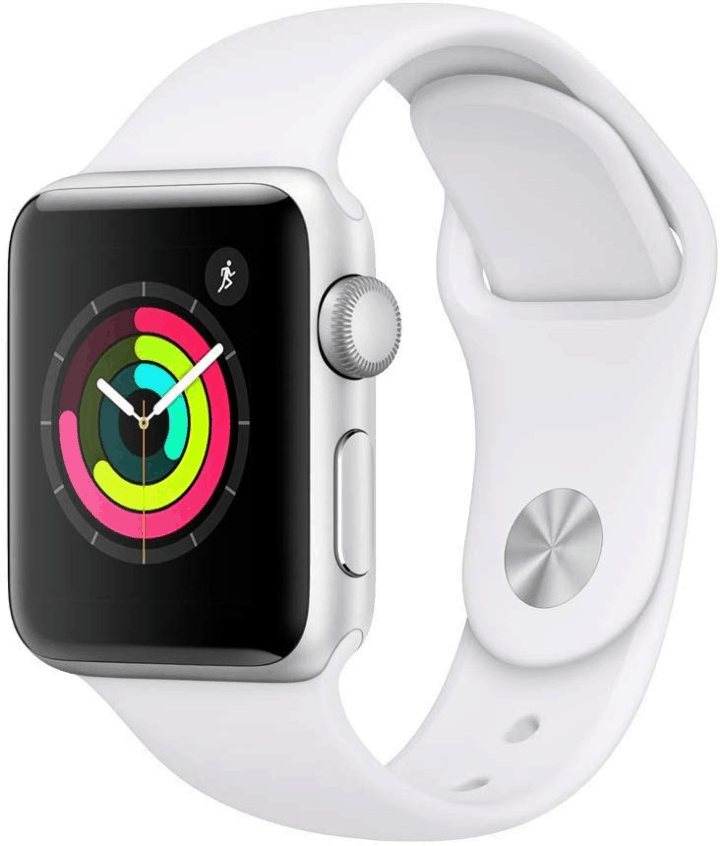
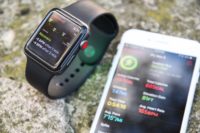



















Do you know if there are any decent workout apps for it with a Strava Beacon type live tracking function that works when the phone isn’t paired?
I don’t know of one yet (though I suspect there is something out there). I’m hoping we see Strava do it, but I’m not sure if they’re interested there.
“Add a Polar H10. Add STRYD. Suddenly you’ve got accurate HR and accurate PACE for those ‘special runs’. They should also save the battery a bit and STRYD relegates the GPS INaccuracy of the watch down to just providing a pretty post-run track.”
Probably AW3+H10+STRYD is a similar price to a high-end Garmin + HRM-TRI + Garmin footpod. Most people would think the Apple is prettier.
I’ll still use the 935+HRM-TRI+STRYD myself but….
Penny for your thoughts on that?
I was actually reasonably impressed with the Stryd app on Apple Watch, for a first attempt especially. Even more impressed when I noticed they actually used .FIT developer fields under the covers after I loaded it into the DCR Analyzer.
Still, I’d agree with you that I’d go with FR935+Stryd (or whomever for power) over the Apple Watch app, mainly because I want things like better control of laps and a boatload more data options.
Well, i find that after watch os 4.3, the heart rate resting mode had decreased, to the point that i thought i had a heart issue… i suddenly had a resting rate in the low 40’s…
Battery Life?
It’s 5 hours in sport mode with GPS and optical. I haven’t done any 5 hour workouts with it lately I don’t think.
As for daily usage, I’m getting very consistently about 36 hours. I can wake up with it fully charged, on a Monday, and it’ll last me till just after dinner on Tuesday, with usually one indoor workout and one GPS workout of an hour each. But I can’t quite make it to bed on Tuesday night.
I’ve been trying various tests for battery life for workouts over the last couple of weeks – the best I have achieved for outdoor use is 15% loss per hour on an outdoor cycle, with a Bluetooth HR strap (Tickr X) and cellular turned off – it was a 3hr 9m cycle (link to strava.com) and I finished with 52% left, so around 6hr 40m in total if I’d carried on – or 100miles on a good day :)
Treadmills and indoor cycling are in 14/15+hr zone – so unlikely you’ll ever get there and so not a concern.
The worst was running with built-in HR and streaming Beats 1 over AirPods. That was killing the battery at around 70% an hour! So you are looking at less than 90mins with that combo – though to be honest I couldn’t listen to Beats 1 for that length of time, though other music is available I understand :)
Great review as normal Ray – and many thanks to the link to my blog for the RunGap review :)
I’ll be posting more detailed findings on battery life on the blog soon for those that are interested.
Cheers
Ian
A bit short for many people who attempt to run a marathon for the first time.
Even if you are a 4h marathon runner I think you should charge it, leave it off and turn it on a few minutes before the race.
I’ve run my Series 2 to low-power mode (clock only) a several times. GPS + OHR is typically 4:00-4:30. Add BT music (non-streaming) and it’s down to 3:30. Needless to say, I use a different watch (Spark) for full marathons.
re: battery life. No problem with a 7-hour century so long as you carry your iPhone along (so the watch can use the phone’s GPS) and use an external HRM (so the watch doesn’t use its own optical HR sensor). Here’s a Strava link: link to strava.com, though, as you can see, the Strava activity was recorded on my Wahoo ELMNT. But the watch recorded the whole ride as well.
Hello,
Thank you for this thorough review. I was told by Apple technical support that the iWatch 3 can be set for interval running (i.e 1 min run, 1 min walk, repeat). Have you found this option on the watch? I’d like to confirm before I actually purchase the watch as this is an important feature for me. I don’t want to have to run multiple apps and drain the battery when I’m on a long run. Thanks!
Is it just my browser, or is the comparison table not there? (not that it matters too much, I’m an Android user…)
Grr..HTML issue. Fixed!
One other addition to the series 3 is the altimeter so it can track elevation changes and flights of stairs. It shows flights in the activity app now.
Good point, I had that in my preview post, but forgot to mention it here. Fwiw, you can actually analyze the elevation bits within all of the DCR Analyzer links too!
And it shows flights on the watch itself in the watch Activity app (article currently says “It does not oddly track flights of stairs on the watch itself”)
Good catch, fixed!
Thanks for the review, Ray. I liked how you kept it just to the fitness functions. Additional questions on the battery life… how does the AW3 compare to the AW2 in your analysis? Apple beefed up the battery, so am wondering if, outside of LTE usage, the 3 lasts significantly longer than the 2 with GPS/OHR. Also, what are your thoughts on the AW3 GPS only vs. GPS/LTE version in terms of battery life, again assuming not using LTE functions?
I find it actually the same as AW2. I think you end up with a case where they’ve increased performance specs which in turn burn more battery, and then at the same time the LTE signal being there (though I very rarely called/used it).
I think if you have zero plans to use the LTE pieces, then just save the cash. However, I also suspect over time (within a year), we’ll see more interesting app use cases for the LTE options, and I feel like one might regret it if you didn’t have it. Just my guess.
an important note is that the LTE version provides 16gb rather than the 8gb that comes with the non-lte version, therefore providing the ability to sync numerous playlists so you don’t have to stream music and burn up extra battery.
I used all this year an Apple Watch 2 but never really ended up using it satisfactorily for neither running, cycling or swimming. I’m also a data nerd and at the end I always had to go running/cycling with my iPhone. The apps simply aren’t there. It’s the best smartwatch for daily life though..
I bough a couple of weeks ago a Garmin 735xt (wanted the 935 but got an incredible price and got it for half the price the 935) because I’ve started to train more seriously for triathlons and half-marathons, and its painful to see how much better the Garmin is for sports, and how much better the apple watch is for everything else.
Now to decide if I sell the AW2 and just use the Garmin all day, or keep alternating both during the day…
Its funny, I had a smart watch and I thought I would use it more. I ended up getting the 935 and realize there only a few smart features I actually want that garmin does well. watch notification of calls and texts are the only smart features I find really useful. Everything else was like “oh, thats cool, then I never use it again.
I really think most smart watch stuff is way over valued as compared to battery life and durability.
Just switched from a pebble time to fenix 5. Missing some of the features of the pebble. But health and sport usage is way better. Had a 310xt for sports before. Would love to see some improvement to the SmartWatch features of the fenix.
Agree with this. Had a Series 2 Nike Edition and sold it for a 935. Thought I’d miss the smart watch features and haven’t at all as the Garmin stuff is good enough. The real deal breaker that made me switch was the stupid touchscreen which was useless given the merest suggestion of any liquid. The only thing I miss is no music playback on my Garmin but it has enough other plusses for me to live with that
Which did you choose? I have AW2 & Garmin935 on my wrists right now. Have had the AW2for 9 months and the 935 for a few days. I got the 935 because of trouble getting all my files to Strava (although Healthkit+ fixes that. Thanks Ray!)
I like the buttons on the 935 already and did my first swim workout today which went well. But I love listening to music on runs & the AW2 is sleeker if s but heavier. Not reallly sure I need all the smart watch stuff really-it’s mostly fitness, music, and snoozing my phone alarm without getting up- that’s a killer app.
Hum I presume you mean accelorometer and not acidometer ( Even if it hasn’t locked onto satellites yet, it’ll use the acidometer for pace and distance)
Good review! Thanks
Awesome review; I’ve been trying to decide if I should pick one of these up as daily wear plus casual runs, and I think I’ll give it a shot.
One question if I may: are there any noticeable benefits to getting the “Nike” version that you can’t get with the regular one, such as custom apps? I don’t particularly care about the daily use faces.
BTW you also have a minor typo; you say, “It’s actually a feature I often heart readers ask for,” which passes spell check and even grammar check in 2017, but probably contains an additional ‘t’.
Thanks again for your diligent reviews!
@Richard I’m sure Ray loves his readers ;-)
I had a series 2 Nike and I say don’t bother. The Nike app is a terrible walled garden that is difficult to get your data out of if you want to use Strava (or similar). I sold mine and got a Garmin 935, but if you want an Apple Watch don’t think there’s anything great that you’ll miss by not getting the Nike Edition, equally there’s no real downside of getting the Nike edition, you can ignore the Nike stuff and use it like a regular model
We heart you too Ray!
“So you end up with a motley collection of apps to equal what you might find on a similar product elsewhere.”
Quite a bit of Garmin’s high-end watches’ functionalities are pre-loaded, Garmin-authlored CIQ apps
Are Garmin’s CIQ apps motley?
Someone should write an article on how to use the Apple Watch for triathlon. I wonder how it would stack up?
RE: Apps
Not quite sure that’s the same. Garmin doesn’t have a separate app for intervals, then another for navigating, and another for mapping, and another for golf, and another for using the lap function, and then another for structured workouts, and so on. All of which require separate 3rd party apps on Apple.
Garmin does have some pre-loaded apps, but it’s basically Strava Live Segments, and the Training Peaks workout loader. That’s it I think.
As for triathlon, Ian did write something up on it (here: link to theapplewatchtriathlete.com). Essentially it can work, assuming you keep within the battery limitations. But you don’t get transition times, and you have to manually select/scroll through sports (no pre-structured formats). With not getting transition times you have to decide where your swim ends (as you exit the water, or as you start the bike but after running a few hundred meters?). Same goes for bike to run. Also, you’re not going to get any cadence/power sensors on the bike.
That said, it’s all silly things Apple could address.
Thanks for the link Ray – yes would be nice if Apple did address these issues and created a Triathlon or Multi-sport Workout type. Not sure it quite fits their objectives though, and will more likely be left to third parties to create Tri apps (I know of at least two developers who are doing that currently).
Cheers
Ian
sy meant
eg intensity minutes, steps (etc) are widgets, sports profiles are apps, navigate is an app etc
Sure, technically they are apps/widgets, but they’re also effectively in-box and tired to underlying data sets natively on the device. Meaning, you’re not having to go off and search for them or download them or troubleshoot them.
Thanks for the review. I’m somewhat disappointed in the Watch. Looks like i’ll need to wait one or several iterations before I reconsider the Apple Watch. Its fitness features aren’t robust enough.
Nice review. I have come to most of the same conclusions myself…the biggest being that I cannot edit workouts in apple’s app, which is really frustrating for someone that runs/bikes a lot at the gym.
One note – the AW3 does detect VO2 Max. You have to go into the health app->Activity and it will show it. It seem mostly on par with Garmin too from my testing. And that’s another weird thing, they have data is apply health that wasn’t included in their activity app for the workout. Very strange software.
How did you get Connect to give you Move credit on Apple’s Activity? I’ve been trying to get it to do that for months but to no avail… =
Doesn’t seem to work that way… I think activity for the activity ring has to happen while wearing the AW
See his screenshot above though. It clearly shows Garmin Connect data in his Move credit. link to dcrainmaker.com
He most likely was wearing the AW at the same time he was recording the connect activity. This is what it looks like when only wearing the Garmin.
This is what I see when wearing both watches.
Strange though that he gets the gray “third-party” lines on the Move chart though. That suggests the data is coming from Connect. Hopefully he chimes in. I prefer to let Ray wear more than one watch on his workouts, so I only have to wear one. :)
I have Connect and Strava linked and let Strava push the data to Apple Health. It does then get counted towards Move goals. I then banned Connect from writing any data Apple Health – they don’t seem to get it.
Yeah, I would have had a Garmin watch or three present on every run with the Apple Watch, so that’s where that’s coming from.
Right, but when I run with a Garmin watch, and no Apple watch, I don’t get any move credit once Connect sync’s with Apple Activity. Just workout credit. Based on your screenshot, it looks like Garmin is writing to your Move credit.
You don’t have to have the Apple Watch on during that workout to get Connect to give you Move credit, right?
@John – That’s interesting… So do you have to start a workout on both watches, or do you just have to be wearing the Apple Watch?
I was just wearing the AW, no workout… just there for the move credit and the music. I have started using ismoothrun.. it exports to many sites such as Garmin, Strava, and Apple Health. Structured workouts are a bit more arduous than Garmin, but it’s also nice to run with only one watch, no phone (Apple Pay on watch if I need a snack or a drink). Still have an old 220 laying around, but I’m more of a 5 day a week 20 ish mpw and some strength training. I tried using a 935 as a run and all day watch, but I missed the AW during the day more than I missed the running metrics from the 935 in the end.
@Jim I’ve got an original Apple Watch. Earlier this year I rode a century and forgot to put watch on before rushing out the door for the 1.5 hour drive to ride start in Napa. Recorded ride with my Edge 520 bike computer, which then syncs to Strava. In turn, Strava writes to Apple Health. Upon returning home after 7 or 8pm, put on my Apple Watch and I had received full Move/Exercise/Stand credit (3 rings filled on watch and in Health/Activity apps).
One thing to note, in Health app I’ve set the priority for which data source “wins.” I don’t track bike rides with Apple Watch, so in Health I clicked on Active Energy tile, then Data Sources & Access, then Edit, and under DATA SOURCES I moved Strava ahead of my watch. That way Strava’s calorie burn (from power meter via Garmin Connect) is used even though the watch is on my wrist for most rides (on wrist, but not tracking ride).
Garmin Connect will not write anything to Health unless you have a Garmin activity tracker. I don’t have a Garmin wearable so Strava is the only way for me to update 3 rings. It works great, with that one tweak to giving Strava higher priority versus watch on Active Energy tile.
Hope that helps.
I take off my Apple Watch on put on my Garmin 920xt when I run. When I get back Garmin uploads the run to Strava. If I then open the Strava app on my iPhone and look at the run for a few seconds, and then open the Apple Activity app (the 3 rings app) on the iPhone the run will appear under both my Move and Exercise fields, it will also give me credit for standing during the workout. Then when I put the Apple Watch back on the rings update and fill up.
This also seems to work for the Garmin Connect app as well, I just prefer Strava. The trick is to make sure you open the Strava/Garmin app first and look at the run, then open the activity app on the iPhone.
You also might need to go into the Apple Health app>active energy>Data sources & Access and make sure Strava or Garmin as there and at the top of the list.
This seems to give me credit for the run even if I wasn’t wearing the Apple Watch. However it wont give me credit for “floors climbed” even though the 920xt is tracking elevation data.
Hope that helps.
Ray – is there a way to get run or workout data from AppleWatch into Garmin Connect?
You can you just need to use 3rd party apps. The stats imported will vary.
I recently used HealthFit to export .FIT file from an Apple Watch tracked walk, and then imported in Garmin Connect and TrainingPeaks. Worked fine.
Does this work automatically? What I want to know is can I ditch my vivosmart HR and just wear my Apple Watch, and everything will just seamlessly load into Garmin? (HR, Runs, Sleep, etc.) I’m a bit confused!
Can the Apple Watch broadcast heart rate (through Bluetooth Smart or other means) to a cycling computer? I haven’t seen any confirmation that it can so I’m assuming the answer is no.
Thanks,
Guillermo
I’m not aware of anything that does that yet.
Some apps can utilize HR (I believe Zwift can do so), but rebroadcasting, I’m not aware of.
Thanks for the reply!
Don’t know if this helps, but 4iiii Inovations has a HR strap that converts ANT+ signals to Bluetooth and will then broadcast that on to laptop, etc.
link to 4iiii-innovations.myshopify.com
(I have one and like it but have no affiliation with the company otherwise.)
Marc
It should be possible using the GymKit spec. I am not sure if it will forward my chest strap data if I am wearing one, but the native OHR gets forwarded to gym equipment.
Does anybody know if it is possible to pair a power meter via 4iii Viiiva or the ANT+ bridges. The Apple watch won’t pair directly with a power meter, even if BLE.
“achievement badges which are non-motivating icons that have the same amount of excitement as a fake 99 cent police offers badge for Halloween.” I agree.
The Apple Watch is great, but those badges, and congratulating me for exercising 30 minutes or getting off the lounge, are just ridiculous.
I want to see Siri turn nasty and start calling me a turbbo; or making sarcastic remarks if I open the fridge- that would BE motivating.
I tired using the Apple Watch 3 for a few weeks after it came out but I couldn’t get the HR to work reliably. In almost every run it would get cadenced locked for the majority of the run. I tried wearing it tighter, looser, higher on my wrist, it didn’t seem to matter it always got cadenced locked. I could get a bluetooth HR strap but honestly it was just easier to go back to my trusty Garmin 920 XT.
However for the other 22-23 hours of the day when I am not running I adore the Apple Watch!
Thanks for the wonderful review.
What I’m looking for in this new release of the watch is being able to go for a run or ride and not have to take my phone -iPhone 8 plus – which is bulky. This kind of watch will never replace something like my FR935 but it will make activities easier to do without having to worry about being disconnected while doing them.
FWIW, the RunKeeper app for AW does have a GPS signal meter on its main screen, which is super useful IMO. Always good to know if you have a decent signal before starting an activity. Why Apple doesn’t have one for its native app is beyond me.
I think the target audience does not really care if the GPS only kicks in a few minutes into the run, When you don’t download your data and analyze it, you don’t care so much if it’s not so accurate… and you have nothing to compare it to. Just think of it – activities starts on a 3-second countdown, how does that fit with, say, running a 5k race?
You mean there is a countdown after pressing start? That would make it impossible to start an activity when crossing the starting line.That’s a bit odd, considering the fact they are making a fuss over the sports features. How do you ‘seduce’ runners to choose the apple watch if your gps doesn’t start on time, your race isn’t recorded on time, and your heart rate only starts recording after the AW has had it’s breakfast, coffee and read the newspaper? As Ray says – if they are marketing this as, in part, a sports watch, this is unacceptable.
That said, all these issues are easy to fix with a software update. Also meaning that every day without a fix, is a day when Apple confirms this is really NOT a watch meant for sports.
While there are lots of ‘issues’ with using the Apple Watch in a competitive situation, I’m not sure I’d rank the 3-second timer all that high up there. It’s three seconds, most of us can predict crossing the line in three seconds. And more importantly, all of us know that the only time that really matters is the race clock, which is invariably off from our watches by 1-2 seconds anyway.
I like the countdown – it gets me gee’d up. It’s like the watch is saying “Ready, get set… GO!”
Any suggestion for a running app that shows Distance, Total Time and current Lap Time like the Garmin FR220? I find the display of “current pace” to be of little use and pretty much worthless in predicting a mile/kilo split if you are running on varied terrain.
Thanks for the review.
Tom
I’m pretty sure iSmoothRun will do this.
Also, if you use the Workout app when running you can double-tap the screen to record a “segment” this will give you the pace for the previous segment immediately, and will show up in the summary after the run too. Not perfect, but of some use :)
subscribing to the comments….
How accurate have you found the Apple Watch HR to be while swimming? Curious considering that many other watches disable HR while swimming.
great question as I didn’t see anything about it in this review. I know in previous reviews it was mentioned and I looked at other reviews of people who swam with it and had pretty good results. So would be be interested in Ray’s thoughts.
I think swimming HR and stats are one of the strongest features of Apple Watch. You can just start it and forget it, and then get your stats afterwards automagically. There are a couple of posts on my blog about it if you are interested. HR in the pool has worked great for me (note I use a Sports Loop which I suspect could help because of a tighter fit compared to other bands, though I haven’t tested it)
I’m currently testing MySwimPro for structured workouts which though expensive, looks pretty good too :)
Cheers
Ian
I have the Apple Watch Series 3 GPS, and so far I’m happy with how it functions in swim workouts. This is the first time I’ve been able to track HR in the water, but the data looks accurate. I use the regular sports band that comes with most Apple Watch models, and wear it somewhat snuggly.
Here’s the data from a recent swim, directly imported to SportTracks from the HeathFit app:
link to sporttracks.mobi
You can see how it didn’t record HR data on the first lap, but it picked it up after that. I love that it has stroke detection, SWOLF, stroke distance, stroke rate, etc. Auto-pause works well, too. The screen does remain dark while you’re swimming, but I only look at it at the wall during breaks. It would be better if the screen remained active the entire time, but this is universally true for every function of Apple Watch.
Re: HR during swimming is hit or miss for me. Sometimes works great; sometimes the Activity app (on the phone) reports “not enough data”
Ray, any thoughts on the VO2max estimate and/or HRV data the watch records in the Health app? For me the VO2max estimate seems consistent with other sources. I’m not sure what to make of the HRV data since it’s in milliseconds
It shows me as 54.2, and has been reasonably consistent day to day. The FR935 has me at 55 right now.
I haven’t done any running-specific workouts lately though that’d fall into the realm of legit VO2Max pressing workouts where I’d get better numbers. The last time I measured it in a lab was five years ago at 63.6 (link to dcrainmaker.com).
I could take a test again, maybe, in the event I feel like throwing up again. But I think there are far less painful ways of doing that. ;)
Thanks Ray, nice job as usual. I have had my AW2 Nike Edition about a year. My big complaint is the inaccurate GPS mileage distance. On routes measured by numerous running and bike devices the AW2 reflects .05 mile more on a 5 mile run and usually over 1 mile on a 10 run which of course changes the accurate pace. I really like the audio advising me of each mile, with pace- even though it is not “accurate”as far as my other GPS devices, mostly Garmin. I have used the FR235 since mid November, 2015 and picked up a Vivo Active 3,which I like a lot.
Mostly use the AW as a smart watch and stick to Garmin for my runs.
Closing in on 88,000 miles run over the last 41 1/2 years, you would think I would know exact miles, HR and pace without a watch:) Nick
.
Rereading my post, instead of .05 it should have been 1/2 a mile longer at the 5 mile mark and over 1mile at the 10 mile mark. My 3rd grade teacher would be pleased I corrected that. Nick
RM:
Thanks for the review. Bought the Apple Watch 3 stainless steel with cellular Sunday.
Today was Day 1 exercising with the AW3C. To start, I’ve never returned from a run so confused as to what happened. I’ll preface with I know you’re not Apple support but the short run I went on was maddening.
The goal was to track a normal run and see how heart rate and gps tracked during and post-jog . Given your comment on the delays of heart rate while you jogged through Paris , I stood outside of my house for 3 minutes after turning my phone completely off and leaving it inside. Figured that might beat the glitches which appears to work.
Long story short, I think my first mistake was trying to start two apps, the “outdoor run” feature in Apple’s workout interface and a Strava Run. The Strava Run started as “cycling” since I hit start before reviewing and off I went only to stop after 100 yards and reset the Strava app as a run. Stopping the Strava app made the Apple workout start over, which then messed up the workout and probably led to my other issues.
Running both apps at the same time, the watch kept resetting to the Strava settings screen showing me no data. I Couldn’t track how far I had gone mid-run as a result, but the workout app did note I was going extraordinarily slow, which makes sense for my skillset.
When I returned home, the Health app saw several entries for exercise due to the multi app effort and my rings went around a couple times. Excellent!
In the end, Strava was deadly accurate as I ran through some plants on the way (I ran up a coastal foothill Trail) and it noticed those diversions so I was pleased with the gps…
However the confusion I likely caused my watch trying to run two apps made my watch ineffective mid-jog which finally leads to my question, when you went running or did an activity, what apps do you hit start on and/or which would you recommend on the Apple Watch for optimal sports tracking? My goal is leaving my phone at home always and I’ll only bike, run, and swim most likely.
PS I downloaded the workoutdoors app you mentioned above and love that I now have a smaller Garmin fenix 5x for hiking made my Apple. Great $3 spent… hopefully they’re giving you equity in the company for that stellar marketing. :)
Thank you, Ryan.
I also downloaded the
I’m the developer of WorkOutDoors, so I’m glad to hear that you like the app. I really appreciated Ray mentioning it in his review, but unfortunately any equity in the company would not be worth the paperwork it took to transfer it!
If you have any questions or want any new features added then please let me know.
Another big thumbs up for WorkOutdoors. I’ve used it for running, hiking, and kayaking, and it is flawless. I’m puzzled by the issue with delayed GPS connection on the AW3, and the lack of a connection icon. With WorkOutdoors, the GPS map is displayed almost instantly, with a bar icon showing the strength of connection. I have used it on the water and up in the mountains without a GPS delay. This app made me retire my TomTom Cardio 3 (a watch that I love, but it now duplicates what I have with the AW3 and WorkOutdoors).
Mark
Thanks for the review. I’ve used AW3 for about 3 weeks and am a semi-serious runner. I found the apps on AW to be very poor for running. The GPS and HR seem okay but the screen setup on Workout, Strava, and Nike Run Club are not at all configurable. For example Nike displays pace in like 6 point font that’s very hard to read while running, particularly in a race or fast run, and there is no way to change the view. Workout does a poor job with screen real estate — it displays a useless animated icon that takes up a third of the screen and can’t be turned off. This means that the data fields are much smaller than they should be — hard to read. And the lack of a one button start/pause is a big drawback for me. I love this watch for office use but it is not a good choice for athletes, in my opinion.
What app did you settle on for running?
Thanks again for the review and the awesome website!!
In my case, I primarily used the default Running app. There are better apps for screen customization (some of them I mentioned in the app section). Check out iSmoothRun and RunMeter.
I ran a half 2 weeks ago, in miserable conditions – rainy and cold. At somewhere around km 16, I passed this lady who asked me about where we were time-wise, pace-wise – since her watch GPS watch had let her go, ending the recording around km 10 when she tried to wipe the rain from it. Guess which watch she had?
Conclusions: a) touch-screens are not a good idea for running, unless you only run in dry conditions; b) I don’t know how you can run without solid start/stop and lap buttons; and c) yes, the AW makes an awfully good all-day watch – but an awfully bad running watch as well.
I run in the rain all of the time with my Apple Watch and never have any issues.
I have an Apple Watch 3 now, but had the earlier versions also. The native Workout app does use physical buttons to pause the run, you push the crown and rectangle button together to pause.
Taken in totality, it is probably the best running watch on the market right now. What other watch allows you to stream music, have LTE connectivity in case of an emergency, track your runs using GPS along with VO2 Max estimation, provide accurate HR recovery data after the run, and then function exceptionally as a day to day watch.
It is far from an “awfully bad running watch”.
Forgot to mention that you can also lock the touch screen during a run, so there would be no chance it would be affected by rain (even though it has never been an issue for me and I never lock it).
Just tried out runmeter…apparently it requires your phone to work so you cant use it with the LTE Watch. You actually would need to run with your phone and control from the watch.
Tom, you can use the scroll wheel to choose from a few different faces with Nike run app. You can choose the one with the pace larger. I would prefer a lot more customization, like why take up space for the time of day?? But, at least it’s something. I didn’t realize it at first, so I thought maybe you didn’t either.
Oh but so ugly
Hi Ray. Thanks for the review. If you want to generally track something like Tennis, how does that work? In the native sports profiles, do you choose “Other” and after the exercise, you can rename it to Tennis? Thanks.
I think Ray overlooked this, but there ís in fact a native activity profile for tennis as well a whole host of other sports. The “Other” option is not a generic profile, but instead a submenu with a huge list of other sports and one of those is tennis.
Thanks for the clarification. Do we know if they programmed those profiles, or is it just sort of one calibration for all of them? Do I assume correctly that you can choose those other profiles a minute or so after you start the ‘other’ profile[I don’t have the watch]?
Hi John, I also don’t have the watch, but I was going of this video where you see it discussed: link to youtu.be
I think you are correct in that it is just a generic calibration without any specific stats: link to support.apple.com
Thanks for the links, Willem. It does appear to be a generic calibration, which is not a deal breaker but something to note. The apple link you provide seems to refer to that: “At the end of an Other workout, you’ll get the option to name your workout.”
Yes, would be interested to see how the vo2 max /HRV statistics compare in accuracy with a ‘firstbeat’ device, such as Garmin’s etc..
Mine are 2 points off vs a Garmin Watch. However, its not working when I use 3rd party apps. It requires you to use Apples workout app.
Thanks for the review. What about altimeter accuracy?
Did you reach out to Apple about displaying a GPS/HR lock symbol prior to initiating an activity by any chance?
This would seem to be a pretty easy thing to implement!
I didn’t dive too much into altimeter accuracy, though each of the data sets linked does include elevation data charts on them.
I have been in discussions with Apple PR/Engineering on the HR/GPS lock icon issues, but they haven’t come back with a final answer yet. I suspect the iPhone X release at roughly the same time may be delaying things a bit in getting back to me.
I’d think that the iPhone dev team and Apple Watch team are different.
To me, this has all the drawbacks of a sports watch (really ugly and plastic-looking) with less-than-stellar sports features. It falls between two houses.
Ugly and plastic looking? I beg to differ. I have the Space black milanese loop version of it and I have to say that it is a really nice looking watch. The watch I normally wear to work (Omega Speedmaster Professional) is seeing quite a bit less action lately.
As for sports use- it depends on what you need the watch for. I recently sold my Fenix 5X and haven’t looked back. Using the AW3 with the Stryd app and an external heart rate sensor has been a revelation. Not to mention that I can finally listen to music on the run without my phone.
To each their own!
I agree with Nick – if you buy various bands, it looks pretty crisp. I paid for the cheapest variant possible, since that’s what people are most likely doing for sport. But Apple (and 3rd parties) have some really stunning bands if you pay just a bit more.
At 259 CAD, it better look good… Ouch.
Agreed. Weirdly sold my Garmin 5X and replaced it with an AW3. Weirdly also enjoy my Speedie Pro. The music on the runs without a phone and the debulking of the wrist are two reasons I prefer the AW3 to the 5X. Great review as usual DCR.
Thanks for the detailed review, How would this and the Fitbit Ionic compare to the Tom Tom Adventurer Cardio and Music Watch that I am looking at?
The TomTom lacks apps, so that’s the first biggie. On the flip side, I’d argue the TomTom has a better health/fitness user interface on the phone/website than Apple does (but not better than Fitbit does).
The Adventurer also has built-in navigation, but I’d argue 90% of that can be achieved through the couple dollar app I linked to above, and of course, with that app you’d get actual maps as opposed to breadcrumbs.
All have music, but with Apple and Fitbit you’ve got streaming options too.
Thanks for the review. Do 3rd party apps on the watch like Strava, Runtastic, Runkeeper or Nike+ experience the same delay problems as the native workout app? Or do they offer a GPS/heart rate lock indicator?
No, they don’t have that issue. Largely because all of them have icons of some sort to indicate lock/signal.
It’s funny, because the lack of icons makes it exponentially worse. It’s so so so so much more difficult for both GPS and HR to lock once you start moving/running/cycling. What might have taken another 3-5 seconds standing still, now takes 3-5 minutes on the move.
What’s the difference between the workout doors app and view ranger? Can anyone help?
Thanks
Hi Ray, you had a pretty scathing video of the AW2’s poor instant pace detection a while back (the video was “Apple Watch 2: Run Pacing is Dismal”). Did the new version of watchOS resolve that issue?
I did a few tests (though no video), and things seemed to respond much better. I vaguely remember someone saying around May or June last year Apple made a change that improved it.
Hi Ray,
Thanks for the great review! Quick question: Are you going to continue wearing the Apple Watch on a daily basis? Are you going to continue using it for your workouts? Just would be very interested in your personal preference.
Not sure. I am wearing it today, almost exclusively because I changed yesterday my watch face to automatically pull a random photo from my ‘favorites’ photo album each time I raise my wrist. And now I’m kinda enjoying all these random favorited photos from over the last few years.
But I suspect not long term, mostly because I usually forget to charge it, and then I never put it back on again.
Is there a difference in heart rate accuracy when using HIIT workout vs. regular running workout ?
Does the watch use different heart rate algorithms when using the HIIT exercise ?
I read many articles where they mention “new motion and heart rate algorithms for High Intensity Interval Training (HIIT) workouts” with watchOS 4. Or does that apply also for the rest of the workouts.
Great review as always
Re swimming just to note that it has indoor autopause / automatic set recognition – you have it as a “No” in the product comparison table.
It works well (on my wife’s AW3) and avoids having to button press when you are doing sets (as opposed to Garmin which still hasn’t implementated this feature).
Thanks, good catch, tweaked!
I guess I’m still a bit conflicted in that sometimes I want to manually create sets…
i’m pretty sure apple clearly stated that the LTE model of the watch only work in the original country of purchase. since your watch was “ATT” i assume it came from the USA and there should be 0 expectation that it will work anywhere else but in the USA, no matter how many times you call ATT or apple for that matter.
It actually doesn’t say that anywhere on Apple’s main sales page, or at the Apple store. Given that every other wearable out there can actually roam, there is quite the expectation that it should work. Anything else is like trying to say Apple made the first smartphone (they didn’t).
None of which matters, because you can indeed call ATT and get them to add international roaming to the watch. And indeed, it’ll work in Canada too. The challenge is that Apple decided to have split the SKU into three pieces: Americas, Europe, Asia. With differing bands for each.
Hey Rey
Great review. Was looking out for this one.
I too was surprised by your comments about getting ATT to sort things out when in Canada and France. I appreciate LTE calling when roaming isn’t really the focus of your review, but as someone who travels and trains for marathons, the safety aspect of having a phone in a sports watch has some appeal.
it doesn’t really work because the watch itself doesn’t not have a removable sim, so it’s tied to your original sim from your phone, which is what you link to when you do the original setup in your original country.
if you’re traveling and put a new sim in your phone it won’t work with your phone anymore.
i’m not sure they need to keep 3 skus, i think it’s just all the same thing and the internal sim card just links up to a single account at a time in the country of purchase/activation.
I bought the last generation AW because I found my Garmin 235 difficult to read when displaying notifications and other smart watch things. The screen on the AW is beautiful and very easy to read, but otherwise kind of boring. I have recently been using the swim activity and like that it incorporates my runs through Strava.
If Garmin could take the AW screen that was always on and get decent battery life they would have a home run. Unfortunately I don’t think that is possible.
I think I will pick up a 935 or 735XT during the upcoming November sales. Either one should have an easier to read display and better backlight than the 235. I’d like to have one watch to do everything.
I must admit that when traveling around it is just so convenient to go running indoor/outdoor or swimming with the AW. I find the heart rate monitor quite precise and the heart rate variability a good fitness indicator, the swimming native setup is stunning. Sleep tracking is good with an app
Then for shorter bike rides the lte is a good safety companion.
Some drawbacks like the difficulty to read the watch while swimming and total time is not clear if it is w or w/o pose. Where is cadence for biking? And it’s a bit messy to go back and forth between Health and Activities, not to mention the lack of external connectivity of native sports to Strava. Then I find using my xt 920 less and less.
Thanks for another awesome review Ray and for mentioning RunGap :)
There is an update (2.9.6) in the App Store now that addresses the limitations that you mention. Specifically RunGap now records laps, segments, markers, pauses, pool length, swimming strokes and swimming styles when importing Apple Watch workouts. Likewise swimming analytics from Health are now included when sharing workouts to Garmin Connect, Endomondo, Strava, SportTracks, TrainingPeaks and the other services supporting FIT data.
I realize this is Rays place and he can make any rules he likes but I think to evaluate the Apple Watch without apps kind of misses the point. It’s like evaluating a smart phone only as a phone. The strength of a smart phone isn’t strictly it’s abilities as a phone it’s really an instrument package that developers have done great things with. I can’t help but see the watch the same way, and it has only recently acquired the ability to run its own apps without the need for a phone in close proximity.
While I certainly agree some gps caching would be an improvement, in reviewing my runs with ISmoothRun it looks like when you choose “watch only” it switches over quickly and for my runs at least the gps locks on in about a minute or so. It didn’t look that much mdifferent from my Garmin.
I don’t see the Apple Watch replacing a Garmin for an Ironman but it’s more than adequate for the majority of runners, many cyclists and quite a few swimmers too. Triathlon is a special niche- for now and this is a mass market product.
Of course Ray may have plans for a part 2 at some point where he talks about the apps that fix what the watch needs.
Yeah, I totally get that. It’s tricky though.
One of the challenges I’ve seen in the past with evaluating apps on platforms is that sometimes those apps break, or become unavailable. So if I judge a watch on an app that’s awesome but then it becomes unavailable or dies or breaks, then doesn’t that impact the watch too?
Also, I think there has to be a reality to the way consumers buy watches today (in 2017 anyway) is that it’s based on features built-in. So when you’ve gotta find all those features in different apps, that is a downside. It represents tremendous potential, but it’s not yet real.
I tried to show which areas the watch is good for, and which areas it needs apps for. But I think (like you said), it’s a long way off from really replacing a multisport watch as it sits today in the apps department.
I understand what you’re saying. You wanted to evaluate “The Watch” as it is when you pull it out of the box and that’s not unreasonable. But if you were going to use your phone to record workouts, you’d use apps (because you have no choice). Whereas the apps Apple supplies are meant to cover the basics for an “average runner” or other athlete and they do. But I think apple sees it’s role as getting you started not covering all the use cases a consumer might dream up- that’s for the app ecosystem. Admittedly as of -today- this will not replace a 735XT, but what about some of Garmin’s single sport devices? Possibly. I have spoken to at least one developer who is planning a “multisport” mode for their app.
I’ll admit I don’t use the phone feature that often for for long runs the ability to “call for help” if I twist my ankle 8 miles from home is comforting and that means I don’t need to carry a phone on long runs.
Of course app developers can cease development, but so can first party manufacturers.
By the way Apple does not recommend showering with the watch, something about soaps could accumulate and prevent the sensors from functioning properly.
***Thanks so much for the in depth review. Great work as always.***
I am testing those 3rd party apps right now and basically I feel like I am trying to put a square peg in a round hole. None of the apps compare CG, you have to test a bunch, they are all additional expenses, your data is in multiple places, and you need to rely on 3rd party developers (who might just be one person doing this part time) to update the app.
Additionally, you need to rely on their data algorithms. I feel like this is just something apple needs to do, 3rd party for the time being isn’t a solution…its a backwards workaround for something that should come with the device.
Just as an example, I tested our runkeeper over the last 15 runs or so and keep getting differences in heart rate from what apple reports in their activity app vs runkeeper and garmin. Then I tried runmeter yesterday only to realize that it requires you to bring your phone along. And I’ve been reviewing the others as well. I can’t even try a free version of ismoothrun, you just have to pay to even see what it looks like, which is a huge negative in my book.
Thanks for an informative review. I’ve got a question for anyone who can answer. Is it possible to get pace alerts while running indoors/outdoors with the Apple Watch? Thanks.
While it is technically possible to do pace alerts on the watch, it seems most apps haven’t implemented it as a feature. One of the few apps that have it is the Workouts++ app (link to itunes.apple.com). This walkthrough from the developer shows how it works: link to youtube.com
Basically, the app gives a haptic feedback prompt when you cross the heart rate, pace, or speed boundaries that you have configured on your iPhone. The app also lets you arrange the watch’s screen configuration that will show during your workout. Workouts++ went on sale today for the low price of free, so anyone even mildly interested can check it out.
I will never consider the Apple Watch to be a running watch.
The reliance on a touch screen has obvious limitations in the rain and can’t be relied upon in a race situation. For a competitive athlete, a physical start/stop button is an absolute must.
Unbelievably, the watch won’t even tell you when it has a satellite fix and the screen will turn off during a run to save battery life. The native app can’t even show lap pace and won’t sync to Strava.
I’m sure this watch is great if you want a fully featured smart watch with fitness tracking and you do the occasional run. But for more serious runners, the Garmin Forerunner 935 is so much better in just about every respect as it’s been designed specifically for running/triathlon, but still has all the basic smart watch features that most people really need.
You can lock the touch screen, so that isn’t a limitation. Never had an issue in the rain.
You can also use the two physical buttons to pause/resume a run.
Plenty of 3rd party running apps display information regarding a satellite fix.
Not saying the Garmin isn’t a better watch for triathletes, but the AW is more than capable as a running watch, and gives many features you just don’t get from a Garmin (i.e. music and music streaming).
Also, the native app does sync to Strava via 3rd-party apps.
@Scott Hunter .. The AW has come a long way as a running watch since it was first released in 2015. Sounds like your commenting on the AW Series 0 and WatchOS 1.0, not the current version.
Pushing two buttons simultaneously to pause/resume is okay during easy runs but not that easy when you’re running faster. Or wearing gloves. And when you screw it up, you tend to exit whatever fitness app you’re using and find yourself back on the watch face or app cloud. Not fun. One button is much more foolproof.
Shouldn’t that be 5iiiii ;-)
Does anyone know if you can utilize multiple Bluetooth devices seemlessly with 3rd party apps through the Apple Watch? Specifically, I’m envisioning using the Wahoo Tickr X for HR, Stryd footpod for pace, and a more developed app like iSmoothRun or RunMeter, with the Apple Watch Series 3 that I’m considering purchasing. Can that be done?
You can only use one app at a time for workouts (either the built-in app or third party), so you’d have to find an app that supported all of your sensors. The built-in app supports the Tickr (but not the Tickr Run or Tickr X).
Ray,
I ran along the Seine this week and wondered if I’d spot you. Kept an eye out for the runner with excessive gadgets and didn’t see you.
From reading your post and Ian’s blog it’s still unclear to me how auto-set works in pool swimming. If I swim ten 100s on a plus ten seconds interval and come in plus zero, will it pause for my ten seconds on the wall and also, recognize that the set was ten 100s? With my Fenix 3 HR, I pause for each one of the 100s so it doesn’t add that ten seconds to each of my 100s. Also, I have to hit start when I leave the wall for each 100. Does this mean the Apple Watch requires no pressing start when I leave the wall for each 100?
Thanks for your fantastically thorough reviews.
@Robert,
Assuming that I’m not misunderstanding your terminology, yes, the AW will automatically detect the sets and the rests. All you have to do is start the workout (and confirm the pool length): two taps.
Then just swim. No need to do anything with the watch during the workout.
When you’re done, rotate the crown a few times to unlock the watch, swipe to access the control screen, and tap to finish the workout. That’s it. (If you don’t want these last few seconds counted as a rest interval, you can optionally press the button and crown simultaneously to manually pause the watch first.)
As an FYI, here’s a swim workout uploaded TrainingPeaks: link to tpks.ws
And the same workout on Strava: link to strava.com
You can see that Strava notes an elapsed time of 50:06 and a moving time of 45:30. The 4.5 minute difference is rest time at the wall.
I used HealthFit to upload to both. If you’re Strava-only there’s an alternative app Swim Exporter that includes more details, though I see from the release notes that RunGap has upped their game on swim workouts with the latest release (but I haven’t had a chance to test it.)
@Stephen Thank you
Thanks for the very detailed review! I recently bought AW3 and have done some runs with it, and the data loss at the beginning of a run is driving me crazy. Why they just can’t show the GPS & HR lock when they are acquired? As a smartwatch, AW3 is excellent, but the forementioned ‘feature’ makes it a questionable running watch. I considered using Polar V800 just for for runs, but Apple Health complains that there is not enough HR data available to show it – have I misunderstood something? For me, it would be perfect to record runs with V800 and use AW3 for the rest.
Why not try one of the 3rd party running apps on your AW? Most, if not all write your data to Apple Health, and some like iSmoothrun and Runkeeper will show GPS status.
Personally, I use the Strava app and never have issues at the start of a run.
I think the built in Workout app is among the poorest of the AW running apps.
WorkOutDoors also shows the GPS status at all times, so you can wait for a strong signal before starting. It has the option to either display signal strength in bars, or the raw GPS accuracy in metres from which the signal strength is determined.
The iPhone app can display maps and profiles of various common stats (such as speed, heart rate, gradient and cadence), and the latest version added GPS accuracy. So you can now display a route map of a workout with the trail coloured according to the GPS signal strength, together with a profile of the signal strength below.
This allows you to quickly identify any potential problem areas on the route, and to see the GPS accuracy values in metres at those points. There is even an option to include the accuracy in metres in the GPX file that can be exported from the app.
Thanks BobV, I went for a run with Strava and had no problems with GPS. However, my HR recording has gaps in it, and I used Polar H7 chest strap this time. I might be missing something obvious here, but let’s see. Next I’m going to run with V800, sync with Strava, and see what Apple Health makes of it. I could live with that setup.
Thanks Ian, I’ll check WorkOutDoors as well.
Currently I have a Garmin 5 x. Can you summarize the choice between this and an Apple Watch + Polar H10 + Stryd?
Will I have running metrics? Something to lose? Something to win?
I use a 4iiii Viiiiva chest strap with the Strava app and never have any issues with gaps. Are you sure the chest strap was connected to the watch prior to starting the run. I usually have to go to settings, bluetooth to connect it.
I have used the Strava app without the chest strap, and then I did see gaps in the HR data.
@BobV, thanks for the suggestion, but yes, I did check the bluetooth connection.
I had the same issues you are having while using my Viiiiva heart rate monitor. The issues started after I updated to watch OS 4.2. I had a loss of connection when using the viiiiva during the run. It also seems like it affected the Apple Watch’s internal heart rate monitor while using the viiiiva. I ended up switching to the polar h7 until it’s fixed by either 4iiii or apple.
My mistake. I am actually using watchOS 4.1.
I just got my AW3 w/LTE, so I’m still figuring things out, but figured I’d share in case there are others that are curious. My setup prior is/was Garmin Fenix 5 with HRM-Run and Stryd. Worked fine. I’m interested in seeing if I can make the AW3 work (14 days and counting before hitting return window!). My interest is based on trying to make the AW3 work as an Olympic Distance weekend Triathlete/Half-Marathon runner who is attracted to the idea of making one watch work “for everything”, rather than a specialized sports watch that I don’t like to wear outside of sports. (I should add, I have no interest in the religious war of AW vs Garmin, and think this is all personal preference for the most part, espeically if you aren’t elite level). My interest in going “all in” on Apple is less the watch or any other device, but rather the power of the platform (HealthKit), with a developing and robust app ecosystem.
Anyway, my first run today was with the AW3, trying to connect 3 BT devices: TickrX for HR, Aftershokz earphones, and Stryd footpod. App used was iSmoothRun. First issue is I don’t think the AW3 can “handle” connecting all 3 BT devices at the same time. Still working through the issues here, and even went to the Apple Store which says “it should all work”, but I couldn’t get TickrX HR unless I gave up on the Stryd. Other than that, the run seemed to go fine, but I’d be curious if anyone has been able to connect multiple BT devices to just the AW3 (no iPhone in the mix)?
I’d be happy if I could use the AW3 alone (streaming music), with the above BT devices for better pacing and HR accuracy and metrics. All using a solid 3rd party app to get the data into HealthKit, as well as export to my two sports platforms, TrainingPeaks and Strava. Based on that goal, today’s first run would be a “fail”, but I’ll see what happens over the next week.
Ultimately, I think we may be a few years away from one platform being able to be a complete system. I see (unfortunately) a need for AW3 for shorter training runs and swimming (the MySwimPro app has my interest), and keeping my Fenix 5 and Edge 520 for cycling and longer events. We’ll see.
I think the Apple Watch limits you to two Bluetooth connections.
The stock Apple pool workout app is the best I have seen, try this before buying that expensive swim app.
The watch GPS isn’t accurate enough if you are training to podium, pacing is off r-10sec per KM for the run app for example, I don’t think any app is going to fix this as it think it’s a hardware issue.
Great watch for someone that isn’t in it to win.
I think it might be possible, since an Apple Watch + iPhone + a pair of AirPods is already three simultaneous devices as well. However, you are pushing against the current limits of the bluetooth spec, which theoretically supports up to seven connections (link to en.wikipedia.org), but Apple is more conservative and states: “However, three to four devices is a practical limit, depending on the types of devices used. Some devices require more Bluetooth data, so they’re more demanding than other devices. Data-intensive devices might reduce the total number of devices that can be active at the same time.” (link to support.apple.com).
Have you read the5krunner’s preview of running with AW+HRM+Stryd? There were some hoops to jump through in order to connect the BLE-HRM correctly (link to the5krunner.com)
I’m interested to know if you get it to work and if you decide to keep the AW.
Do you know it anyone has or in the process of developing a triathlon app for the apple watch?
I currently use the series 2, mostly running. I have found that not being able to set interval times and touch screen not responsive are the negatives.
Many Thanks
I started to as a hobby developer but gave up due to the inaccuracies of the gps and plus on the bike I prefer a bike computer for interval workouts. The pool workouts I couldn’t see as useful due to the water issue and apples indoor pool workout app is the best I have seen on any watch.
I tested against my Garmin 935 and edge 820 for the running tracks
You may want to chat with Ian about his experiences on link to theapplewatchtriathlete.com
I comment on his site – one of the initial people
The gps just isn’t there yet
I have an issue with the HR during working out where the HR will stop working after a few mins and then start up again after maybe a 5 min lag. Been happening about 50% of the time now with the activity app and other apps. Not sure what’s going on but others are reporting the same thing in forums and such where I have been posting trying to find a solution. Fortunately I am wearing a garmin on my other wrist to capture my workout data. I’ve tried a hard reset per apple’s suggestion but not sure if that is really going to fix the issue. Anyways, just letting others know in case you had a solution or are thinking about this watch as a workout watch.
This is exactly the same issue that started with my watch after updating the firmware to 4.1. Not only did it screw up the optical heart rate (during exercise), it messed with the connection to my viiiiva hr monitor too. I ended up trying my back up polar hr monitor and that seems to work for the time being.
Note to self….I need to wait a few weeks before updating the watch due to the fact that you cant downgrade the firmware once its done. Its done.
I had problems with HR recording after update as well, with and without Polar H7 chest strap. There was a suggestion to do a hard reset for the watch, and it worked for me. Just hold the both buttons down until the Apple logo appears.
The other day I started the Workout app and strangely it took a while to lock on. Same thing a few days later. There was a correlation that might explain the delay after being used to getting a heart rate in 10 seconds. If, lets say, you’ve put on your watch immediately before starting Workout, or your watch was in a locked mode immediately before unlocking it and starting workout, then the Apple security doesn’t let you in and doesn’t let the watches capabilities (i.e. HR recording) out. Seems as though the periodic heart rate checks (every few minutes) when the watch is unlocked serve to prime the HR measuring readiness of the watch. Or maybe not. Just my brief observation.
I know how Ray tests watches in terms of placement, but haven’t seen how he tests in terms of waking up a device immediately prior to an activity.
I bought and Apple Watch 3 recently (no cellular) and I did a few runs. I did some with the Wahoo Runfit app, then with Activity app and then with my Garmin. I find that for a recovery run or a long run the Activity app works fine and the HR was suprisingly accurate (compared with my Wahoo TickrX) particularly considiering I had given up on optical HR due to my dark skin. For interval workouts it was a disaster I spent way too much time lifting my wrist and the data was just crap. If I do an interval workout definitely using Garmin Connect my Fenix 3 and for the other runs I can stick with the Apple Watch or use Wahoo Fitness app. Just my two cents.
My wife gets super nervous while I am in the swim leg of a triathlon. Hundreds of swimmers all wearing the same cap, which one is it? (I tell her to look near the back….LOL) Was wondering if someone can live track an open water swimmer wearing a series 3 iWatch using the Find My iPhone app. Since it has GPS and cellular built in, it seems logical that as I move thru the water the location should update back on shore. Yes? No? Other live trackers? Thanks.
Apple suggested the stainless steel option
for sports as it is stronger. How is your aluminum watch holding up? Is it dented or scratched?
Hope someone can help, offer some advice and all that.
Looking at getting something that tracks daily activity, plus gym sessions and the occasional jog.
I mainly ride a bike for outside activity and have an Edge 520 for that.
So I am torn between the Garmin Vivoactive 3 and The Apple Watch 3. I am not looking for sleep tracking, just something that keeps me posted on progress throughout the day. When it comes to the evening and gym, track my session, be that an indoor cycle or a weights based session.
I am an Iphone user, so maybe I am erring towards the watch, but interested to see if anyone else has some input, maybe have used both, have a preference etc. The watch will likely be charged every night, so lack of battery life is not really an issue. GPS would only be used for my odd run I do, and not many times a week.
Thanks for any advice and guidance, don’t want to drop £300+ on something and realise I’ve made a mistake.
Cheers.
I have both. The apple watch is great for calling, texting, and music – thus I can leave my phone in the car at the gym and its awesome. The garmin is great for activity tracking, working out, tracking heart rate, etc and just destroys the apple watch in this category. So it sounds like you want something for working out so get the garmin and don’t look back. The apple watch for working out is like trying to fit a square peg in a round hole – I need to find 10 workarounds to get it to kind of do what garmin does and spend money on extra apps that might not even be around in a year.
Hi guys,
I am wondering if another footpod than the Stryd is working with the Apple Watch? Really need on for running and the Stryd is a bit on the pricy side.
Furthermore, is this setup possible: Footbpod + Earphones connected via Bluetooth and listening to music from the watch (no iphone with me)?
Thx so much in advance
I will try with Milestone Foot pod tonight and get back to you.
Nope…doesn’t seem to work. I can add it in the Wahoo fitness app but the watch doesn’t even pick it up…no such luck…the Runfit app doesnt seem capable but I suspect that’s a limitation on the watch.
well that’s crap
Ray: so am I getting this right… the Apple Watch Series 3 will not leverage its own internal GPS/GLOSNASS chip and antenna if it has a Bluetooth connection to your iPhone that you are also carrying with you on a run, using GPS data from the phone instead?
I know your reviews are impeccably detailed and accurate but I simply can’t find that bit of info in any other review other than yours and considering I’m getting my wife an Apple Watch for her running this holiday I’m pretty disappointed if it’s true. It essentially means the internal GPS would *never* be used since she always carries her iPhone. I briefly have a Series 0 (no GPS) and hated that when it leveraged the GPS in my iPhone the track was woeful compared to my previous Garmin watches and it was one of several reasons I sold it for another Garmin and haven’t looked back. My wife is a very casual user of fitness tech but we are all in on Apple so I thought she might be a fan of the watch now that it has GPS.
I know she could turn of the watch’s connection to the iPhone but that would be a hassle and then leave her without the notification piece of the watch which is useful for her on runs etc.
Apple two steps forward, one step back.
Thanks Ray.
Sounds to me entirely in keeping with the general principle that they’re not going to use the Watch’s battery if they can avoid it. The phone has a bigger battery and is easier to charge. I now have a series 3 LTE (replaced a series 0) and the only time the LTE radio has been on is when I’ve deliberately left my phone behind. If the phone is near, then it’s Bluetooth to the phone. If the phone is unavailable (during phone updates, for example), the Watch prefers using WiFi to LTE. I have no idea if the GPS has ever been on. I don’t use my AW for exercise for various reasons; I have Garmins for that. My impression is that the Watch is a barely adequate to adequate running watch and not much else. But it’s by far the best smart watch available, so you you might want to get for your wife for that reason alone.
I agree but I’m also stunned I can’t tell it to use its internal GPS short of disconnecting the iPhone (battery be dammed). The internal GPS is far more accurate than an iPhone in a waist belt.
I haven’t see this reported anywhere, in fact perhaps many of the complaints about Apple Watch gps accuracy in various reviews are really complaints over the substandard Fitbit like gps sync from an iPhone and the user just has no idea.
Why would you say that? I’ve never pulled a GPS track off of my iPhone, but in general the larger the device the better the GPS should be because it has more room for an antenna. (It’s been a while, but I have a vague memory that the wavelength at GPS frequencies is 40 cm, so a 10 cm antenna would be ideal.) Granted the people I follow on Strava that use the iOS Strava app have sometimes ratty tracks, but I really doubt the AW would do any better.
Unless someone wants to podium in a race or is pedantic on pacing there is nothing wrong with the Apple Watch 3 with or without the phone. I have differences between my 935 and edge 820 with the distance calculated. I have found the Apple Watch consistently out by 5-10secs pacing per KM , I’m also a hobby Apple developer. So depending on ones appetite for pacing then it’s a great watch.
Paul S: I don’t disagree that GPS is fine on the iPhone but I can say, at least with AW Series 0 and watchOS 1.0 the GPS signal from an iPhone stored away in a waist belt left me with inaccuracies that were noticeable in both distance run and the running track on a map, it wasn’t that small in my opinion either. Now why did this happen? Was it the older watch, the older watchOS version, was it the fact the iPhone was stored away and that reduced its accuracy, was it that the iPhone doesn’t update the position every second but do it like smart track on a Garmin causing it to cut corners and be slightly off? I really don’t know but I wrongly assumed I’d have the option to use the internal GPS in the new Series 3 to end all possible question as to if iPhone was reducing accuracy but apparently if I take my $1150 new iPhone X along I don’t get the choice! It’s frustrating because even Ray in this article clearly states GPS accuracy is reduced by being paired to an iPhone he brings along vs. when he left it behind.
And to your other point: does the increased inaccuracy mean anything for my casual runner wife, or myself who seemingly gets slower and fatter each year? I agree no, its just frustrating that a $329-649 watch + $1150 cellphone can in some ways under perform GPS watches in the $99-150 range, and in many cases due to choices in software, not the perfectly good hardware that they have.
Hmmm I was a competitive runner and never podiumed but did sometimes place in my age group. For serious runners, learning and knowing what different pacing feels like for you individually is very important. It’s not just for those wanting to podium and it’s not about being pedantic about pacing.
GPS satellite wavelengths are L1-19.05cm, L2-24.45 cm and L5-25.48 cm
I like to track the mileage on my running shoes. I just recently switched to the AW S3 from another GPS platform. Will the native Workout app track mileage on gear? Is there an efficient way to do this with the AW?
Thanks for any insight!
Ray
Hello, I have a AW3 with LTE . Since upgrading to the new OS4.1 version I have noticed that Heartrate has been very unstable. During outdoor runs using either the native Workout app or other 3rd party apps like iSmoothrun, the heartrate would just dropout and takes along time to pickup again or worst, sometines never pickup for the remainder of the run. Also, afterwards, when when viewing the workout in Activity app, the heartrate info would not be available, Showing as No data available. Any other AW3 owners noticing this issue?
I have been noticing this issue for a few weeks and my watch is a few weeks old so I don’t know if its a new issue or just common with all AWs. There is plenty of discussion on the net about the issue so its not just you.
For me, it was working fine before the OS4.1 upgrade, before it would take a few minutes into the run before it settles into a good heart rate measuring rhythm without and any complete drops of the heart rate. I tend to think it may be related to the new software but again, I could be wrong.
Hi Jeff,
in my case it is even worse. Wrist HR is only some how accurate at rest. In motion, readings are completely wrong (I compared with TickrX and Fitbit alta HR, both showing the same readings). And the drop out issue is the same as you explained. I returned the watch to apple but they have no test to verify HR accuracy. I got it back with the problem persisting.
It would be great if DCR could to a retest of HR with a current production unit and current Watch OS.
My impression is, that HR for fitness just does not work for a majority of people.
I have not been using my Watch 2 for running because I have my iPhone on me anyway, and would never dream of trail running without the ability to make an emergency call. My X is heavy and bounces around, so thinking of a Watch 3 just to be able to run without a phone and still have a way to call for help if I am attacked by a bear, see a fire, break a bone, etc.
I you really want accurate heart rate:
link to alivecor.com
(The KardiaBand just got approved by the FDA)
Hello! If I connect apple watch 3 with tickr x and run with native app, the .fit file I will export from healthfit will have cadence data?
I’ve become frustrated with both Apple & Garmin’s platforms. I want to share, in case anyone has a fix? When I use my Fenix 5 with HRM-Run & Stryd footpod, it captures all data in Garmin Connect fine, but when I look at what’s being sent to Apple’s Activity & Health apps, it’s zero HR data. WTF?? I HATE stupid stuff like this, partly because you get the back & forth between both companies on “who’s at fault”. I’ve attached a Garmin Run screenshot in the Activity app, showing all of the “missing data”. And yes, I’ve checked in the Health app for Sources to ensure that everything is turned on.
On the AW3 side of things, I’ve tried two apps: Stryd & iSmoothRun. Stryd as an AW app is “under-baked”, to say the least. The Stryd pod will connect through BT to the watch, but you have to use their app to conduct the run and keep the Stryd connected, but the Stryd app doesn’t send distance or pace information, only HR to the Activity & Health app. Again.. WTF?? When I asked Stryd, their answer is, “we’re still working on developing our app”. Uh, okay?
iSmoothRun is a nice app; I like that I can create interval runs (something Stryd’s app also can’t do), and it can be used with the TickrX for more accurate HR… but it can’t also connect the Stryd footpod at the same time. It seems like the Stryd app is the only app that will work with the Stryd pod. I’d still love to connect the TickrX & Stryd to just the AW3 (no iPhone in mix) and use an app that will handle complex interval runs. If anyone’s figured this out (maybe with another AW app), I’d love to hear about it.
So again… no ecosystem is making me happy. I’d probably stay with my Garmin setup, at least for interval runs because if gives me reliable use of my Stryd and HR devices, but it pisses me off that it’s dumping crappy and/or missing data into the Activity & Health apps, which is the ecosystem I’d like to be my total health ecosystem of record.
Anyone else having similar issues around the Garmin Connect to Apple Health data sync?
I use Rungap to transfer my files from garmin to apple and vice versa. I actually use rungap to transfer all activities to strava, final surge, and training peaks as well then I save the FIT file to dropbox. It captures heart rate. I would not expect much from the apple activity app though – expect it to go to apple health. I personally prefer putting everything in garmin connect and final surge. I think apple health is a pretty bad user interface/design and I can’t create reports to see what I want so I don’t really use it.
I’am a pool swimmer that wonders is there a fitness watch that measures HR continuously throughout workout that I can see without a strap?
Hi,
Any apps that have heart rate zone lock like the Polar V800 have? Use it a lot and do not want to go to a lesser platfrom…
It seems that AW3 now supports GALILEO Satellites.
link to apple.com
I am quite sure that when launched in September, specifications didn’t include GALILEO support.
( the following document is Sept 12, 2017: link to support.apple.com )
I guess that this feature was introduced with a later update of WatchOS (in November with 4.1?).
Ray, during your tests, was Galileo system supported? If not, it would be interesting to have some new comparisons.
Awesome review! I’ve been waiting to hear your thoughts on the AW3 before I decide whether to take the plunge or not. Did you happen to test the accuracy of this on a treadmill by chance? I currently use a Garmin FR220 and Garmin foot pod rather than rely on what the TM says for a whole list of reasons I won’t bore you with. =) I decided to treat myself to the Vivoactive HR+ last year and the thing was so horribly inaccurate indoors (and it doesn’t pair with a foot pod) both according to the TM display and the FR220/foot pod combo so I returned it (there were other reasons but poor accuraccy both indoors and out was a huge one). Even my FR220 w/o the foot pod isn’t all that accurate on the TM. I see from your review you can get a foot pod that works with the Apple Watch but if I’m spending $300+ on a watch, I don’t want to spend another $200 on a the Stryd you mention in your view so I was curious how it fared on the TM. Thanks!
on the treadmill its no different the VAHR that you had…or any watch for that matter – they are not usually accurate. The biggest problem with the AW on the treadmill is that you cant even edit the workout to make it accurate unless you use a 3rd party app. As far as footpods, I don’t think they are working with AW yet. I know stryd says they do but I just keep reading about problems with it.
As far as treadmill accuracy goes – they are actually pretty accurate in my experience, even ones at gyms. For example, I workout at 3 different gyms on probably 25+ different treadmills and about 3-4 different brands of treadmills. They all pretty much give me the exact same results. No way are all of them wrong because they all agree with one another. My watch is different on every single run on the TM, even on the same machine 2 days in a row. I think distance accuracy is one of the things TMs get right. Can they get off track and be off? Sure but I don’t think its as much of a problem as we hear/read in the internet. I trust the TM more than a watch or footpod.
Thanks so much for your reply. According to Garmin regarding the FR220/foot pod combo, the more you use the foot pod outdoors, the more it becomes calibrated to your stride and therefore more accurate indoors. Whether or not that’s really true I’m not sure but regardless, I never take it off my running shoes so it’s on them 24/7. One less thing I have to keep track of and worry about misplacing. :-) With that said, I am not so much worried about the accuracy so much of the TM but more of the convenience factor of not having to keep track of my miles when I’m on it. I have two very specific reasons why I need to and letting my FR/foot pod do that for me just makes things so much easier. Sure, I could write the miles/time spent down and manually enter them into Garmin Connect but I can’t tell you how many times I’ve hit the emergency stop on accident, the power has gone out, technical difficulties, etc. and the display clears and I have no idea how far I’ve gone. Or if I’m going for a long run and the TMs at the gym will only let you run for 60 minutes, it’s nice to just pause my Garmin while the TM resets itself and then go without having to worry about writing down my miles/time. Maybe I’m spoiled but it is what it is. When it does comes to accuracy though, I don’t mind if a device is off by a few tenths of a mile here and there but my FR220 sans foot pod and the Vivosmart HR+ (which I returned a few short weeks after I purchased it) are horribly inaccurate on the TM. Sometimes as much as a mile. :-\ Very annoying.
Good to know about the Stryd. I had not heard of it until reading this review.
I do a LOT of running on the TM throughout the year so how well the Apple Watch works indoors is pretty high on the list of determining factors whether I take the plunge or not. Perhaps I’ll hold off for now.
Thanks again.
Did some brief searching but couldn’t find an answer. If you are using the apple watch fitness app with a blue tooth HR monitor connected, which HR takes precedence the apple watch or the blue tooth?
Thanks
Assuming you’ve paired the HRM with the watch, the HRM takes precedence. Note, though, that if you’ve also paired the HRM with your phone and take the phone with you, the phone *might* take control of the HRM and the watch will fall back to its own optical sensor.
Any ideas on using this watch for backcountry skiing? Altimeter, Barometer, lap counter, GPS where there is no mobile reception etc?
Any ideas on using this watch for backcountry skiing? Altimeter, Barometer, lap counter, GPS where there is no mobile reception etc?
You want to actually be able to see it when skiing, or don’t you care? I never use my AW for anything sports related, so I don’t know whether a programmer can override this, but once it’s off your wrist (detects by body heat and HR), it locks. So I think it needs to be worn under clothing which means it will be difficult to see. Something like a Fenix 5X if you want maps or one of the other Garmin or Suunto watches if you don’t would be a much better choice, since those can be worn over clothing and function without cell service. I use a Garmin Epix for cross country skiing and leave my AW (now a 3 LTE) at home. If you do go the AW route, be sure to get some gloves with etips than can be used with a touchscreen, since that’s the only way to properly interact with it.
Great post. Love these reviews.
I just received an Apple Watch Series 1 as a gift. Can I use this as my heart rate monitor in conjunction with my Garmin Edge 500? Apologies if this was already covered somewhere.
No
Thanks for the feedback. Would it be any different with either the Apple Watch 2 or 3 or if it would work with a later generation Garmin or Wahoo Bolt?
No Apple Watch broadcasts heart rate. It won’t work with anything.
Not with an Edge 500, or any ANT+ device, but it can broadcast heartrate to an iPhone for use in some apps. For example, it can serve as the heart rate monitor, or footpod/cadence in Zwift on the iPhone and, I think, Strava. Not super useful, but a pleasant surprise.
Very disappointed with the uselessness of the heart rate sensor of the Apple Watch during fitness (running).
After reading the DCR AW3 review I was confident that the HR reading is not only reliably during rest but also in motion. I was looking to replace my Garmin Forerunner 910XT to get rid of the heart rate strap at least for running.
But no matter what arm I was using or how tight I was wearing the watch, the HR readings during running were in a range of +/- 20 if not dropping out completely.
I have the average skin time of a German person. So I thought that may be the problem. So I compared the HR reading during running not only with Garmin but also with my wifes wristband Fitbit Alta HR all at the same time. Result was that Garmin and Fitbit had the same and reliable reading within a range of +/- 1Hz without the need of any tuning of the position or tightness of the fitbit wristband.
It seemed obvious to me that I got a monday morning watch and I sent it back to apple for repair or replacement.
2 weeks ago I got the watch back with a letter informing me that the problem may has been solved during diagnosis activities e.g. reset, disconnect etc.
It seems, that apple does not even have a test to verify the accuracy of the HR sensor. I offered to send my concurrent HR data comparing FR910, Fitbit Alta HR with AW but Apple had no interest in doing any analysis into the problem.
So far I did not find anybody who could confirm, that AW HR is accurate not only at rest but also during at least running (except the DCR review).
I actually love the apple watch. But with the total miss on fitness HR it just not ready yet for HR based fitness, at least with my average German skin type (not completely wight, not dark).
Would be great to here if there is any remedy to that HR sensor accuracy problem. If not I have to get Apple to take the watch back to be able to replace it with the Fitbit Ionic.
If you’re confident that the band is snug, and that you’re not wearing anything else on the same wrist – for your next run, wait about 30-40 seconds after you press the start button, until it actually shows your HR on the screen.
Part of the items I identified above is that apple doesn’t do the sport HR acquisition until you press start, thus, making their life far more complex when running because it has to sort out cadence lock issues.
Any try this yet? Does it improve the accuracy of heart rate?
link to 9to5toys.com
Today I went out to test the watch after I got it back from Apple.
Conclusion: Apple HR is not even useful for a rough HR estimate during workout. Losing and tightening the watch, change of location, shaving of hair on my wrist, giving the watch time to catch HR and GPS, … nothing helps to get a useful HR reading when doing outdoor workout.
This time in addition to completely wrong HR I got a lot of dropouts as well. What I also found: Normally the watch HR often closes the gap to correct HR when I keep intensity and HR consistent. However, even when walking slowly, as soon as I start moving my arms my HR reproducibly goes up to almost max level (50 to 60Hz to high) as long as I continue moving my arms. That makes me wondering if the movement sensors interfere with the HR sensor.
I am really impressed by Apple marketing. Even so the watch seems totally useless for serious fitness HR tracking, it is hard to find a review making that point clear. If the problem would be only with my watch I would push Apple to replace it. However, so far I do not have up to date confirmation that the HR sensor works reliably for anybody during outdoor sports such as running.
It seems like HR based workout is a niche market for Apple, They just do not care yet. So they do not even test the claim when one returns the watch for repair. And Fitbit and other show with quite inexpensive trackers, that optical HR today is a quite mature technology.
I have one, and it is fantastic.
I have not had the bad experiences of some with HR on the apple watch. It is at least as accurate as the HR in my Garmin Fenix 3 HR.
However, when worn on my upper arm in a TwelveSouth Action Sleeve I had results that were basically indistinguishable from my rock solid Scoche Rhythm+ band recording to my Garmin (instead of Garmin wrist HR). The AW HR movements tracked the Rhythm+ within a beat or two and all movements up and down were also synchronised within a second either way.
Highly recommended
Great review as always.
I just wondered, as you haven’t talked much about battery life, was battery life good and as expected or worse and how often have you had to charge it?
Thinking of an AW3 purely as a phone replacement since phones have gotten so big and heavy. Streaming music from it while running or while at the gym would be a plus. My biggest question though is can the AW3 be the phone replacement to a cycling computer. Could it act as the feed for a 520 in terms of Strava segments and notifications?
Hi and thx for that great review.
I hope someone can help me with my problem.
I would like to buy the Apple watch series 3 with GPS but I am still using my iPhone 5 and will keep it probably for at least one more year as it works perfectly and just got a new battery.
As the AWS3 does not work with the iPhone 5, my ideas was to connect it with my girlfriends iPhone SE and connect it from time to time with her phone.
Main use would be to track my sport activities. I am perfectly fine that I cannot receive any notifications.
Am I right that I can use some functions once I am at home and have Wifi? Does my girlfriend’s phone has to be in the same wifi while I want to use it or is it enough if she simply was logged in before. (We live in different cities and do not share an apartment).
And as it is her iphone with her imessage etc, I would deactivate such personal notifications. Is that possible?
Hope you can help me with that.
Thanks in advance. :)
Pascal
Honestly, that would be terrible. Having it set up on someone elses account would be a nightmare and you don’t even live near each other? You will have a terrible experience. You need the phone for a number of things. Upgrade your iphone or get something else. Iphone 5 is super old at this point.
Additionally, the apple watch is pretty bad at fitness tracking. I have the VAHR, Vivosport, 935, and apple watch. The AW is by far the worst. Its ONLY good at being a smartwatch and you won’t even be able to use it as that. Just save yourself the trouble and get a garmin.
I couldn’t agree more. Absolutely useless for fitness with completely wrong HRM. But great watch for general purpose.
Does anybody know if it would be possible to fix the HRM bug via software and if Apple has a plan to do so?
Thanks for your answer so far.
As the iphone 5 still runs great I don’t see any point to upgrade at least until the next generations are released. I like the size and I don’t want to upgrade now to the SE which is almost two years old. So at least for now, I am not going to switch.
But I guess once a new SE or a smaller and cheaper X is released (rumors are already out there) I will change for sure.
I am seeing my girlfriend once or twice a week… so it’s not that we live really far away. So therefore, I would be able to to connect the watch at least once a week.
How often do you need your phone for the watch? Of course to install an app, adjust setting and check for example running history. Might be a stupid question but for what other things do you use the phone for the watch?
I know that I won’t have any notifications until I get my next iPhone. But as I will, I can use it all at the end.
I simply do not want to buy two watches.
Is is necessary to have the phone to get my last running data into the Nike+ account or will this happen directly once I have wifi again?
Does someone know if I can check this running information on the computer?
Apart from that. What other devices would you recommend?
I want to track my runs, listen to music with the device, receive notification (yes I know I need a new iPhone in case of the AW :D this day will come… just not for now), a good and adjustable alarm function to wake up in the morning, Reliable HR (Apple seems to have problems since watch OS 4.1) and it should also look somehow like a normal watch, not a band.
I had a Garmin FR 235 and had a lot of problems with HR because it stopped working from time to time (not only during sports but also while I was sitting at my desk at work).
I read a lot about the vivoactive 3 but it does not work as a music player and looks in real life not as good as on the pictures.
Your mentioned 935 is even more expensive than the Apple Watch and does also not work as a music player. Same with the other mentioned bands/watch.
If there would be a Garmin with the needed functions and good looking, I would get it.
Even though I am not so happy about the problem with my 235 and I also read about problems of other garmins in several Amazon reviews.
I hope you are still in the mood to help me with my decision and maybe you can provide some answers about the Apple Watch related questions.
Thanks and have a great weekend!
All the best from Germany, Pascal
To Torte:
I guess if the problem with HR came with the last software, they should also be able to fix it.
I read a lot of reviews like this one and they all said it working quite accurate. Not like a chest band and some other watches might be slightly more accurate but it was still very good.
But as I do not use it I can only trust ich reviews.
Essentially you are trying to fit a square peg into a round hole.
The watch is designed to be used with the phone so if you do a workout and your GFs phone is turned off, I am not sure if it will send it until that phone is turned on and if you did another workout it might just delete that previous. I haven’t tested it without my phone but pretty much everything apple watch is sent to the phone then the internet and vice versa. At least thats how notifications work. I am not sure if workouts work the same way.
There is no web interface for the AW and you wouldn’t even be able to have the apps required for the watch on your phone so you couldnt change watch faces, add apps, or really anything. Most features of the watch require your phone to be turned on and they interact with one another.
I would just get the required phone for the watch or look for other options. You say you have no reason to upgrade your phone but if you really want the AW then thats a reason to upgrade the phone. I just see too many problems with this…ie you get into a fight with your gf, a new watch update comes and you cant use the watch until you see her, etc. You can’t change your music until you see her, wifi password changes and you can use wifi until you see her, etc. The list goes on. I am sure others can help you with some of this stuff but I personally would not do it unless I had the correct phone. The AW is too dependent on you having your phone.
Pascal, you seem to think that the AW3 LTE (there’s one on my wrist right now) is a mini-iPhone. It’s not. It’s still a phone appendage, even if it has a limited ability to operate on its own. For example, is your girlfriend going to be happy sharing (you’ll get her calls and texts) her phone number with you? I’m sure the wrist iPhone is coming eventually, but it isn’t here yet. Get a new phone before considering an AW.
And, of course, as others have said, while being a great smartwatch, the AW is a lousy sports device.
Torte, can you please let us know what your skin tone and hair colour etc are. Your description of the accuracy of the HR in apple watch couldn’t be further from my experience. I am struggling to understand how that can be so. My experience has been similar to, if not better than, Ray’s reported in this review.
Thanks Adam for letting me know that it works for you. Including DCR there are now already two I know do not have that bad experience with HRM. As I posted earlier I have a mid European everage skin and blond hair. It’s white not black, however not totally white like people with red hair often are. As I also explained earlier my wife’s optical HR of my wife’s fitness tracker works nicely. Do you have the DCR skin color? What is the production date of your AW3?
I don’t know how to find the production date, but I bought it in mid-December 17. My colouring is similar to Ray’s but I have brown hair.
I have a first general apple watch too. I found the HR for that to be reliable for fitness purposes, in the sense that it either worked well in controlled circumstances (like steady state jogging on a treadmill) or not at all. The new one is night and day better.
I have other experiences with optical HR and with traditional straps. Overall, I would say that my AW HR experience is better than my Garmin Fenix 3 HR, which takes much longer to lock on, and is more likely to be erratic during runs. I suspect it has to do with the smaller HR bump on the Garmin not making as good contact with my skin.
My Rhythm+ has been essentially flawless since I got it on Ray’s recommendation a couple of years ago. It is still my main device.
As I mentioned in another comment, the Apple Watch HR is even better (essentially perfect) when worn in an Action Sleeve band on my upper forearm or on my bicep.
Both the AW in the Action Sleeve, and the Rhythm+ are more reliable than any of the many traditional straps I have owned, which too often fail either because my skin has dried out, or because of wind blowing down the front of my cycling jersey.
Yep my AW 3 HRM on my wrist is performing better than my Garmin XT 920 for running. As the Garmin tends to be completely off course randomly for the first 5 to 10 minutes, with completely abnormal high readings. Except for intervals were HR is a couple seconds remanent.
Swimming, AW is just 1000 times better…then anything else.
Biking…for ease of use is average in winter when you have to go trough layers of clothes/gloves. And slightly better in short sleeves, as the “turn your wrist” is a pain when biking. Of course, LTE is then just magic.
*subscribing to comments :D*
Based on your AW3 review and comments from others, I made the plunge and started using the AW3 LTE last month. It’s definitely a much different experience from my Fenix 3 HR. I’m positive on it overall, but definitely miss some items from my Garmin. As I’m currently visiting Paris and unable to get it to roam (unlike its successful roaming in London this weekend or prior roaming in Canada), I thought it would be a good time to post thoughts on my initial experience.
AW3 positives
———————
– Love going for a run and leaving my iPhone at home. no more dealing with the arm strap. (With the Fenix3, used the iPhone for listening to music on runs. I realize the new Garmin music watch solves this problem — although I use Apple Music for my music consumption so the Apple Watch is naturally a better fit.)
– Huge fan of unlocking my Mac without having to type in a password
– Screen is much more legible and consumable than the Fenix 3 display was.
– Love receiving and sending texts and emails while out and about and the iphone is at home or in the car
– Enjoy accomplishing the three circles each day
– Currently, my Apple Watch LTE roams successfully in Canada and the UK. (I’m on an AT&T USA plan with international roaming.)
– Rungap is successfully synchronizing my activities among apple health, strava, training peaks, and Garmin connect.
– Happy how myswimpro and the apple fitness auto detect pauses when I stop at the end of the lane in between repetitions and tracks time swimming and time paused.
– Like having Siri on my watch. Don’t use it as much as I should since I forget it’s there
– Also, always pleasantly surprised how it lets me control Sonos playback including skipping songs or changing the volume
– Turn by turn directions are very helpful on my travels
Cons
———
– On Garmin, was used to having GPS acquisition confirmed and when I was ready I could select to start the workout. Puzzled with clicking start for a run and it instantly gives me a countdown and I don’t know if GPS was acquired
– In Garmin, liked the control I had over what field displayed where on each screen. Tried to use Runmeter for this feature; but it turned out Runmeter needs the iPhone to be on the run.
– It’s odd to me that there’s no setting for me to have the display stay on and allow me to suffer the battery consumption price. It’s still unnatural to me to have to make a wrist maneuver to have the display turn on. On most of my pre-sunrise runs, auto pause kicks in when I’m trying to look at the display to see my pace.
– I knew this going in, but dislike having to charge the watch every night. My morning run (GPS, HR, and music) usually uses about half of the battery life. Loved that the Fenix3 HR battery life usually lasted me over a week.
– Dislike the App Layout screen. I spend a lot of time staring at the screen trying to remember what an application’s icon looks like. I thought the Dock would be my solution; but didn’t know it was limited to 10 apps
– Have found it really hard to identify the best third-party applications. For example, on running tried a bunch but rudely found out during the run that they required the iPhone (Runkeeper, Runmeter.)
– Currently on a trip to Paris and unable to get it on the cellular network. I’ve read how there are three different Apple Watches (America, Europe, and China) with different bands; but since Ray can get his AW3 LTE to work in the US, Canada, and Paris, I thought I could pull it off. Mine works fine in the US, Canada, and the UK.
– With the Garmin, I used the alarm on vibrate mode to get up for morning workouts and not disturb my wife. In the rare case when my AW3 is fully charged at bedtime, haven’t figured out a way to do this type of alarm and also need it not to illuminate when my wrist moves during the night.
Rob: great write-up, thanks.
I haven’t got one yet, but getting closer.
Any comments on the infamous HRM issue? My plan is to just use a chest strap (like I and thousands of others have for years), but wondering how you’ve found it?
Thanks,
Marc
ThAnks for the comments Robert.
I have AW2 and now a 935. I’ve dumped a couple files into DCR analyzer and have been surprised how well the AW2 has matched up. Cadence, HR and GPS were all alike enough to not know which was perfectly correct. HR in particular seems very good on the AW2. I do wear it snugly.
I find the garmin can be snug more comfortably (?) if that makes sense. I do have an aftermarket band on the AW2 right now- silicone, a bit stretchier than the OEM. And with them on each wrist it surprising the AW2’s weight is noticable while wearing side by side. Under a dress shirt the Apple Watch is definitely more svelte with rounded profile and lack of buttons to snag.
I’m not sure I need any LTE features from the 3 but thought I’d keep posting thoughts here as I make my comparison and decision before the 935’s return due date. Music was definitely the big missing feature…maybe a wait for the new garmin music?
“– Dislike the App Layout screen. I spend a lot of time staring at the screen trying to remember what an application’s icon looks like. I thought the Dock would be my solution; but didn’t know it was limited to 10 apps”
That at least you can do something about. There’s a list view, complete with text labels for each app. Force touch the app layout screen, and the option should pop up.
As for the general app problem, it reminds me of when the iPhone first came out. I didn’t get one because I was on Verizon, not AT&T, but I did get an iPod Touch (essentially the iPhone without the phone part) when it first came out. That was fine when connected to WiFi, but away from WiFi it was almost unusable, since every app expected a continuous connection to the Internet. That got fixed fairly quickly. Up until a few months ago, there was no Apple Watch that could function stand alone. That’s no longer the case, but app developers still write (and remember, they’re writing iPhone apps mostly) as if the Watch needs to be tethered to the iPhone. I expect that will slowly change, although the fully functioning independent Watch is probably years away.
Robert
To stop the watch lighting up when you move (while wearing it when you sleep), you can swipe up from the bottom and set it to theatre mode.
Then the watch will only light up when you touch the screen or turn the side button.
I’ve heard that ismoothrun is supposed to be a good running app, with customisable fields.
I’ve not tried it yet as I only got my watch at the weekend.
Gavin
Hi Marc,
For my HR requirements, the Apple Watch trumps the Fenix3 HR; because the Apple Watch does HR in the pool.
Paul S. and Gavin
Thanks for the tips on list view and theatre mode. Both are working well for me. I’ll check out ismoothrun.
Hi Guys,
Do you know how to import workouts from Apple Watch to Garmin connect with running splits every 1 km? I tried RunGap, HealthFit+ and no splits only one whole run under split tab. On Strava everything is OK… but I have my diary run on Garmin and I want keep this without buying currently fenix 5 ;]
Any advices?
Vvojtek,
I see splits in Garmin Connect for my Apple Watch Strava runs. RunGap is doing the synchronization. My splits use miles since that’s my unit setting in Strava; but I’d expect it to work the same for kilometers.
I’m primarily using Strava to get the audio cues for each mile. (Would actually prefer audio cues every half mile but no setting for that.)
Thanks Robert for suggestion I re buy swapbag and rechecked …. it is working!!! :-)
I tested this couple month ago and was not working i pretty sure, last day i tested again rungap but with dropbox export and then to gconnect and this way not working.
Thoughts/Data so far after 2 weeks of my month of AW2(completely updated software) vs. 935 comparison.
– Buttons are better than touchscreens, particularly on a run. The AW hesitates at times for unknown reasons. I think they may have done something to initiate a GPS lock before the Outdoor Run app actually starts? I’m getting good GPS locks at the start, but only because it takes 20+ seconds for the Outdoor Run app within Workouts to actually open, making me think the touchscreen isn’t working at the time. It’s generally frustrating at the start. Sometimes at the end it takes several touches to end a run as well. There’s certainly difficultly in the handoff between phone and watch for Airpods/music too, taking a minute to sort itself out in my driveway with the phone inside. This could be much smoother or they could allow the user to deliberately choose rather than trying to automate things too much.
– My AW2 consistently measures more distance by 3-4% than the 935. Garmin more accurate by satellite view.
– Cadence is only in 5 spm increments on AW2. It missed a walk break on this run completely too.
– Both Cadence and HR take 2-3 minutes to lock in on AW2- this is consistent.
– While I would call the HR on the AW2 quite good, it is subject to more “events” than the Garmin…due to readjusting the band or sleeve interference and such. My Garmin charts show much better overall integrity. This linked run was particularly off for the AW2.
– There’s usually one or two HR events/drops with the AW2, almost never with the Garmin.
Still, I’m not sure what I’ll choose yet (return 935 or not)- for a “beginning triathlete” & avid cyclist. I’m not sure the impact of these differences/AW2 deficiencies means much in the end:
– 3-5% off on GPS means for me well under 5 seconds/mile pace wise. And the HR has usually been good enough for overall average trends or in the moment spot glances.. I know it’s wrong if it’s wrong usually.
– AW music (I have monthly Apple Music subscription) is fabulous. AW2 and airpods make you feel as free and phoneless as can be- I hate carrying stuff. Syncing has greatly improved with latest OS updates, both for always updated music variety and your own playlists. Still- don’t plan on a last minute sync before you run. I can’t imagine Garmin’s new music on 640setup will compare well enough here. While I don’t always listen to music, in these winter days it’s necessary for me on a treadmill or trainer. While a phone is easy enough on those, it’s nice to leave the phone in the locker too. And an outside long easy run with music can be wonderful.
I agree with Ray that it may come down to the software/homebase with this choice. I use a Garmin bike computer, and generally find Connect ahead of Apple/Strava- etc for now, but Apple’s/Apps software environment is rapidly evolving and will clearly yield leaps ahead more quickly than Garmin can hope to keep up with. It’s just a matter of time for the Apple borg to overtake another gadget maker. Their basic hardware is good enough now.
Planned workouts & structured workouts loaded from TrainingPeaks or Garmin are clearly way ahead on the Garmin…for now. Of course even as I type that I’m thinking I need to check the appstore for latest possibilities there.
Oh…and charging- after living with only the AW2 for the last year- the Garmin seems to last forever! But I was used to that and on my nightstand isn’t really a hassle to do nightly. If I was traveling it’d be more so.
AW pool swim is this weekend’s test.
Caffeinatedly yours…
Data for those interested-
link to analyze.dcrainmaker.com
For traveling I find a Griffin Travel Power Bank useful. It’s a device the size of a keychain with the round AW charger (no need to use one of your cables) built in and a backup battery so that it can charge the watch on its own. I think it’s rated for two full charges before it itself needs to be recharged. Finding ports to plug things in can sometimes be a hassle when traveling, and this helps (although you do need to charge it eventually). There are other devices of this type now available, so this may not be the best choice now.
I have the same question.. Garmin or Apple Watch. I have the Apple Watch 3 and love it. The freedom of running with only a watch and some airpods is just awesome. I just worry about when my distances get longer in my training. How has the battery life been for you while working out?
And the heartrate craziness during the first couple of minutes is crazy but when I think about it, it doesn’t really make a huge difference to me. GPS has been great. I currently own the old Garmin 235 and could use that for the longer ones now that I have Rungap. I really do like closing those Apple rings every day, lol. But am debating on the Forerunner 645. Decisions, decisions..
Sherry- I haven’t done long enough runs to drain the watch 100% to 0. A couple 90 minutes, but not far enough in my training yet for that.
I started last year using Strava on my iphone 6s as my bike computer. But for some reason the battery was awful. I’d die 100to0 after only 35 miles (2hr) or so. I turned off beacon and any other apps. I switched to the strava watch app and things got much better, but I think that because I still had the phone in my jersey so it was using the phone GPS, but only the watch’s screen…and that only when I awkwardly lifted my wrist. Didn’t work well for the bike.
So I never really pushed the battery life there before getting a Garmin Edge. AW2 ( and Iphone currently realy) is just not a worthy bike computer due to the screen on time requirements and frequently long ride times involved.
If it’s for marathon training I wonder if the Watch would work. Sorry not a clear answer. I suspect it’d be okay for 2 hr runs with music- that’s AW2 with no LTE though. Much longer might be a stretch.
Hi
I have AW2 almost one year and I can tell it is nice looking gadget on hand for very casuals enthusiast of fitness. Why first statistics from activity – without option to export to others vendor for example Garmin or Strava activity app gave you very limited sort of date. Thanks we have RunGap and others programs.
Is brilliant take airpods and go run in theory. In real life euphoria finish after couples run with this configuration. First of all HR is totally not accurate when you start running for 5 min or more you don’t know what HR rate you have, 5 min run is about 1 km run so it’s a lot. I solved this problem by bought Polar H10 and I can recommend.
Airpods I also switch to creative outliner sport because there are sweatproof and they have longer battery life.
About battery this is weakness point of this watch I will gave you so real life examples:
Mountains walk with phone in the pocket – walking activity turn on with HR measured after 4h walk … I have less than 20% on my watch – This was on watch os 3 in version 4 I heard is better but not testing yet.
Biking – I tried 3 times… after back to garmin edge, simple is not work for bike.
Running – So I run 3 times per week with AW2 nowadays mostly without phone and is quite good. 2h running with music, gps, heartrate from Polar H10 and is cost around 30% of battery life. But when I run without Polar H10 it tooks 40% – 50%.
I use Apple Watch activity app because I noticed on Strava it consume more battery.
So If you want train for marathon with AW2 sure but with external HR sensor.
Hello Rainmaker,
Great review! I have a question regarding the gps version of the series 3 and gps accuracy. I’m looking at upgrading to gps only version series 3 from my current first gen Apple Watch and Garmin Forerunner 220. I don’t mind carrying my phone with me so I don’t need the LTE version or to spend the extra $10 per month. As to the gps, will the gps on the watch provide more data and better accuracy than the tracking apps on the iPhone itself? Would I be getting more and better data having both the watch and phone on me during my runs? Any info is greatly appreciated!
Thanks
Dave
Does anyone know the answer to this? I’m trying to determine if I am going to have my phone with me on runs anyway, is there any advantages to having the Apple Watch as far as the gps data.
Any info is greatly appreciated. Thanks!
Depends on how you’re carrying your phone, but generally you’d expect the phone to get more accurate GPS data than the watch. It does, after all, have space for a much better antenna.
Can any AW3 watch pool swimmers confirm that the following statement in Rays reviews still stands, or have they fixed this in any recent OS updates? I often glance at my Garmin when pushing off from a length, to check my pace or amount of lengths swum.
I’ve got a few issues with my 935 so either swopping it under warranty or returning for an AW3.
Ray said: “More importantly is that using the default app the screen turns off automatically when you start swimming. So if you’re accustomed to tilting your wrist just slightly underwater when you push off the wall to see pacing, time, or distance, you can’t do that. The screen will remain black/off. So it’s really only useful after a set when you’re at the wall.”
@Greg
After coming off a wall or before going into a wall (often mid-pool), I’m able to glance underwater at my AW3 display and see the MySwimPro figures. It takes a wrist twist/arm movement to activate the display. It’s much easier to read underwater than my Fenix3 HR display ever was. I don’t know if the default Apple swim app has the same capability but myswimpro works for me.
Thanks Robert
Hi.
Is is possible to make a interval training for the Apple Watch.
For ex:
Warming up (no time or distance)
Run 8 min 1/2 Marathon pace
3 min easy jog
12x600m With 200m jog in between.
Cool down (no time or distance)
I think you have to use 3rd party apps like iSmoothRun.
Looking here for something similar too. Hope anyone can help us and give a concrete answer.
I have been reading a lot and I think this APP could be the only one doing this at this point.
For the moment, I use Apple’s APP and “double tap” to create segments, but it could be amazing if I could program my workout like I did in the past with Garmin Connect.
BR!
@ISO
I have keept my Garmin Fenix 5 for the intervals, but I am considering selling the AW because it lags intervals.
Hi Peter
I recently bought an AW3 and iSmoothRun.
I’ve not used it for intervals but you can create custom interval programs on the iPhone app.
I just set one up as a test to see how it works, image attached.
You can also set up a segment that has no time or distance, it says you select a lap to end that segment of the interval. Another screenshot attached.
The interval program you create is then an option on the watch iSmoothRun app.
You should contact iSmoothRun run for any other details. I contacted them with some questions and got a quick response.
Gavin
Other screenshot:
Something I forgot to mention, on the segment where you tap to end it, the target can be pace or heart rate.
I’ve attached another image showing the interval set-up screen.
Thank you Gavin, very useful :)
I learned a great deal from your article. I’d like to add some concerns I have so you can maybe use. I live in Minnesota and wanted this for cross country skiing. I finally figured out how to add that activity to the native activity app. It does not let me add what features I want to add to my workout. I have searched for a third party app for cross country skiing and the Apple Watch does not support any such app so it’s pretty sketchy as to monitoring my skiing. I downloaded Routie just for distance and route mapping. I cannot start the app on the touchscreen in the cold which is extremely frustrating. This very day I experienced the non detection of my heart rate while carrying my phone and starting the Routie app from my phone. There are definitely some bugs with this device.
Yeah, the AW3 (there’s one on my wrist at the moment) is a lousy fitness device, particularly for something like x-c skiing where you really want to wear it outside clothing. For skiing if you want maps and navigation the Garmin Fenix 5X is the only choice at the moment, while if you don’t care about maps then there are many watches from various manufacturers that would work. I use a Garmin Epix (no longer sold) when I go out skiing (only 9 times this winter, alas) and leave my AW3 at home.
I gave up on trying to use this watch for skiing except for easy to read time. I’m back to carrying an iPhone again and using Map My Fitness. It gives me all I need. Maps, elevation, speed, distance, calories.
Lousy is a bit harsh. I along with many others have accurate HRM and good gps and great bike and gym use. For data nerds and super accuracy it might not be the best option, but it’s far from lousy.
Hi,
i actually feel a little bit lost with all those activity trackers for the wrist…
The main function for me is the heart rate tracking, especially on the bike while commuting to work.
Is there any wrist-activity-tracker out there which is „nearly“ accurate to a heart rate strap while doing moderate cycling?
Thanks & Greetings
Marcus
I too want to use the Watch primarily with a HR strap. But I can’t keep the strap connected to the Watch. Every few minutes the Bluetooth connection drops. I’ve tried two Wahoo TICKRs and one Polar H10. Same problem. Any ideas about what’s wrong?
Connectivity works fine with Polar H7 on both AW2 and AW3. Dunno for Wahoo. Have you tried other (same/ different brand) strap on your watch a/o your strap on different watch? Wahoo FAQ Support conclusive about compatibility?
Yes, the Wahoo and Polar websites say that the TICKR and H10 are compatible with AW3. However, they talk about using the Wahoo and Polar apps. They don’t say that the HR straps work only with their own apps, but maybe that’s the case. I’ve been using Apple’s exercise app and a couple of third-party apps. I’m going to try using the Wahoo and Polar apps to see if they work better.
I have a Garmin Felix 3, with no built in HRM, and I was thinking of upgrading. Debating on keeping it and using it for workouts only, and getting Apple Watch series 3 for everyday use, or selling it. I use a Garmin HRM strap currently. I could also upgrade to the best Garmin forerunner or Fenix. Apple Watch looks better for everyday wear
Apple Watch is a much better smart watch, but isn’t nearly as good as a fitness device. If I were you I’d buy the AW and keep the Fenix.
It’s actually a great fitness device. It’s just not a super accurate, super featured fitness specific device. For the average runner/cyclist/gym goer it’s perfect. I have had no accuracy issues or any issues other than wishing for more battery.
Amazing review! If you had to choose between the vivoactive 3 or the Apple watch 3, which one would you pick ? I can’t wrap my head around all the specs. of both devices. I’d like to choose between both according to the activities I like (Eg. hiking, crossfit, HIIT,…) Any advice ?
I had AW2 and now I have vivoactive 3. I will tell from my experience. If you like fitnes and you want good data from training go Garmin. AW is nice looking smartwatch but is not really oriented for fitnes.
I think you might have missed the biggest issue with the Apple Watch. No manual laps. This is killing me, and may make me go back to a garmin for running. Can you find out why no apple watch app that can be used with the cell phone doesn’t have a manual lap? Not even strava has it.
@Lou Fox
The built-in workouts app has manual laps (it calls them segments). Just double-tap the screen.
i am doing some walking laps in pool for an injury. first day i didn’t run any activity and exercise circle closed and move circle was well progressed too.
today i wanted to capture how many laps i did so i started indoor swim activity. i guess the watch worked out i wasn’t swimming cause it didn’t record laps, metres.
i can can understand the activity is low if it was looking for swimming, but my exercise and move circles didn’t register for that period either which i find odd. is this expected behaviour?
Hi,
Even though on paper AW2 and AW3 under WatchOS4 don’t differ too much, I had 2 important reasons to upgrade and again love the Apple its Smart Watch concept:
– AW3 its CPU is much faster and under WOS4 giving the (almost) smooth experience my AW2 had initially under WOS3. With AW2 under WOS4, I had to switch on ‘Reduce Motion’ to make it somewhat useable again. I fear what WOS5 will do to AW3, when it stutters already a bit sometimes under WOS4, but nowhere as bad as AW2 suffered here;
– the AW3’s barometer really adds potential to make training in hilly terrain finally more accurate like Garmin or iPhone have for years;
– nowhere close to essential nor will I probably ever use it, the red dotted dial to signal the LTE enabled version ‘from miles away’ looks really cool ?!
Remark: if I run with my AW2/AW3, I always force watch GPS on by switching it to stand alone mode via Airport Mode before I leave home. This gives post-run proven faster Satellite locks and in beginning more accurate track, than vague automatic handoff function.
Besides, if you run with marvelous WorkOutDoors app on watch you finally DO get GPS accuracy indicator in-app! Something Apple indeed should add like any other GPS enabled device. May be this info helps others?
AW3 is a lot better as a fitness watch than your AW2 was.
No heart rate zones, no post activity HR analysis (time per zone, max, avg, HR zone alarms, etc)? WHY is Apple ignoring the fitness/sports community? I’m an iPhone user and I so wanted to be impressed with this watch. However, the HR features on the AW3 are miserable and so back it goes to Best Buy. Garmin will get my $ instead.
iPhoney did you ever think of installing other apps on your ⌚️ for proper HR zones? For example iSmoothrun and more basic Polar Beat do a fine job on both ⌚️ and ?
Robert, here’s the deal, Apple has more R&D resources than some nations and they built a beautiful watch. However, it sickens me to think that on a 3rd gen product from a company of this stature I would need to resort to 3rd party bolt-ons to accomplish common athletic and “health” functions. Apple should be dominating in all areas, including athletics, but instead they have grown flabby on their past successes. Hopefully Garmin will continue to push innovation where Apple is not.
I completely agree with you software-wise.
Have you argued similar functionalities via link to apple.com ?
I did with explicit comparison to Garmin and Polar.
Good thing is that AW3 hardware is finally where we need it to seriously compete with a barometer added. Now all sensors are available for anybody to write WatchOS apps that can compete with competition.
I personally don’t care if ? or 3rd parties create them, may be 3rd party devs even better then ? devs since response times to user requests are crusial for 3rd party app adaptation and survival, sadly not for ?.
Besides, apps created by 3rd parties via App store is not a 2nd best option but the business-model Apple is encouraging. So 3rd party devs are supposed to do same or better than ? on Apps… especially when driven by frustration of users when ? themselves are not (quickly) picking up on in this case obvious fitness functionality, missing out on demand (aka Pro’s and serious athletes)!?
Garmin his eco system on the other hand is pretty closed, yet still the fitness standard for ? and its App partners?
The more people request similar functions via link to apple.com , the bigger the chance default Workout and NRC WatchOS apps will ever become serious workout tools.?
I believe a record has been set: Most number of Apple emoji in a single post. One point has been awarded.
*Note: Points have no practical value, only emotional usefulness.
lol wanted to shorten reply a tad. reads like sh*t. sorry.
DCR, do you have contacts @Apple to push these requests into actual reality?
As iPhoney rightfully argues it’s sad that Apple is not pushing through to really make AW3 an overall fitness success with both amateurs and pro’s.
Afterall, it only takes 1 killer update of the Workout app to achieve this… missed opportunity so far. tx
No worries, I’m just poking fun. :)
I do occasionally chat with the Apple Watch engineering team, though the vast majority of those discussions aren’t quite at the complete level of interactivity that I see with other brands, but usually more reactive based (i.e. responding to specific issues I’ve raised or am having, often in conjunction with an upcoming review).
I find that in general most issues I raise do tend to actually get solved, usually rather quietly with a short follow-up perhaps months later mentioning it.
@DCR. tx. makes perfect sense and good to hear. Based on targetgroup it might not even be ? strategy to develop the best sports watch app and ? therefore does expect their 3rd party app makers like Strava, iSmoothrun, NCR, WorkOutDoors, Runkeeper etc. to take the lead here?
Until that killer app arrives, they at least still sell the best overall smartwatch with ok-ish sport monitor capabilities ‘for the masses’!
Nxt time worth asking this when you have the opportunity?
Hello,
according to the spec sheet above run/walk mode can be supported through the 3-party app… What app?
Thanks in advance,
Sam
Any word on signifcant improvements coming for the AW4? I have been eyeballing the AW3 ever since it came out and have been following along with the comments on the review for quite some time. I’ve also read other reviews but I haven’t pulled the trigger because I just didn’t know if this was going to be the watch I wanted to replace my Garmin FR220 with. Having cellular is really the main reason I would like to have this watch so I don’t have to take my phone with me during runs (I used it for security purposes) or to races where I use it for communication purposes before and after a race. So for Mother’s Day I got a “gift certificate” to purchase the watch and of course now knowing that the AW4 is rumored to be released in Sept., do I get the 3 or wait for the 4?
@JC since you already have a Garmin FR220 aka serious sportswatch, I would say: “keep eyeballing” until a) anybody finally does release thé killer app for AW3 with everything and more your Forerunner is capable of or b) AW4 comes around the corner doing the same but better!
As said before, dedicated sportwatch makers like Garmin, Polar, Suunto and the like deliver all-inn solutions where Apple and SamSung nowadays provide a similar capable (hardware) platform but its the availability of advanced sports apps (software) deciding if they really compete with Forerunners in this functional area. gr.
thanks for nice review it will really help me decide between garmin and apple watch 3 cellular
my question is
1. for someone like me who wants to improve his running skills with some guidance by fitness watch is Garmin better vs apple watch
2. And with watch OS 5 update will apple watch 3 will be in better position compare to Garmin 645 music and similar watches
You said it is 63g. Specifically what is it? Weight varies among 32mm, 42mm, alluminum, steel, and ceramic. Also, according to the official apple website, the weights are diffrent. For example, the weight for an alluminum 42mm with GPS and cellular is 34.9g. Why there is huge difference?
I was tired asking for people on how to do setup my apple watch. Here is where I got all my questions answered – http://www.google.com – The best facilitator I ever met.
IMHO, it would be nice to see AW3 in-depth review vol. 2. I do not own the watch, but I am thinking about buying AW4 once they are released. Apple is constantly saying they have made huge updates with new WatchOS and lots of minor improvements.
It would be nice to see if GPS/HR accuracy, battery life has improved comparing with last year when this review was done. Another thing is, that Strava/Endomondo has released standalone AW app. Would be nice to see that included in review as well.
I know that doing another review is time consuming, but there are a lot of people buying/owning Apple Watch and I simply cannot find review which compares same product after 12 months of updates.
Thanks.
GPS issue has not been resolved as of Watch OS5. Battery life is the same and its actually pretty good. I can easily go a full day and be at like 60% by the end of it. It would definitely not work for long training sessions though. Most of the apps like strava, nike, etc are really basic and bad. I mostly use the standard apple ones as I keep running into issues with others. The problems with the others tend to happen when apple releases and update or sometimes they just ‘don’t work’ and then the workout is lost. I would doubt DC’s review has changed at all after 12 months nor with AW4 since the problems with AW were software, not hardware and they were not fixed with watch os5.
Now that we are almost a year out from the AW3 and close to the AW4, I’m curious if you gave up on wearing it daily. I’m a diehard Garmin fan, but the smartwatch features of the AW appeal to me for daily use. I’m seriously considering getting an AW for day-to-day wear and then just doubling up with my Garmin for my workouts.
Todd, I’m in the same boat. I have a Fenix 3 and was going to sell it, but I’d prob get $175 at best. I run ultras, so it’s probably still my go to for longer runs. I am torn between the Vivomove HR (I like the more “classy” analog watch look, and I’d stay native in the Garmin ecosystem)…or the AW3 or 4 for daily stuff and as you said, utilize my Garmin for daily runs. I guess we’ll see how the AW4 looks and/or what it does to prices of the 3.
I have both. I rotate them for my day to day use based on my look/outfit and my mood. For working out, I only use Garmin. Well most of the time I use both to test but I only keep the Garmin data. After 12 months of wearing both the 935 and AW3 LTE I can confidently say that AW is not ready to be used for working out. The GPS issue alone is enough to drive you crazy.
Hi, I like using Garmin Livetrack, but don’t like carrying my phone on the bike. Is it possible to use the watch’s cellular functions and connect to my Edge 1030 for livetrack without carrying the iphone with me?
Apologies is this has been answered, I skimmed through but didn’t see it.
Mark
Hopefully someone with experience will answer my question above. I know livetrack requires Garmin Connect. I have that app on my iphone. I don’t know if having the app directly on the Apple Watch 3 is also required, and if that app is available for the Apple Watch 3.
Thanks for any info,
Mark
Does the Apple Watch 3 or 4 or any other fitness wearable track speed, cadence and distance on a stationary bike (lifecycle or spin bike in a gym) without an external cadence censor needing to be paired? If not, what censors do you use? I like the Apple Watch 4 and Garmin Fenix 5, but can’t seem to find out if either device does what I am looking for. I’ve currently got 2 Fitbits (Charge 2 and Blaze), and this function is not available, it requires manual input. Looking for feedback!
Since speed and distance are zero for a machine that sits in one place, I’d worry about other measures that actually mean something. The Apple Watch cannot pair with speed and cadence sensors so far as I know. The Fenix 5 can pair with both, but the “speed” and “distance” numbers will be completely made up. On a stationary bike, you should worry more about heart rate, cadence and power output. I think some stationary bikes might provide power and/or cadence, but it depends on the bike. You ideally want a bike that will used either ANT+ (preferred) or Bluetooth to provide the numbers to another device. Heart rate can be measured either by the watch itself (in both cases) or a little more accurately with a heart rate belt (ANT+ or Bluetooth in the case of the Fenix, Bluetooth only in the case of the Apple Watch). Cadence might require a sensor attached to one of the crank arms.
Of course to track cadence you need a sensor on the crank. How else can this be measured?
Apple Watch can pair directly with some fitness equipment. Possibly such compatible equipment could provide that information.
The Scoche Rhythm 24 actually measures cadence with an accelerometer using the periodicity it sees while on your arm or wrist. It actually works pretty well compared to a real cadence sensor except when you stop pedaling. I’ve used exercise bikes that provide cadence by having an internal sensor, but I don’t know if any broadcast it to be picked up on external devices.
Look at the bike stats and enter them into your phone app when you are done working out. Can do that with garmin cannot with apple. Otherwise you need sensors.
I had a polar that I was able to use the running foot pot to get cadence while on a stationary bike at the gym. It never worked with any of my Garmins though.
I have a Garmin 935 that I use for running, cycling, weights, etc. Wondering weather worth it to buy the new Apple Watch series 4 for music, texts, etc. It would be more of a everyday watch. However, I don’t like the current sleep apps for it and no software integration. Anybody feel the same? Is it stupid to have the two? Keep workouts on Garmin but steps on Apple Watch?
I have both. You really just need one. Honestly I find myself never texting or making calls from the AW. You need to be in a really quiet area for siri to work for it and typing a text takes forever. The music feature is OK but I had enough issues with it just to go back to my phone. If I had to pick one it would be garmin hands down because its 100x better for working out and the HR is much better.
The Apple Watch 4 is out and I’m burning to find out if it can connect or be paired with my Bluetooth smart power meter through Strava or Garmin.
My understanding is that CycleMeter can, but I haven’t tried connecting to one yet with it, or validated that it still works sans-phone.
Guys, did anybody manage to get the fitness data plus steps from the AW to Garmin? I do not manage to export the steps to Garmin Connect. Sny advise?
Does The Apple Watch Series 3 give you running cadence (like the Polar M400 does)?
Yes
I bought one as I am a runner the touch screen is completely impracticable for starting and stopping runs. When you are on the start line you need a button to press having to look down and swipe just is not helpful. I will stick with my trusty Garmin 235 which has an always on display and it provides sleep analysis something the Apple Watch does not provide also the battery is much better on my Garmin. It makes a good toy though.
Great post as always my brother! Thank you very much for this valuable share :)